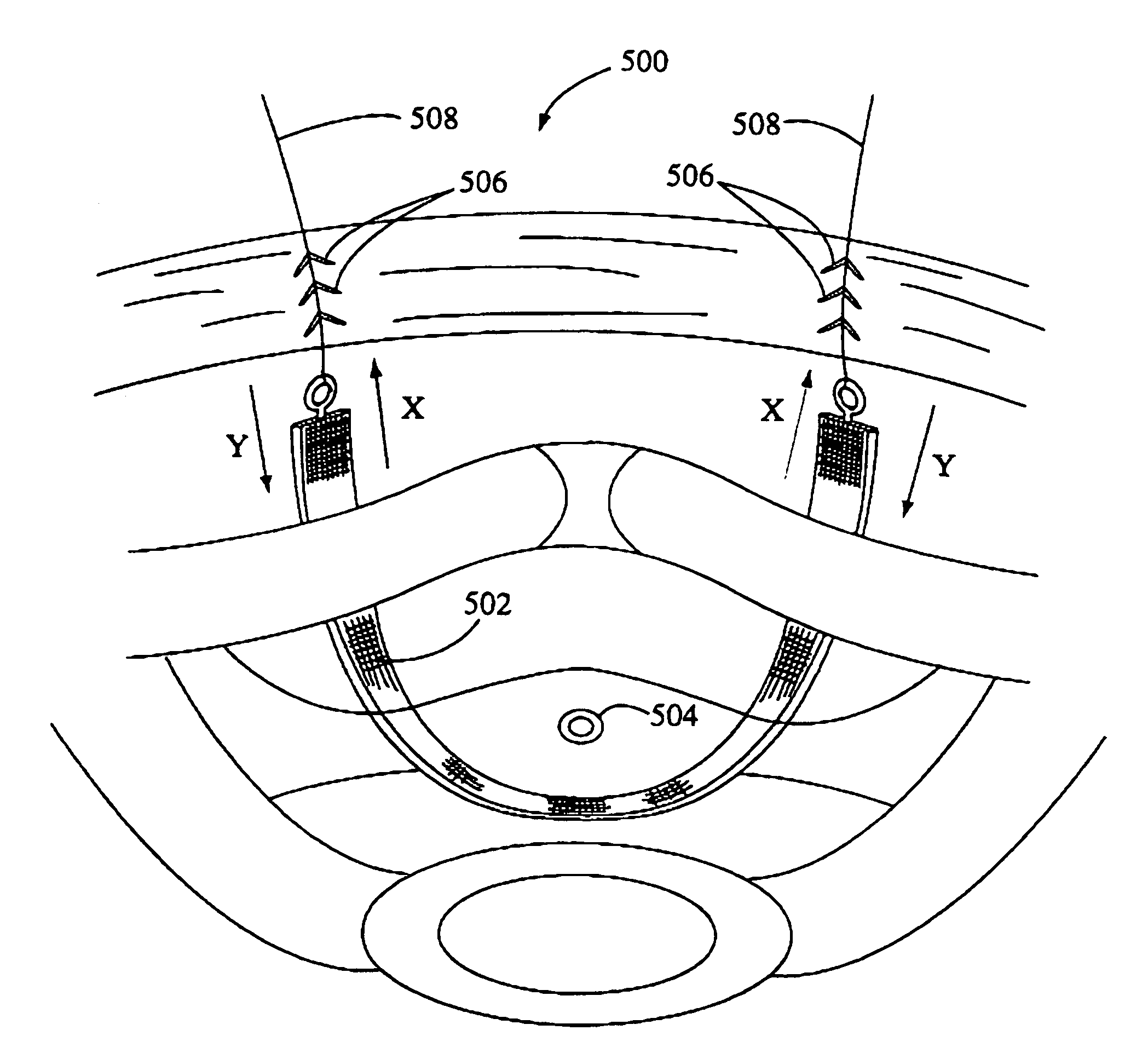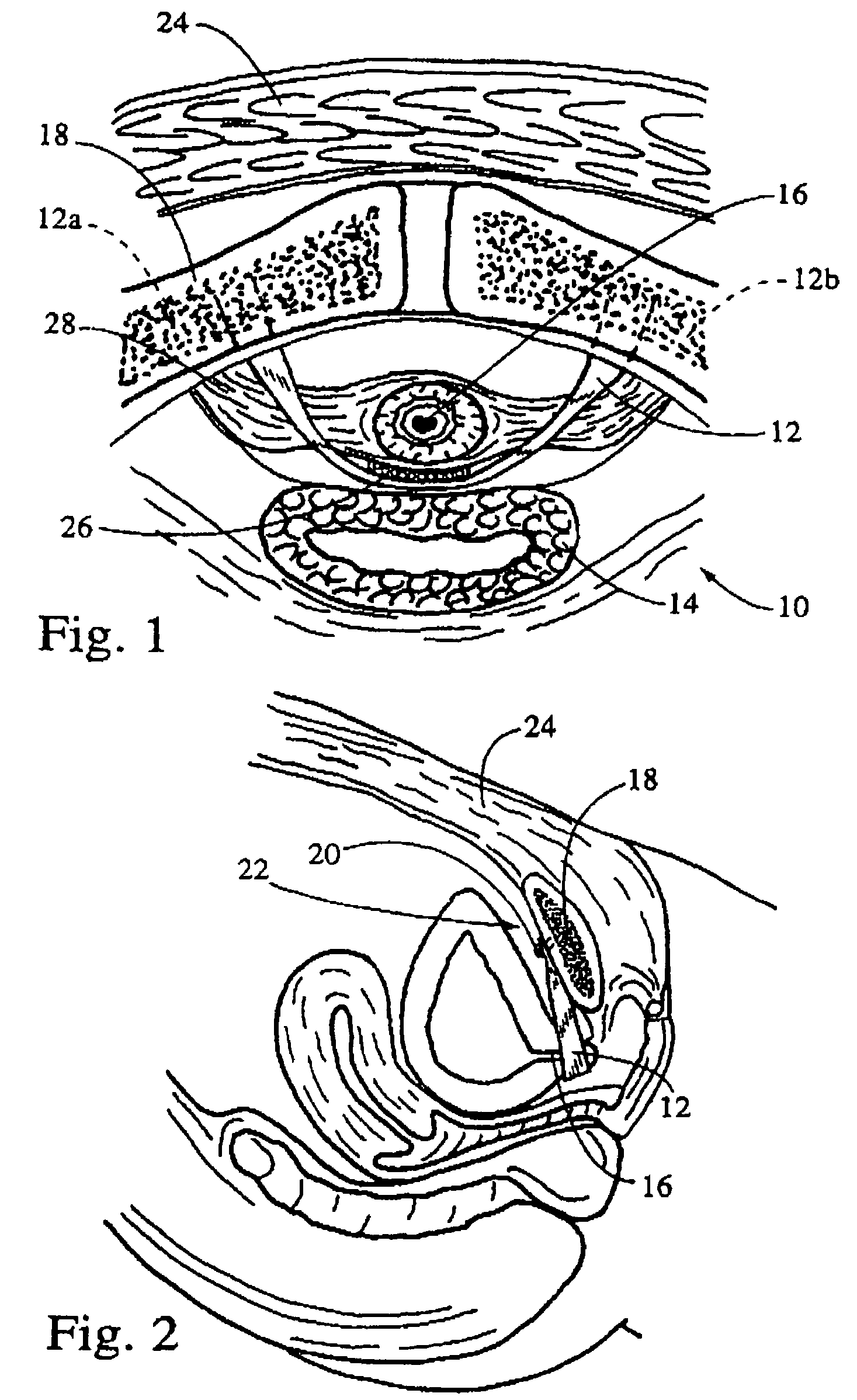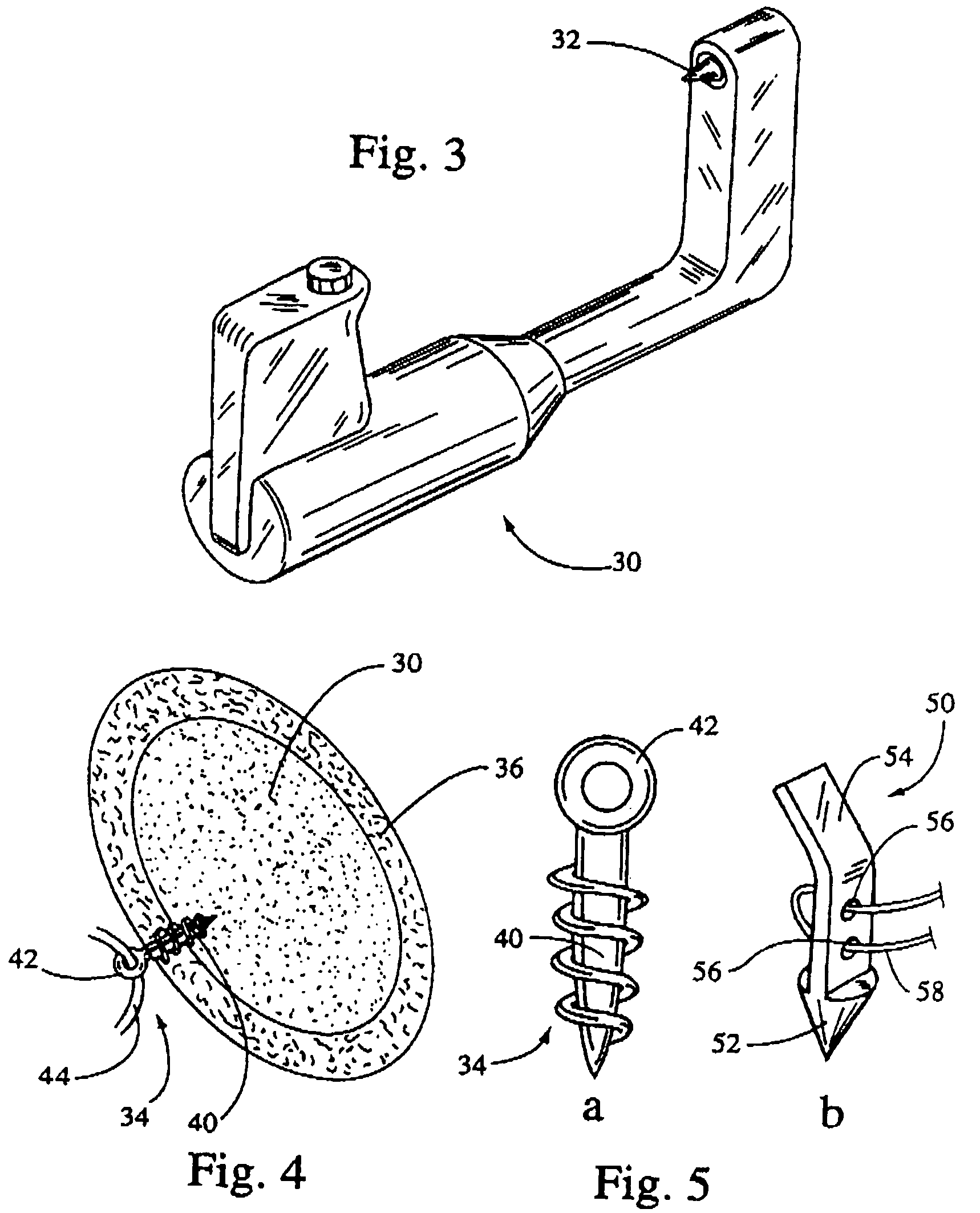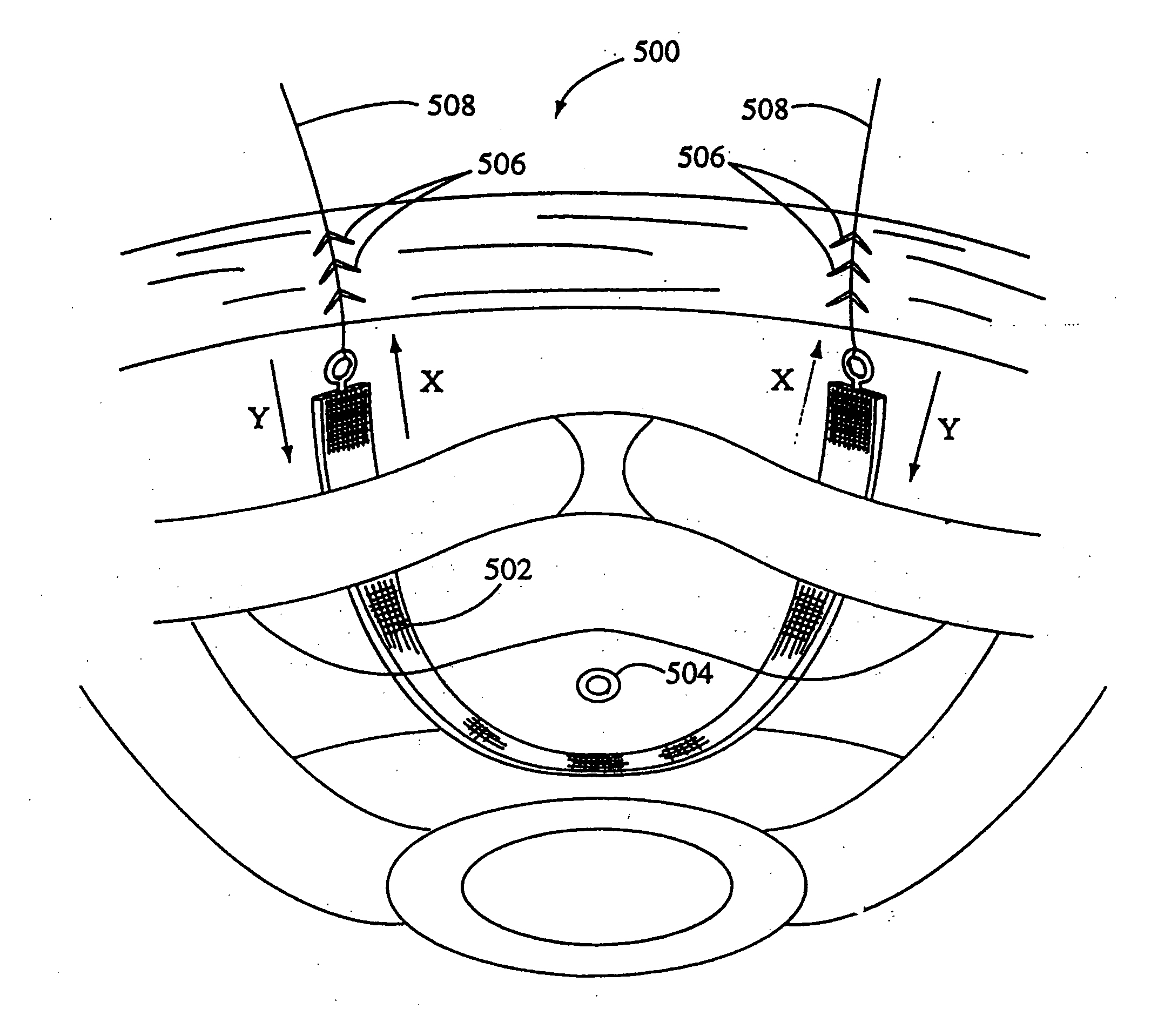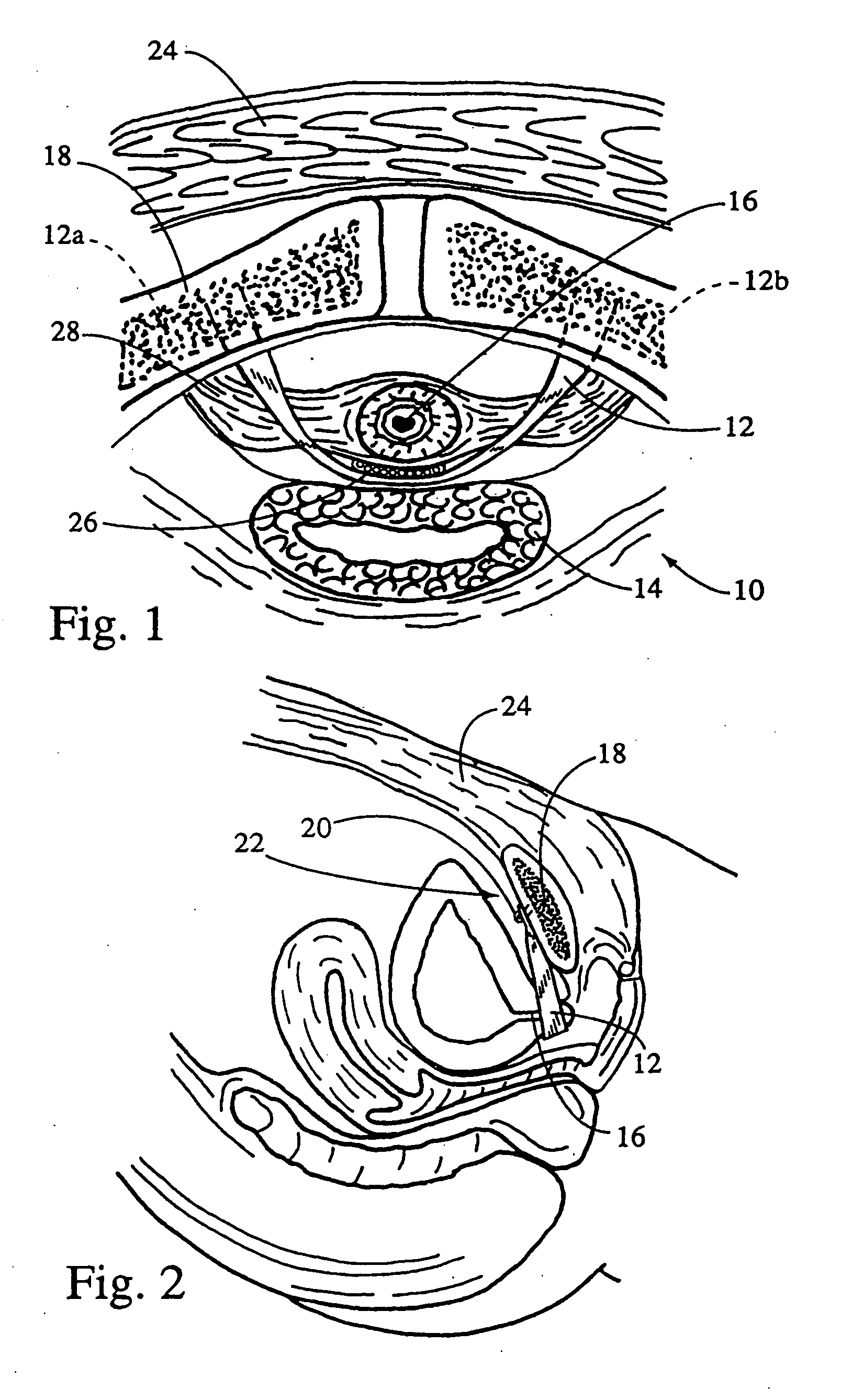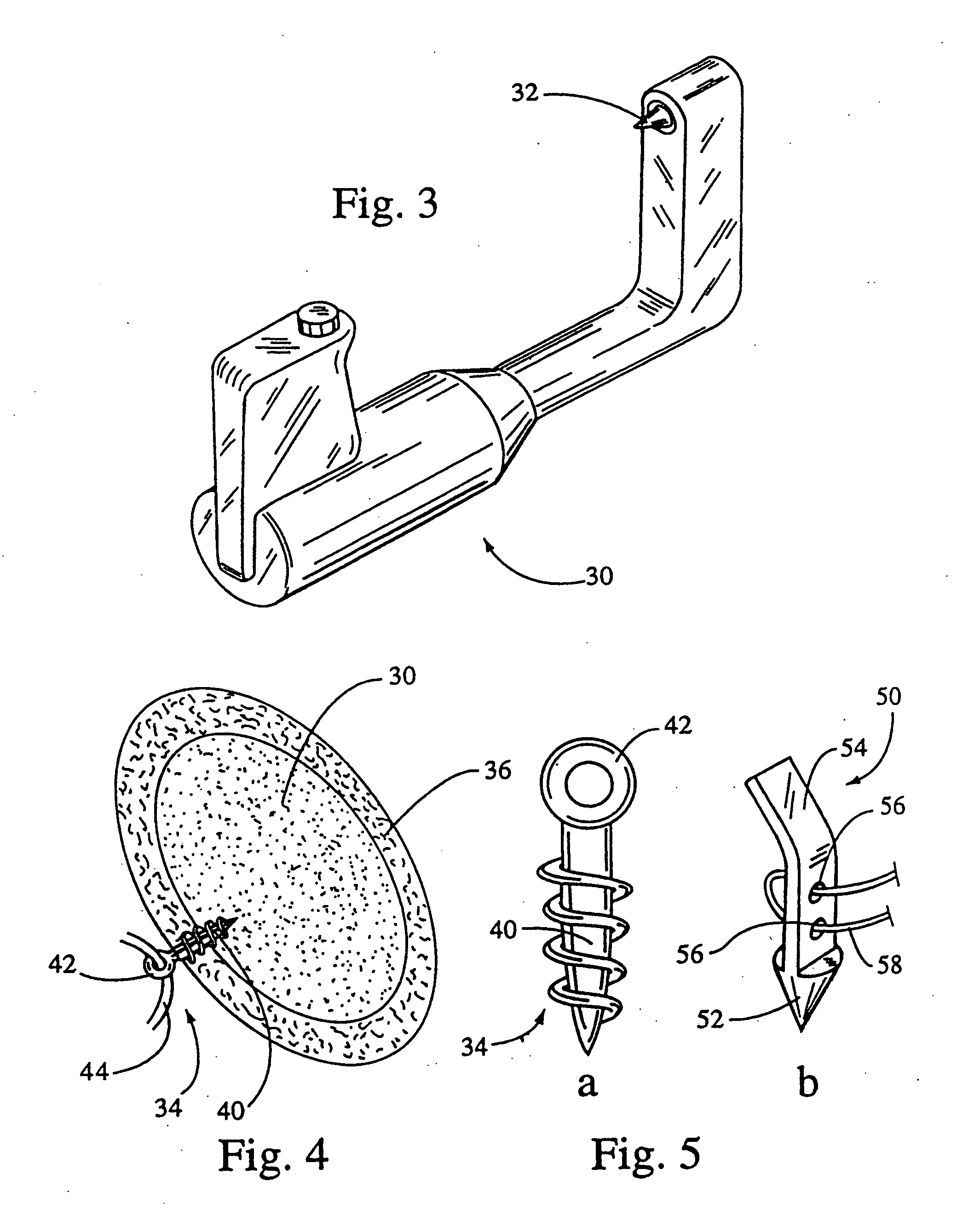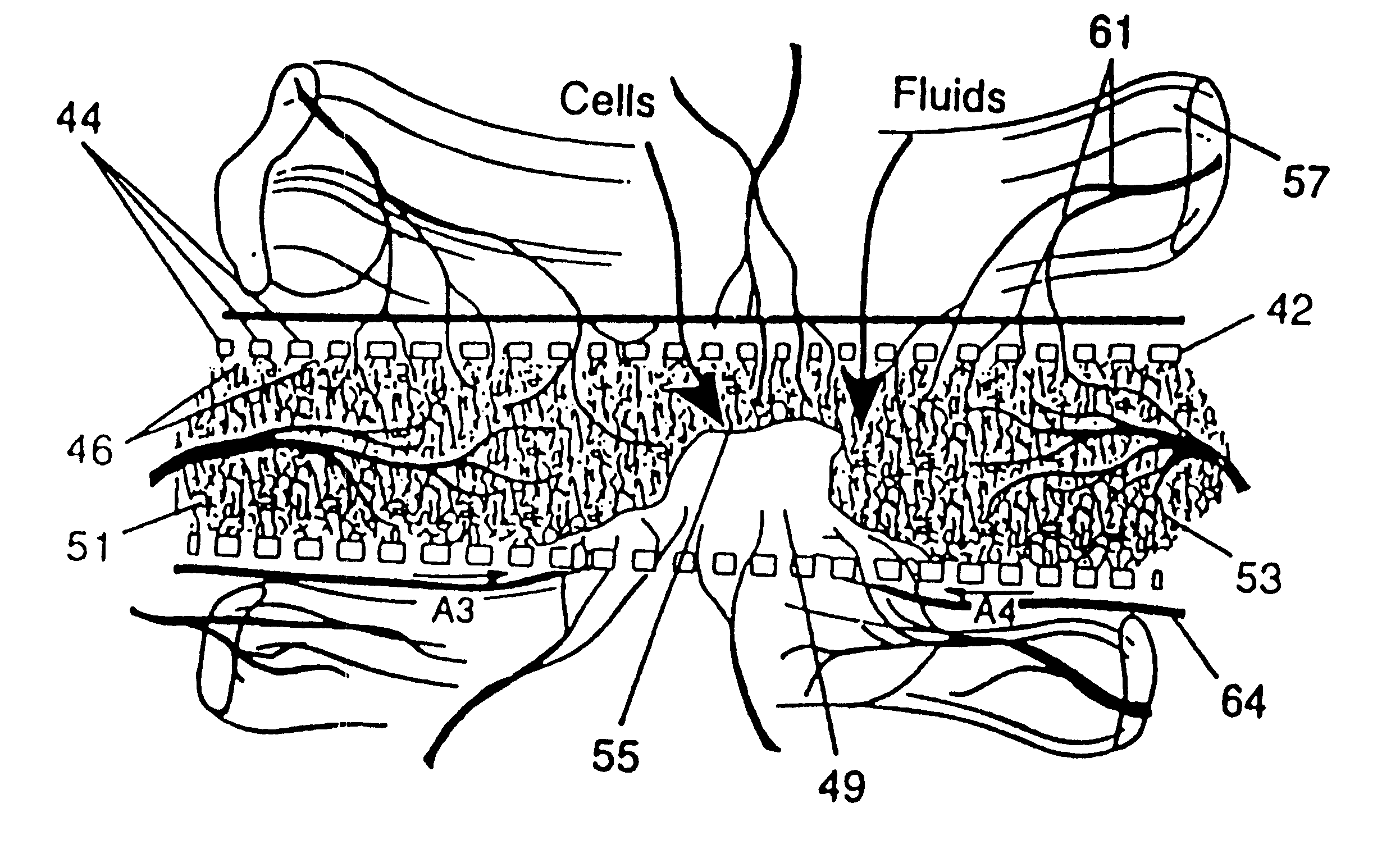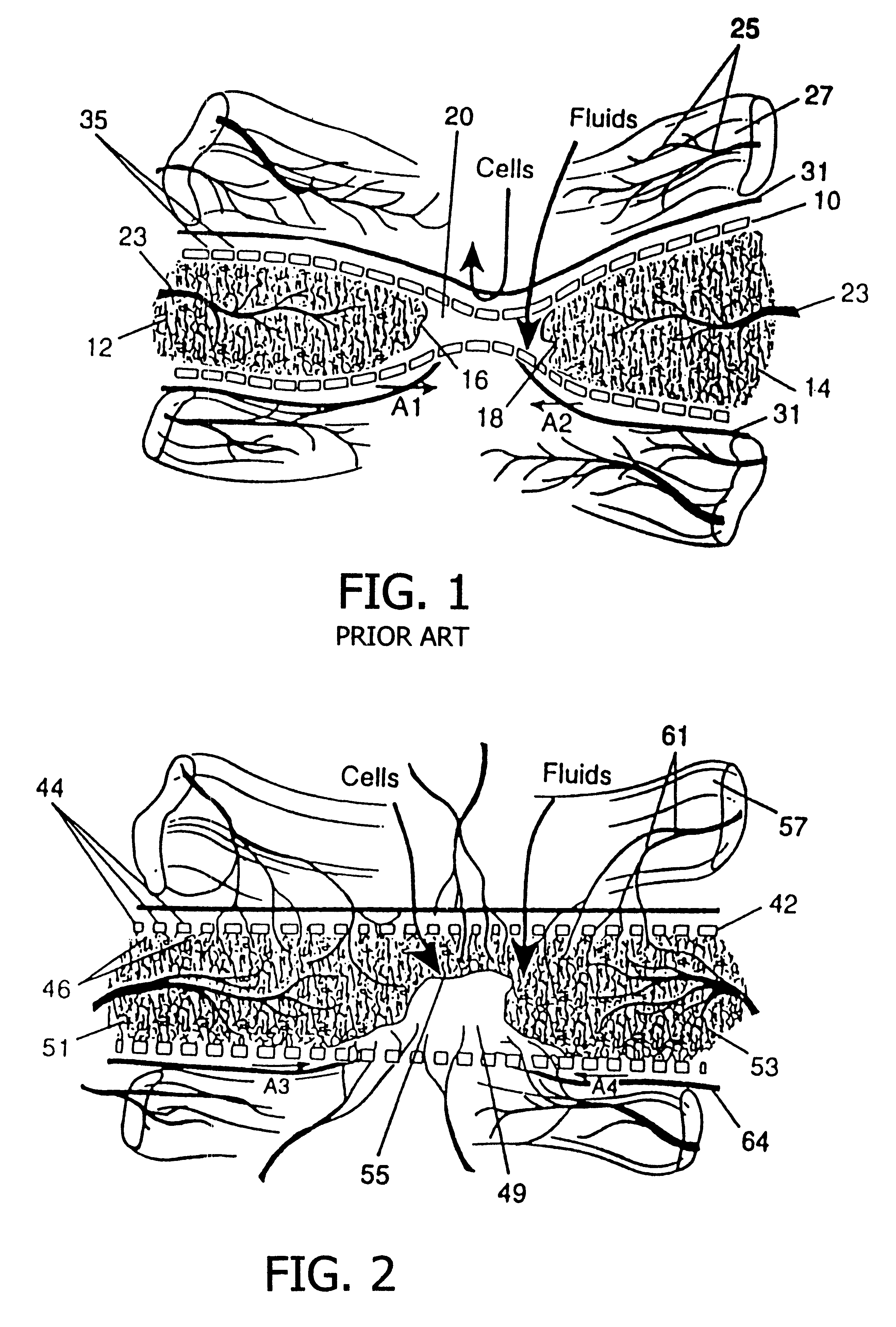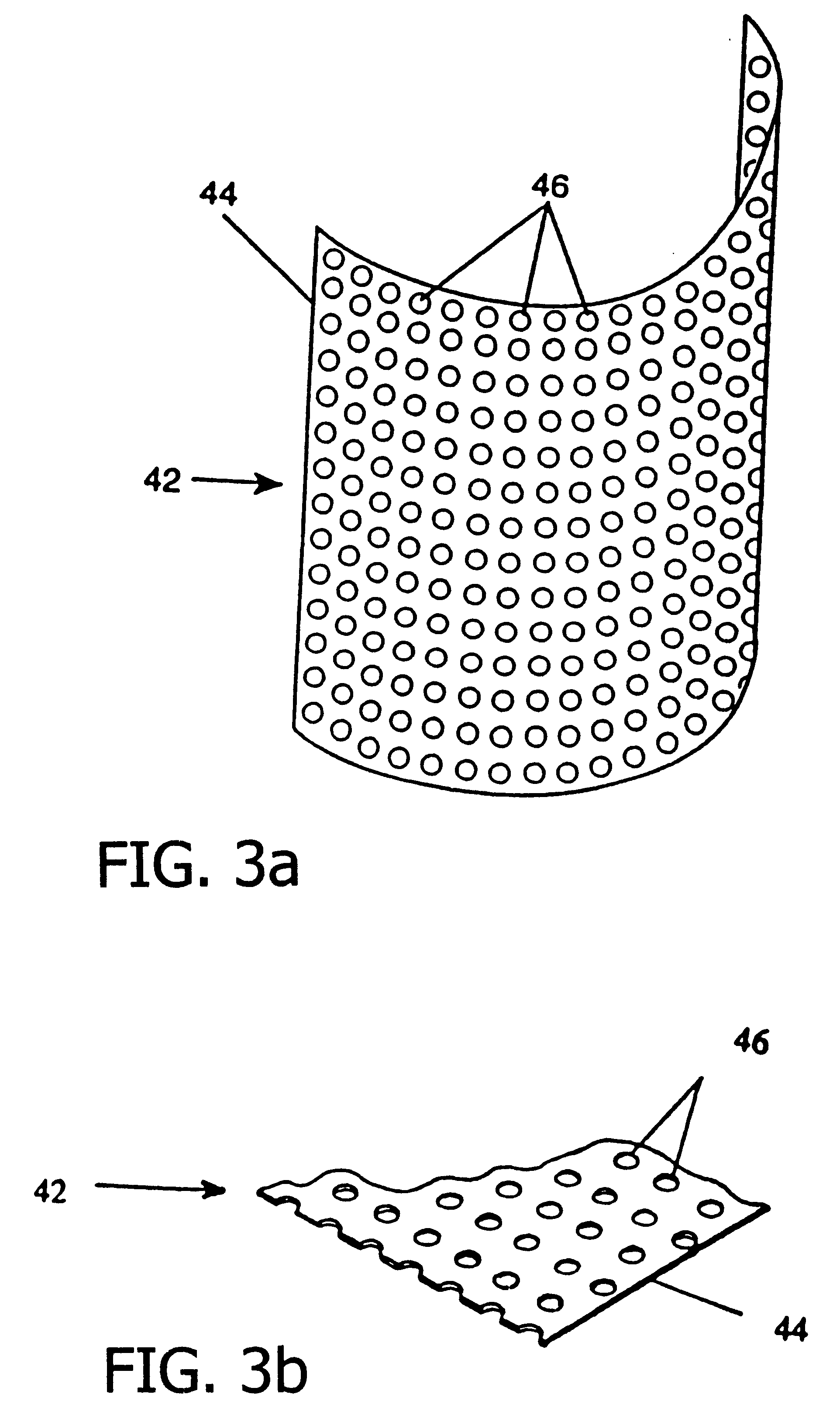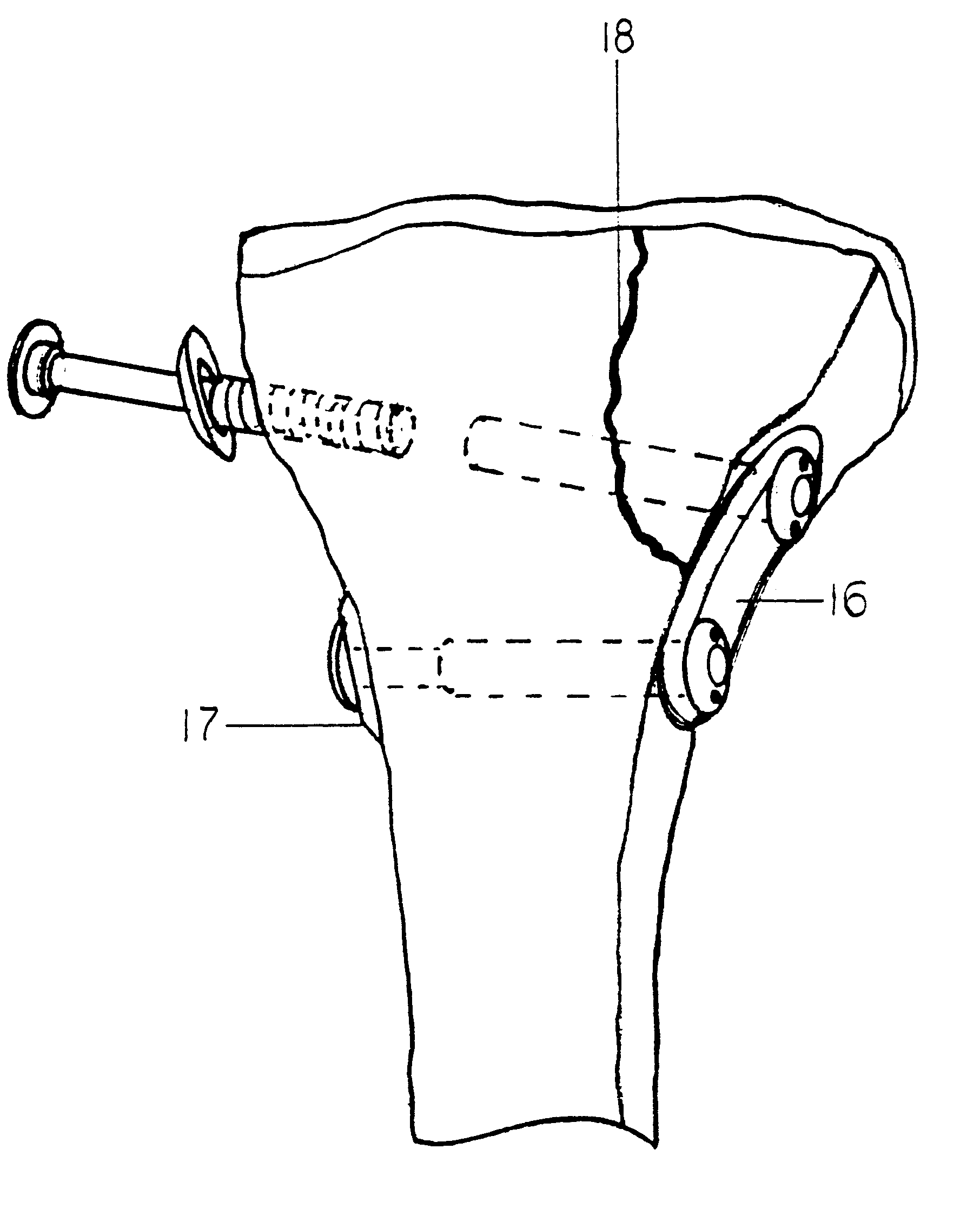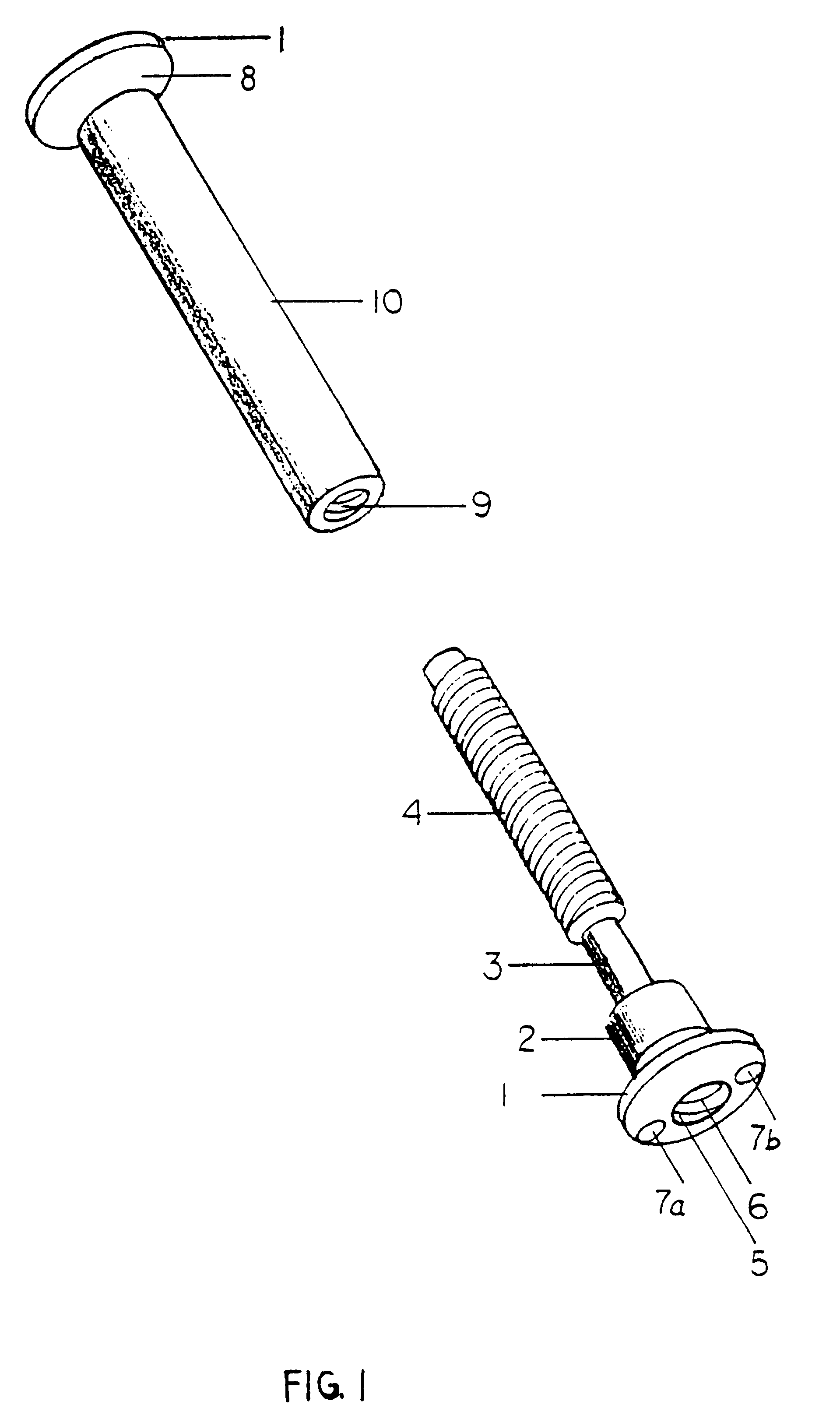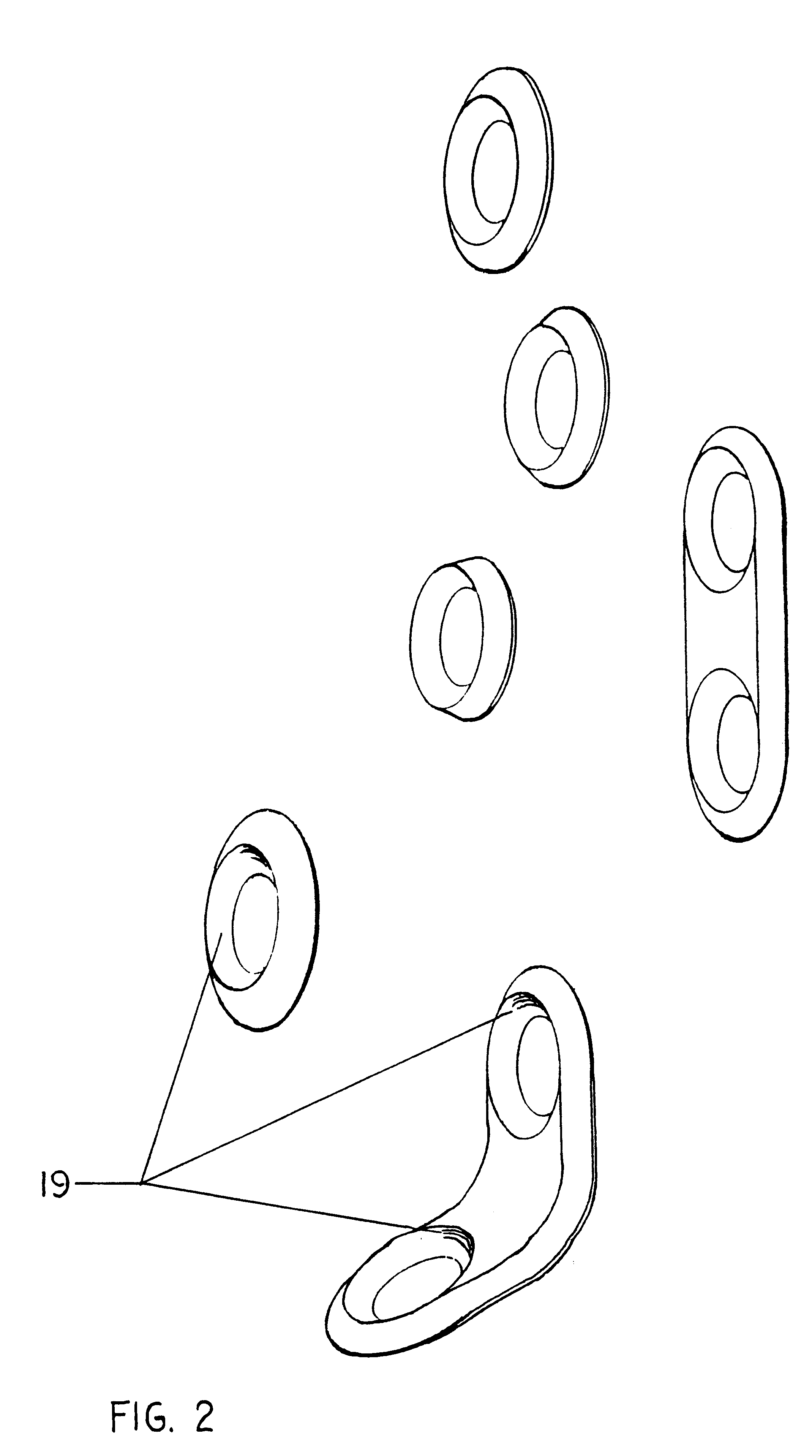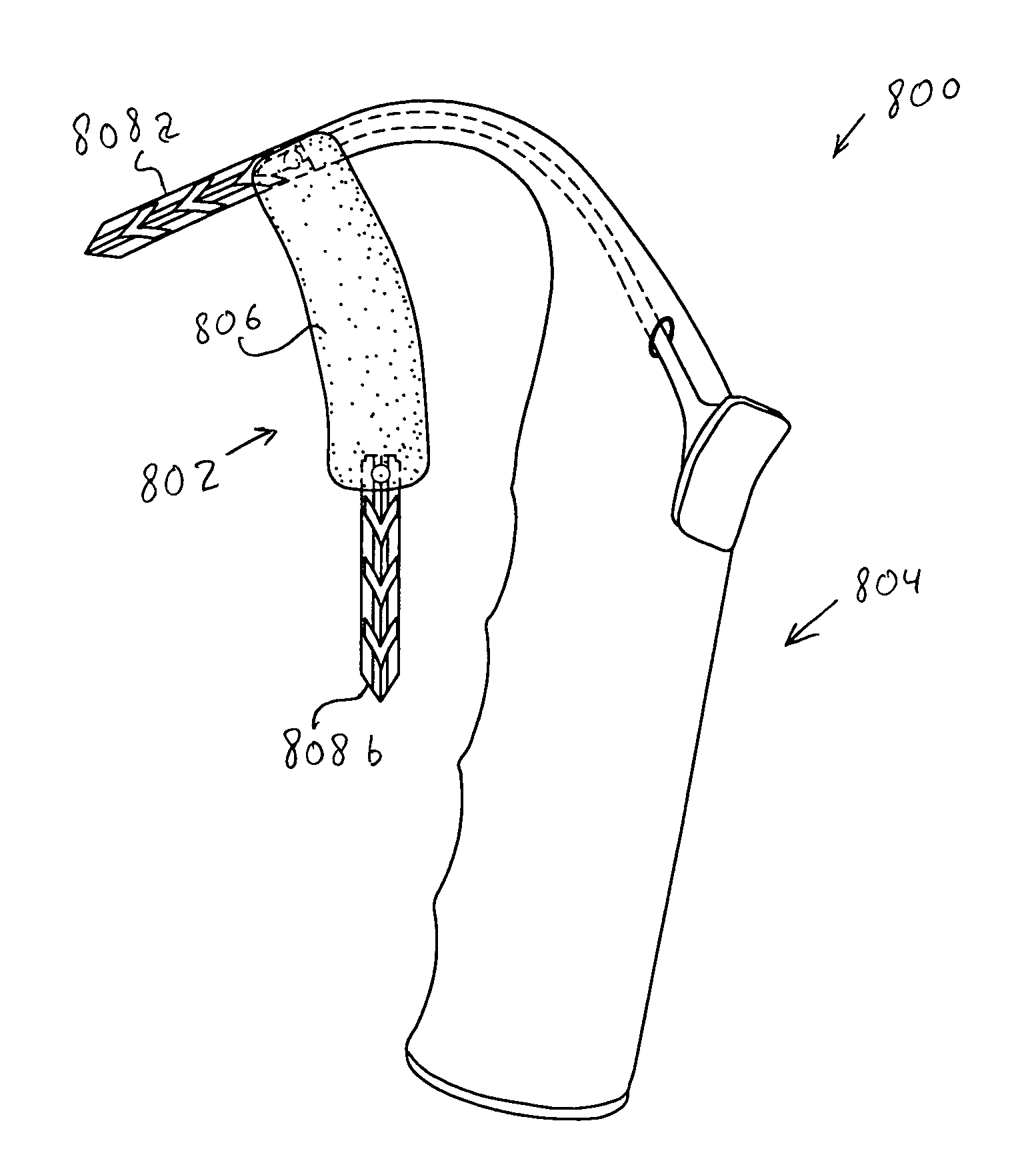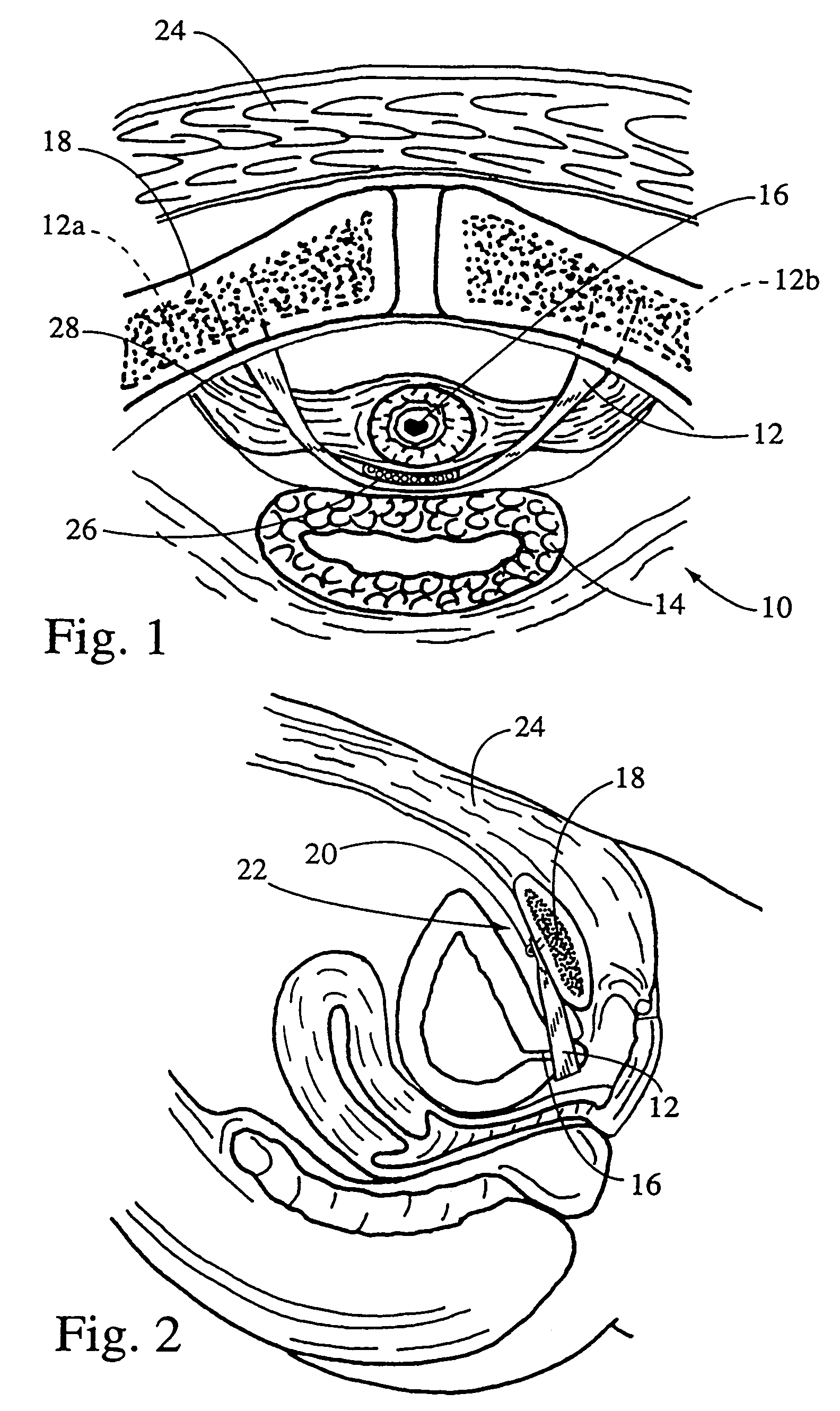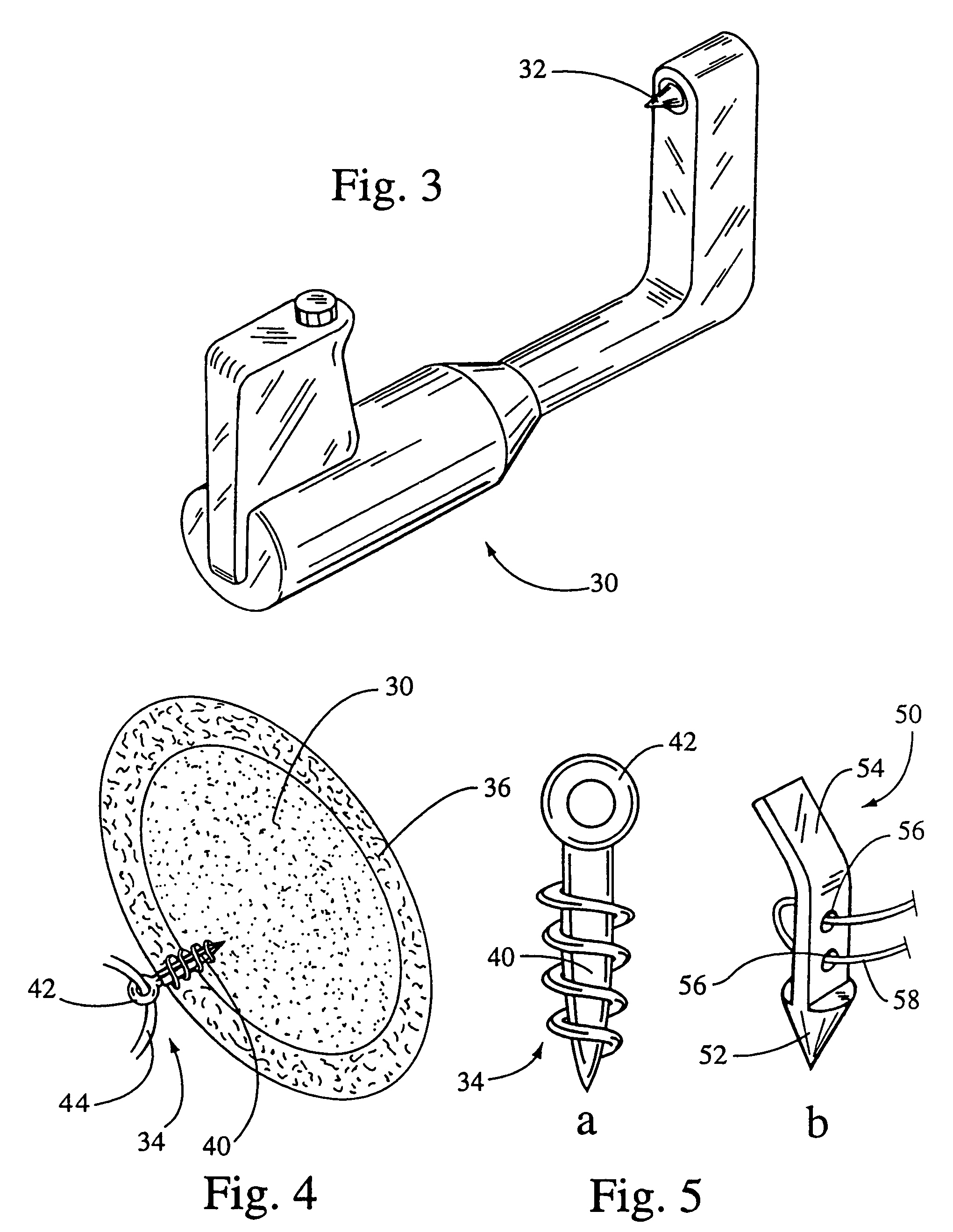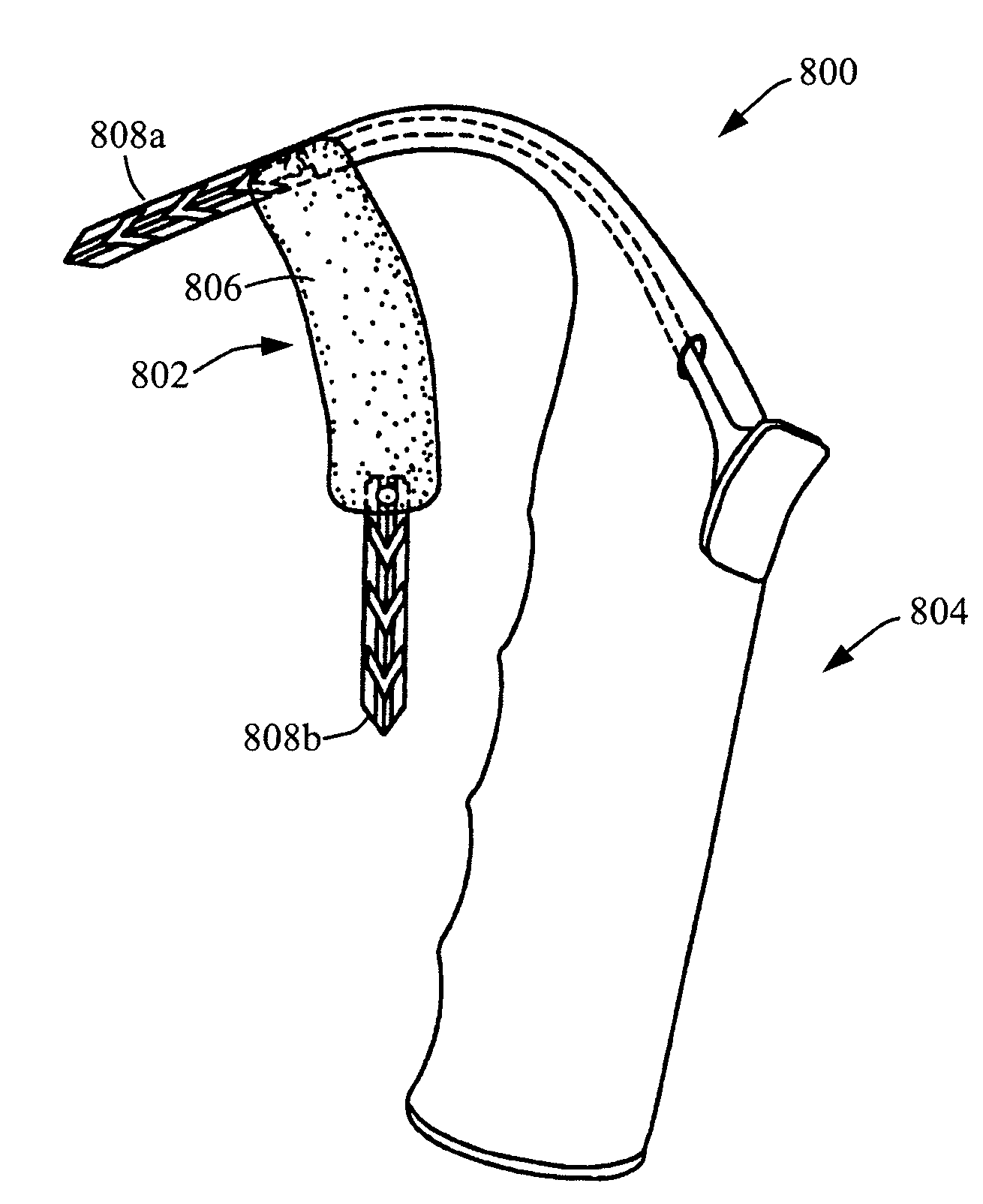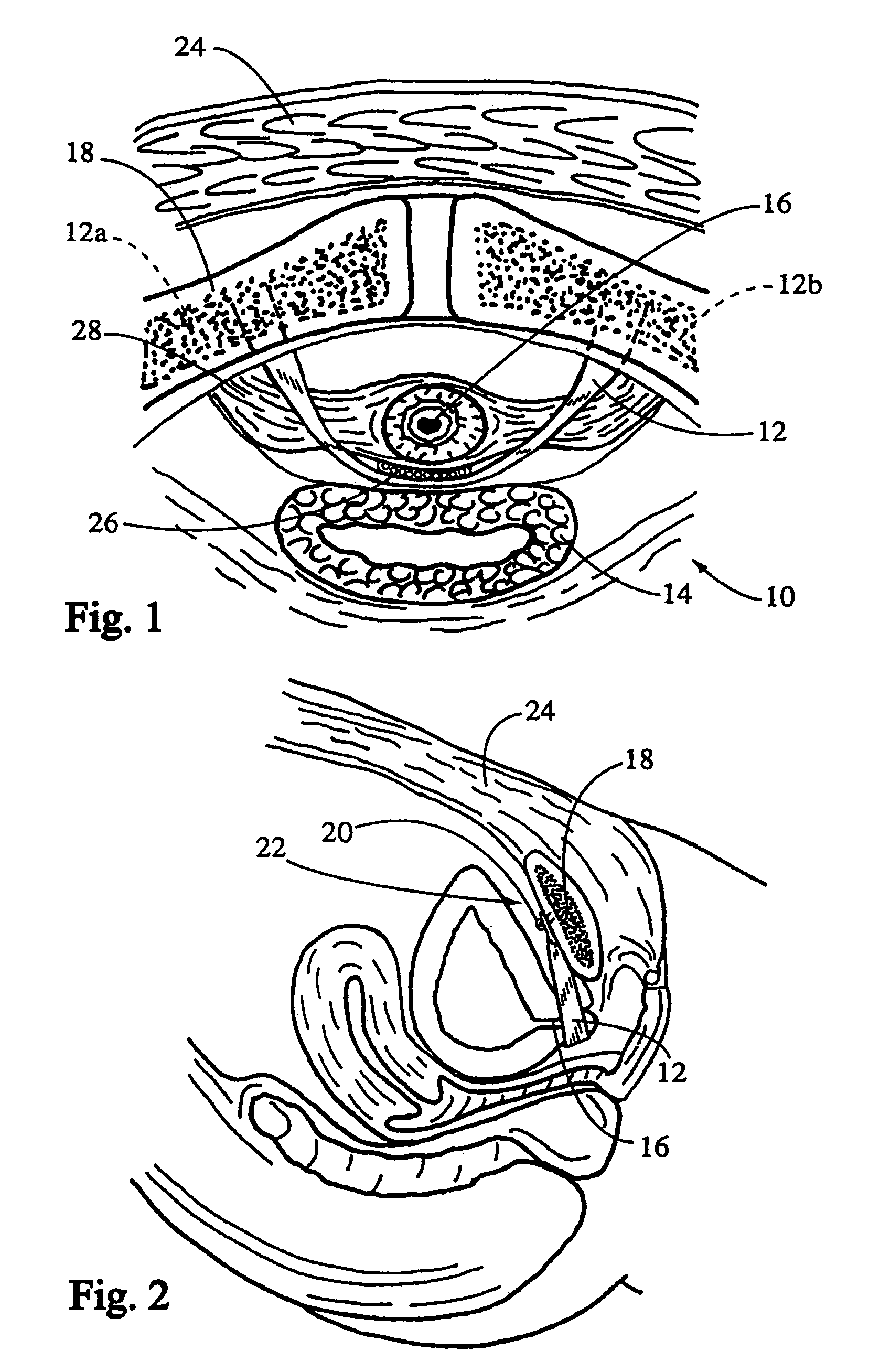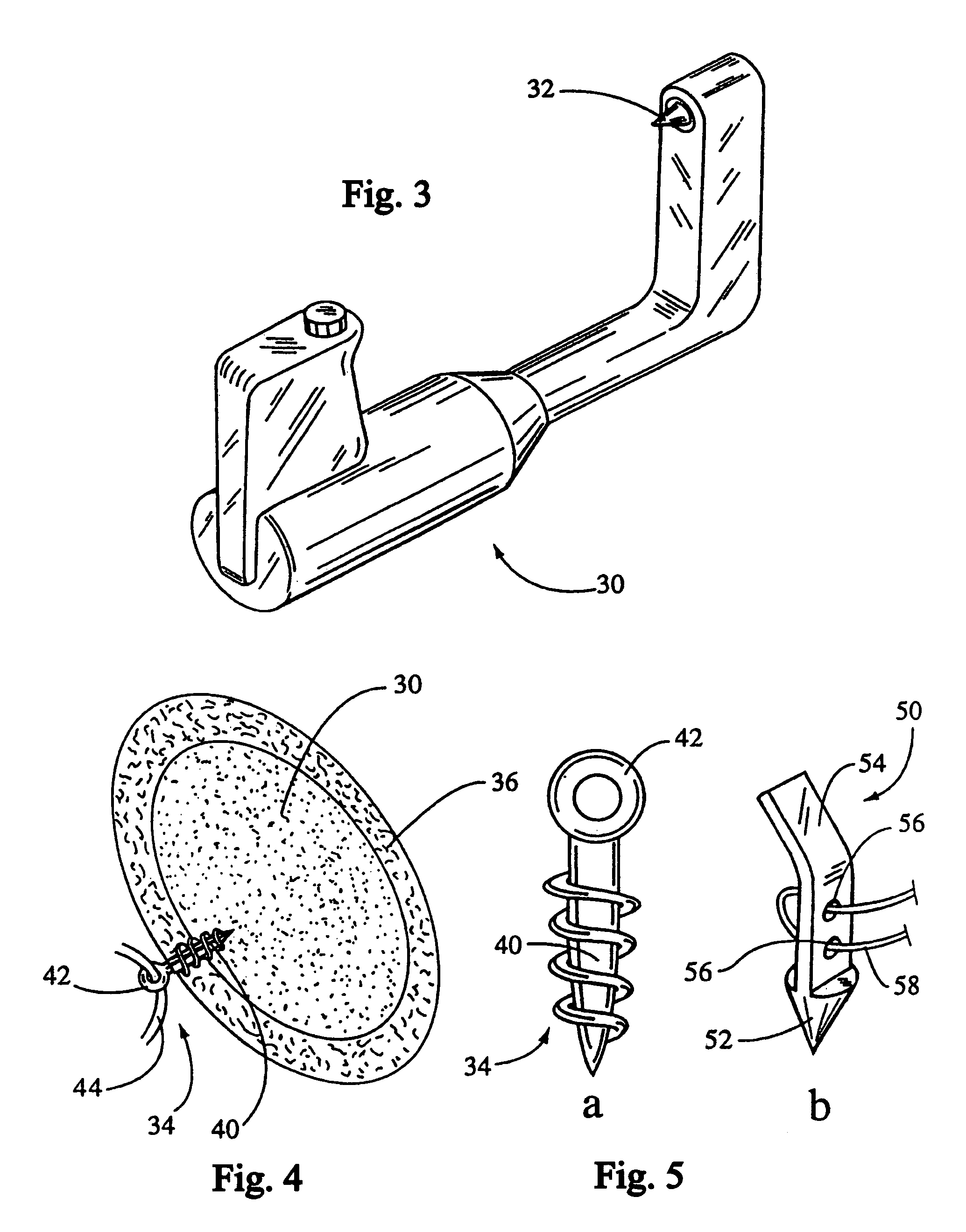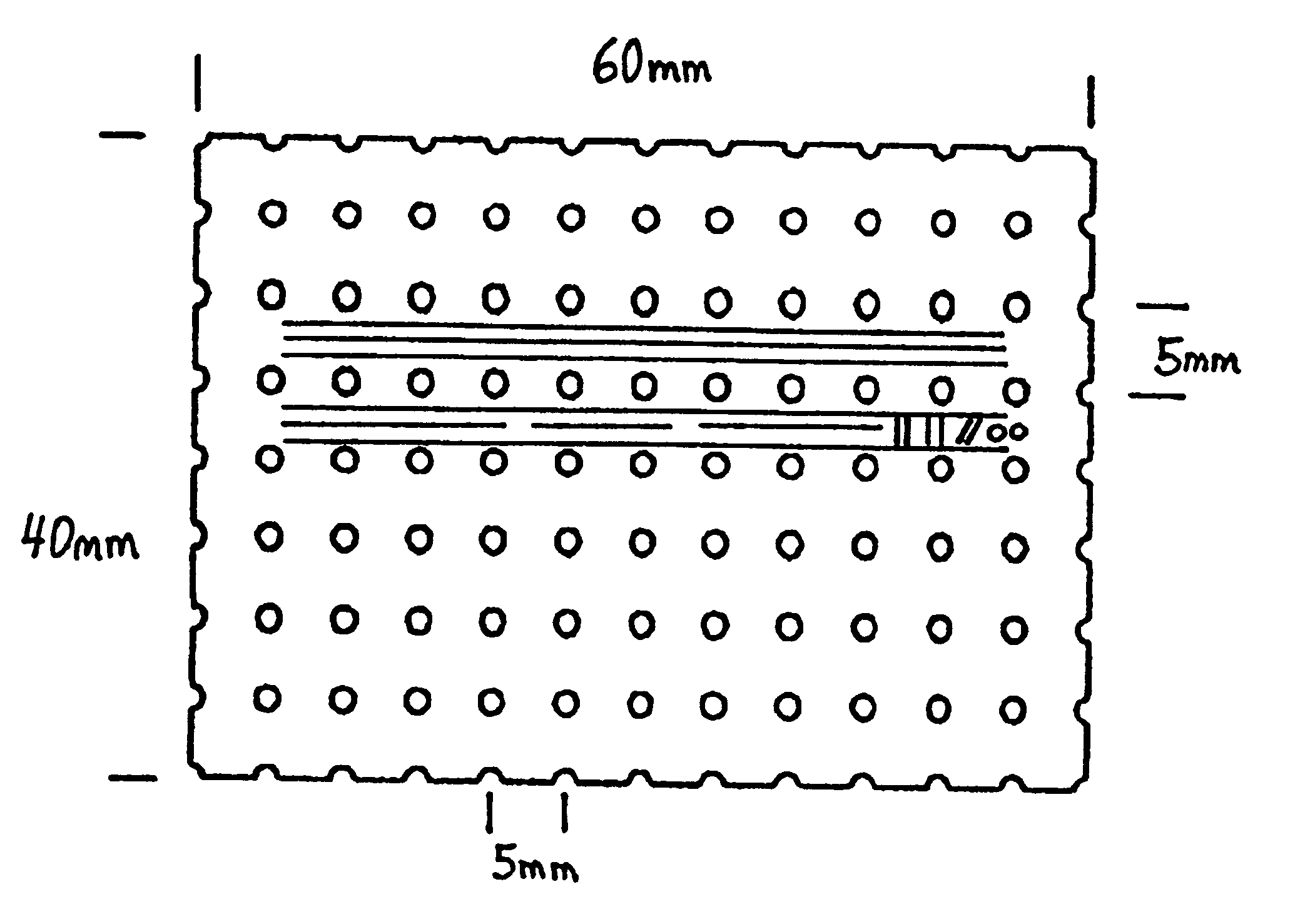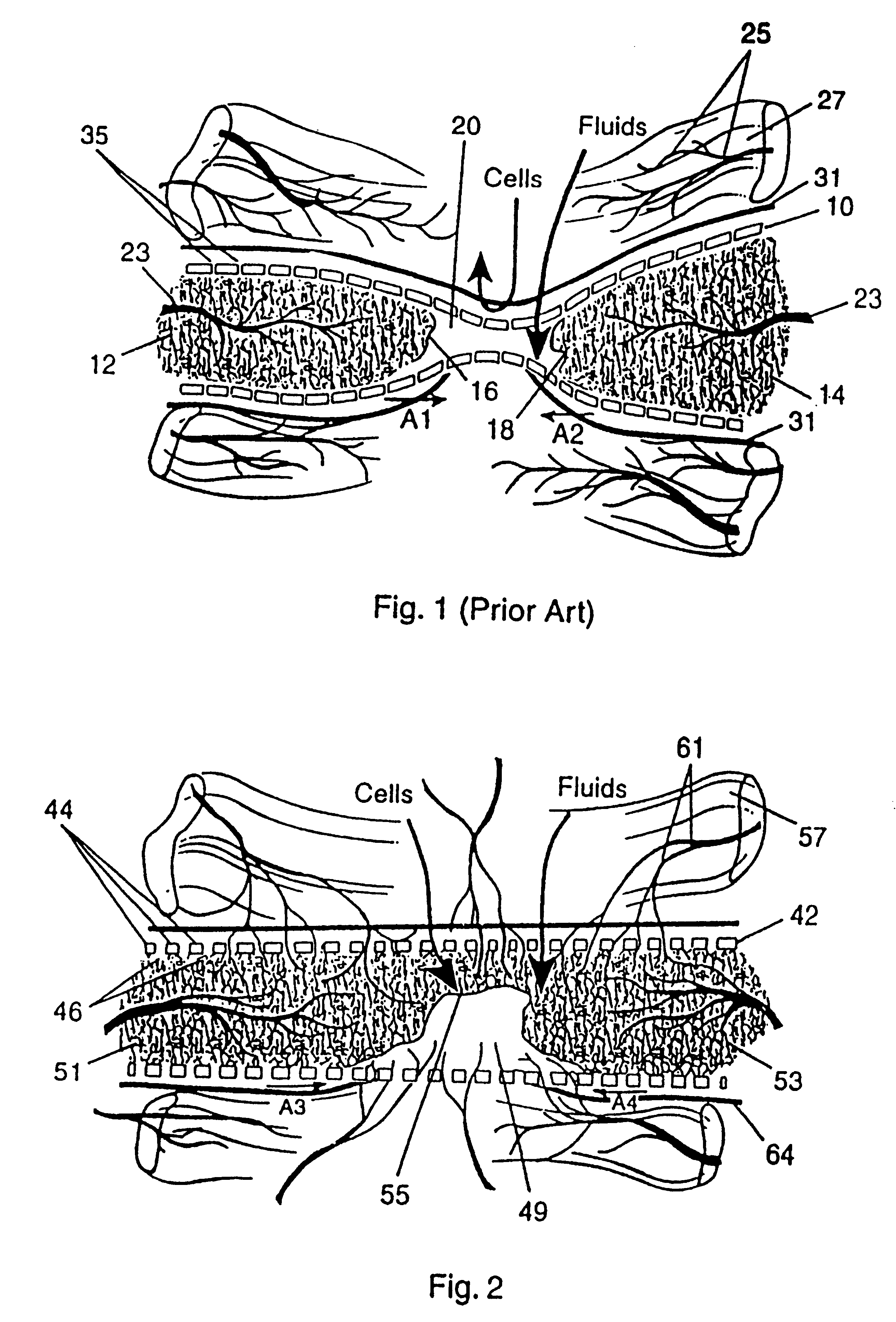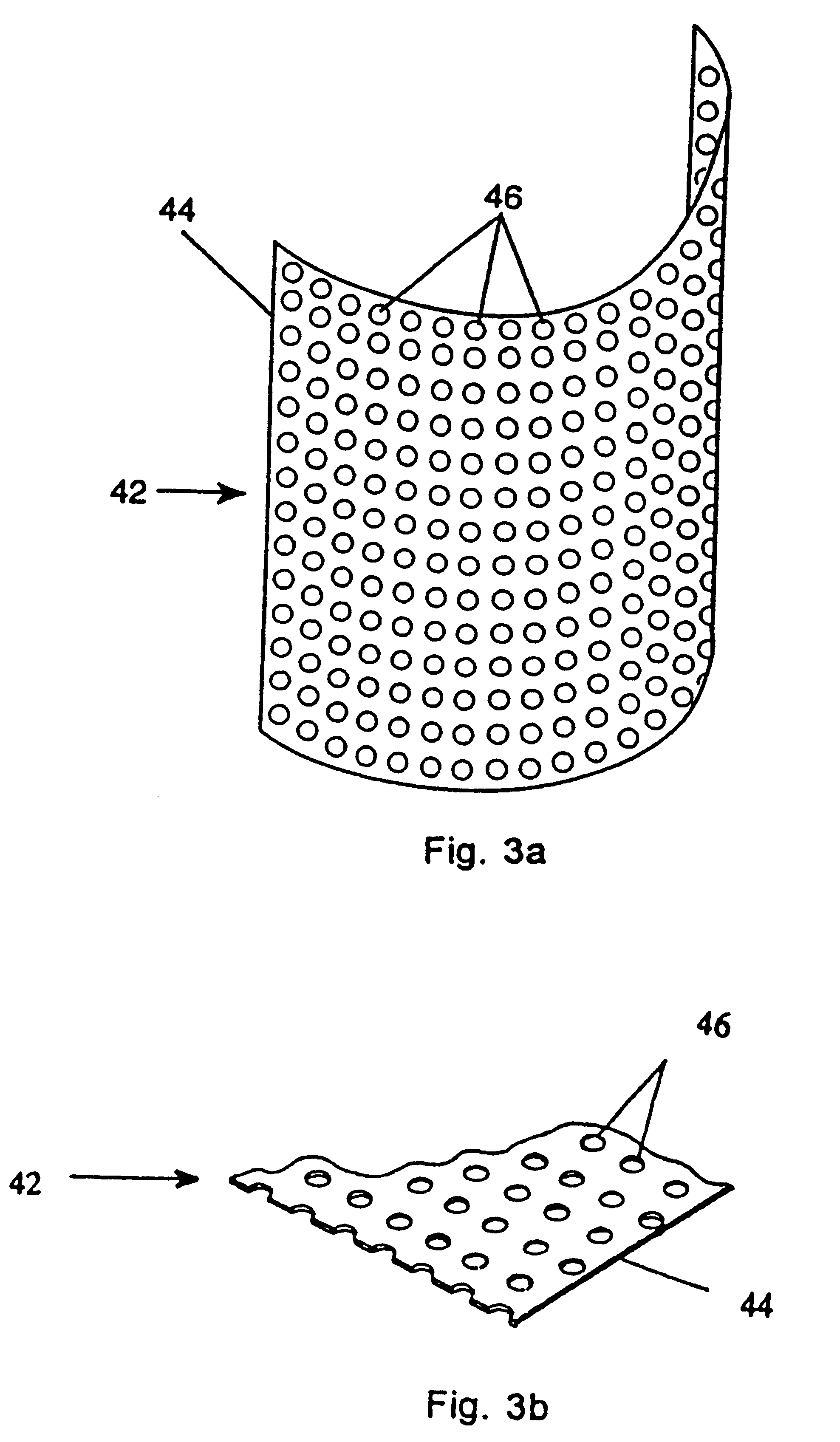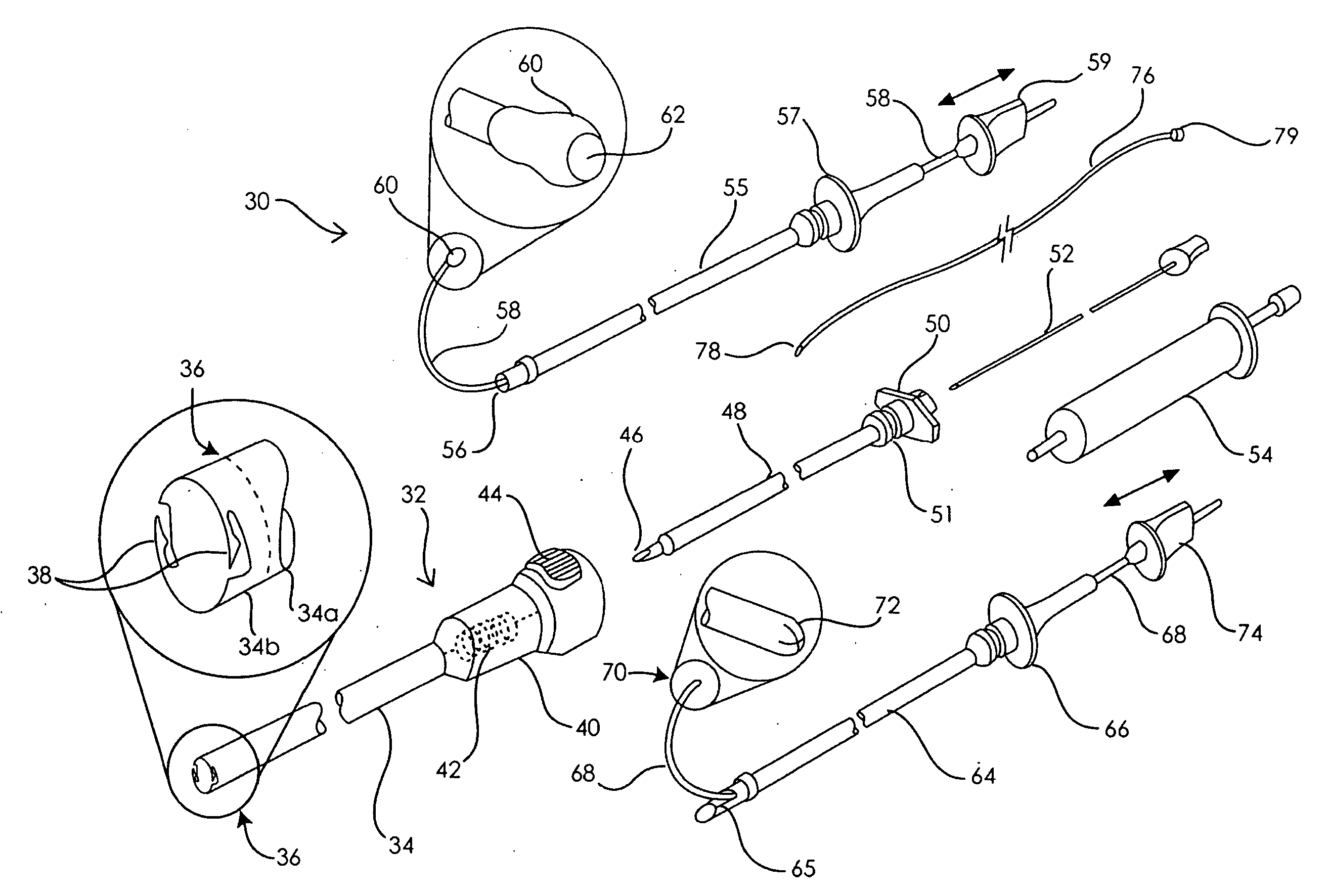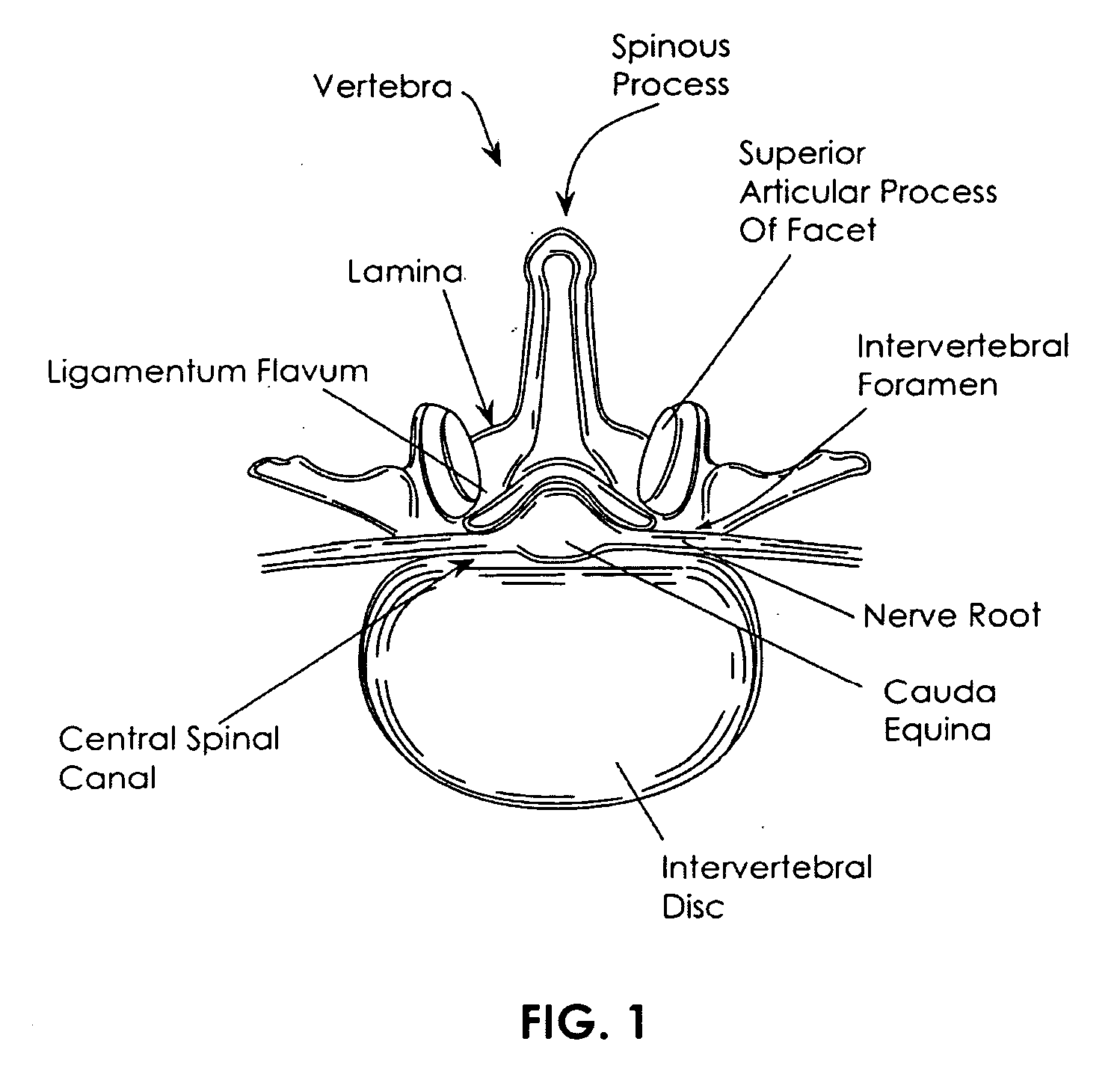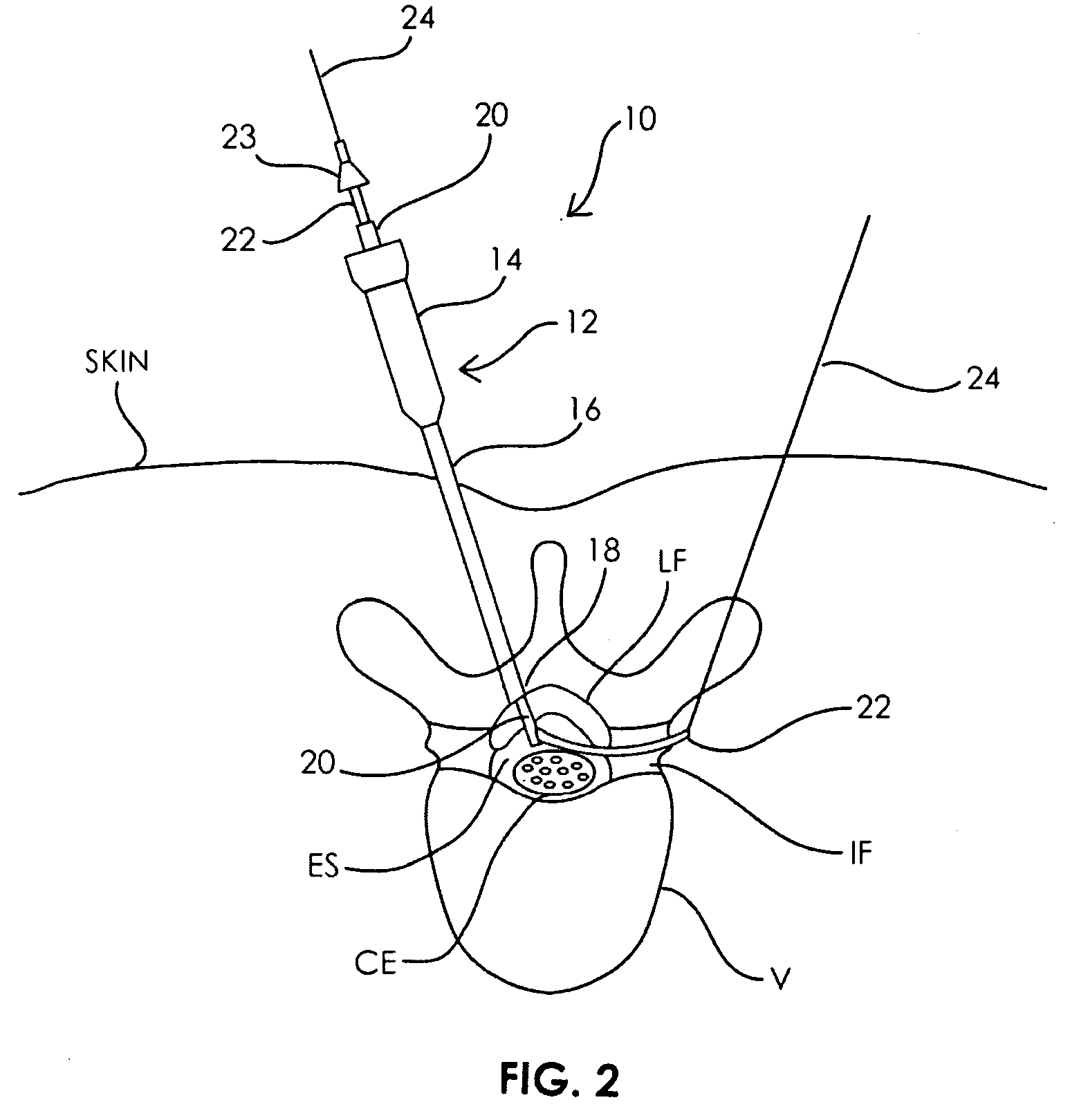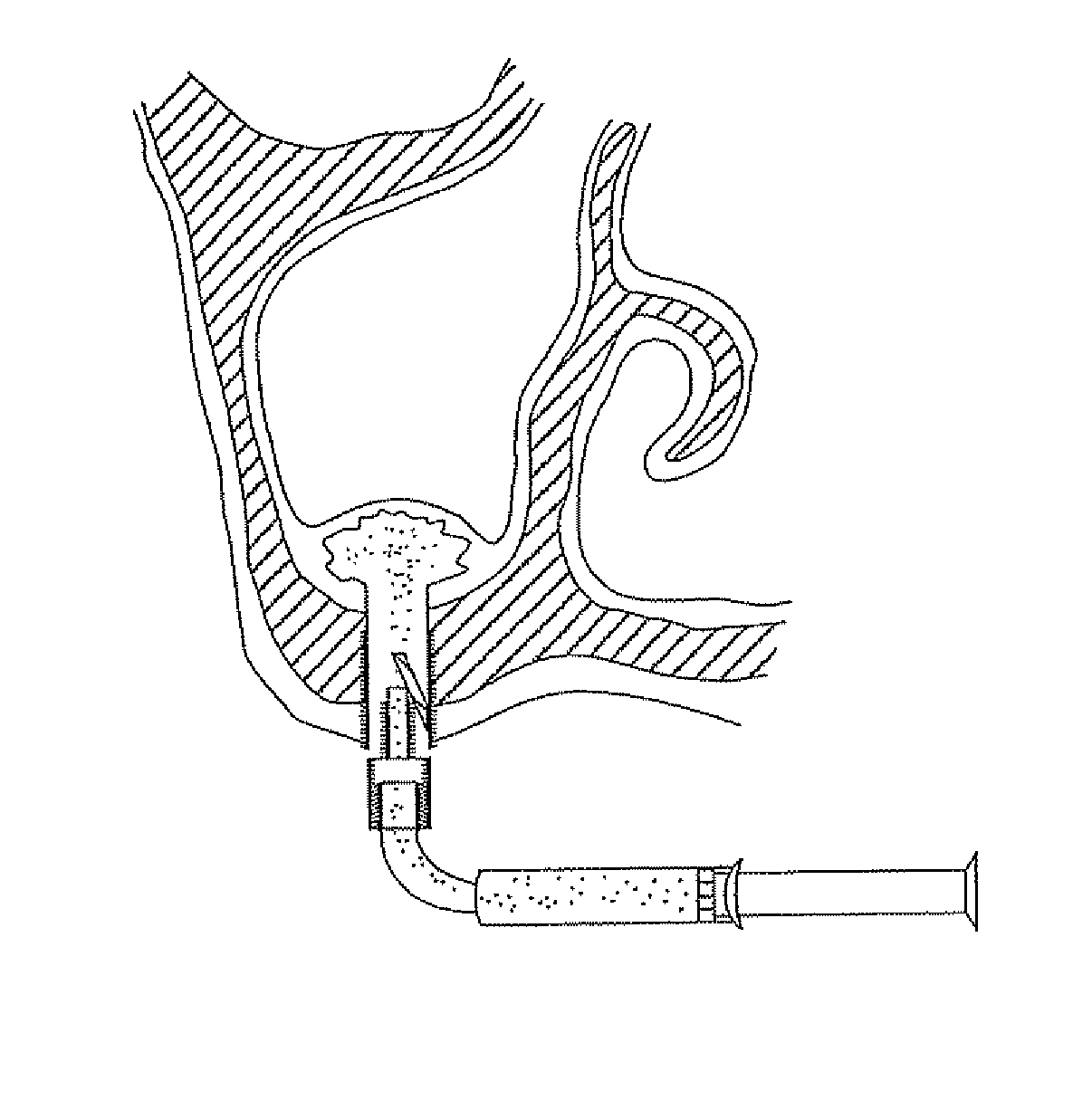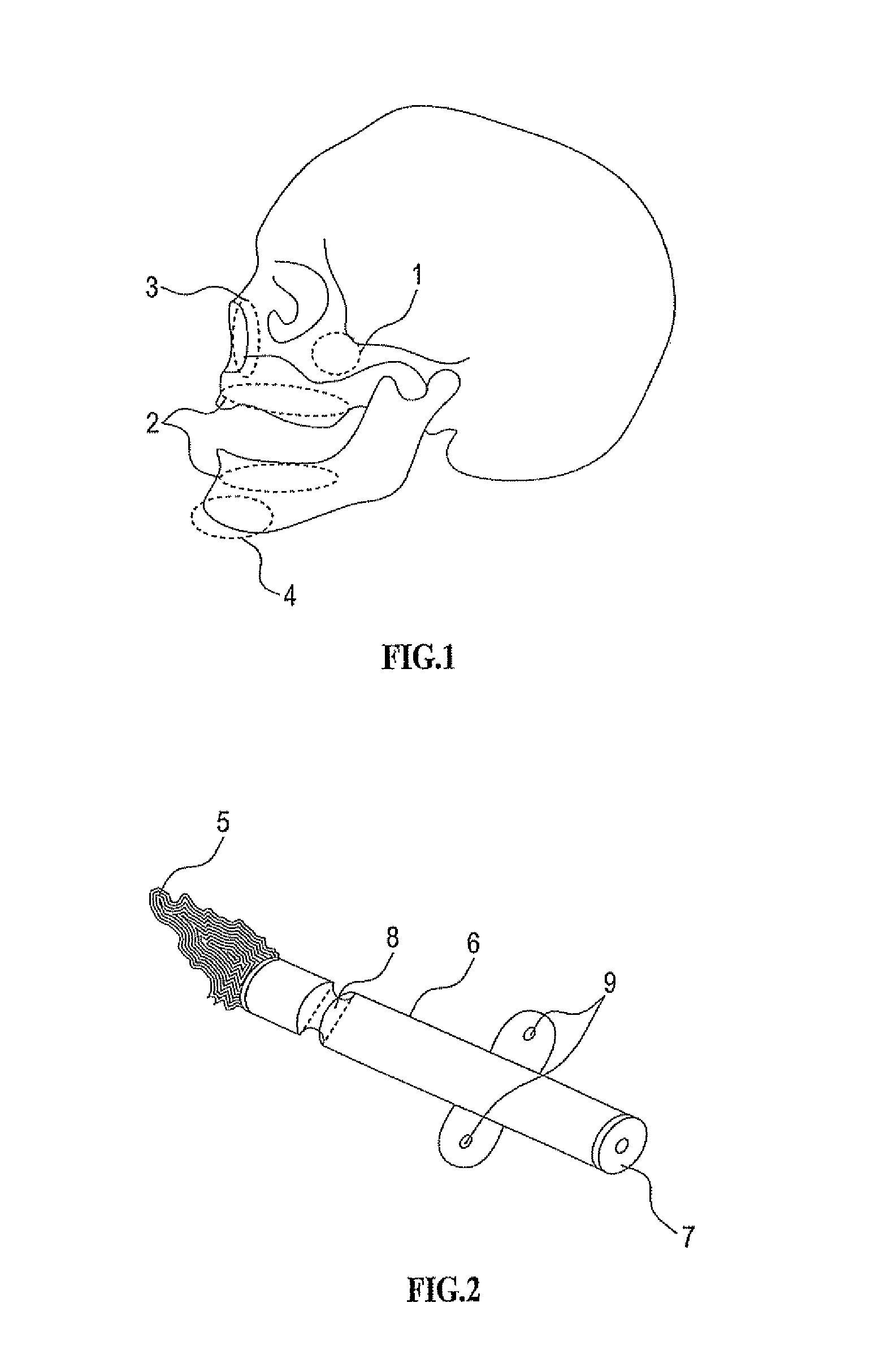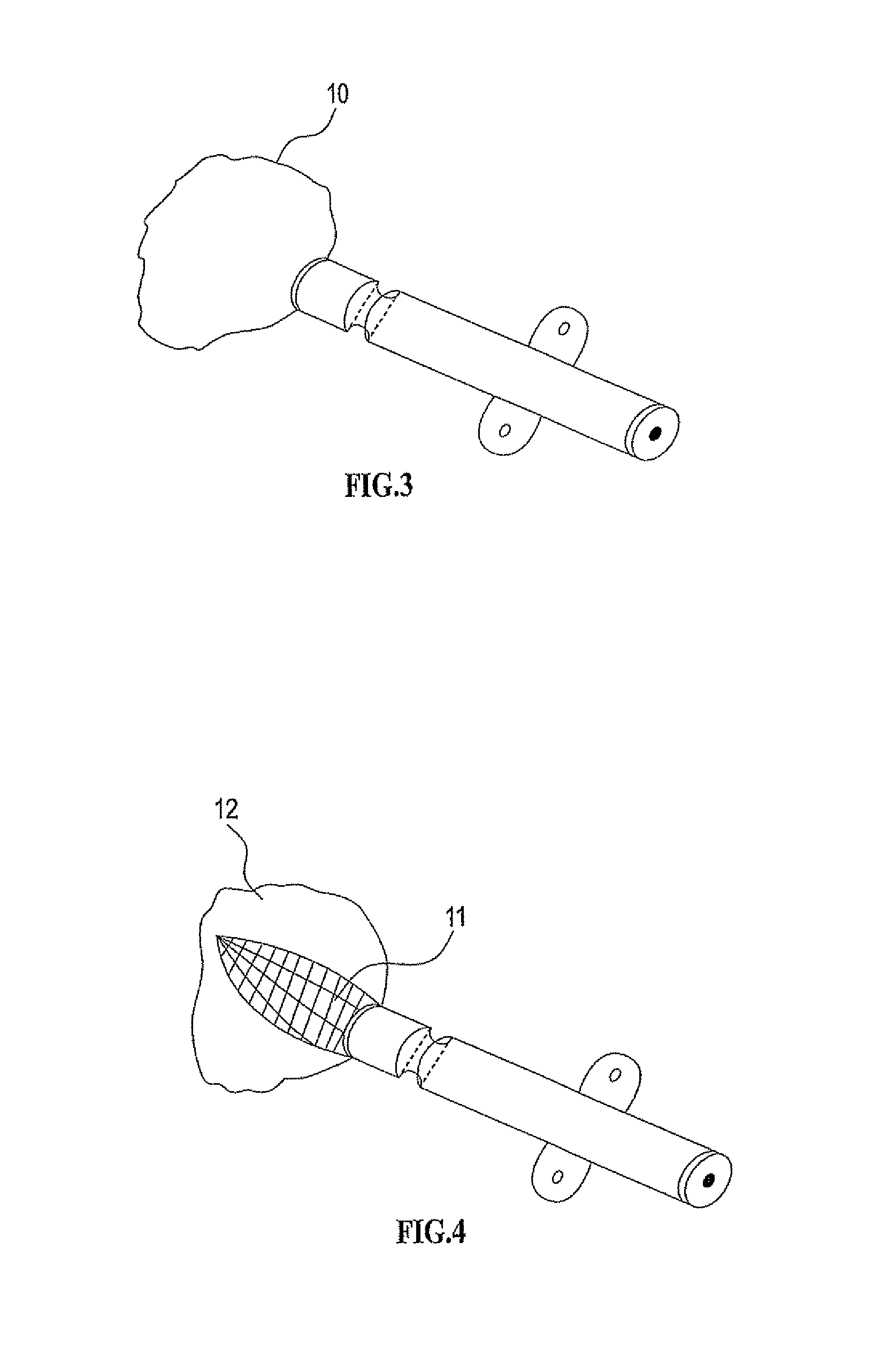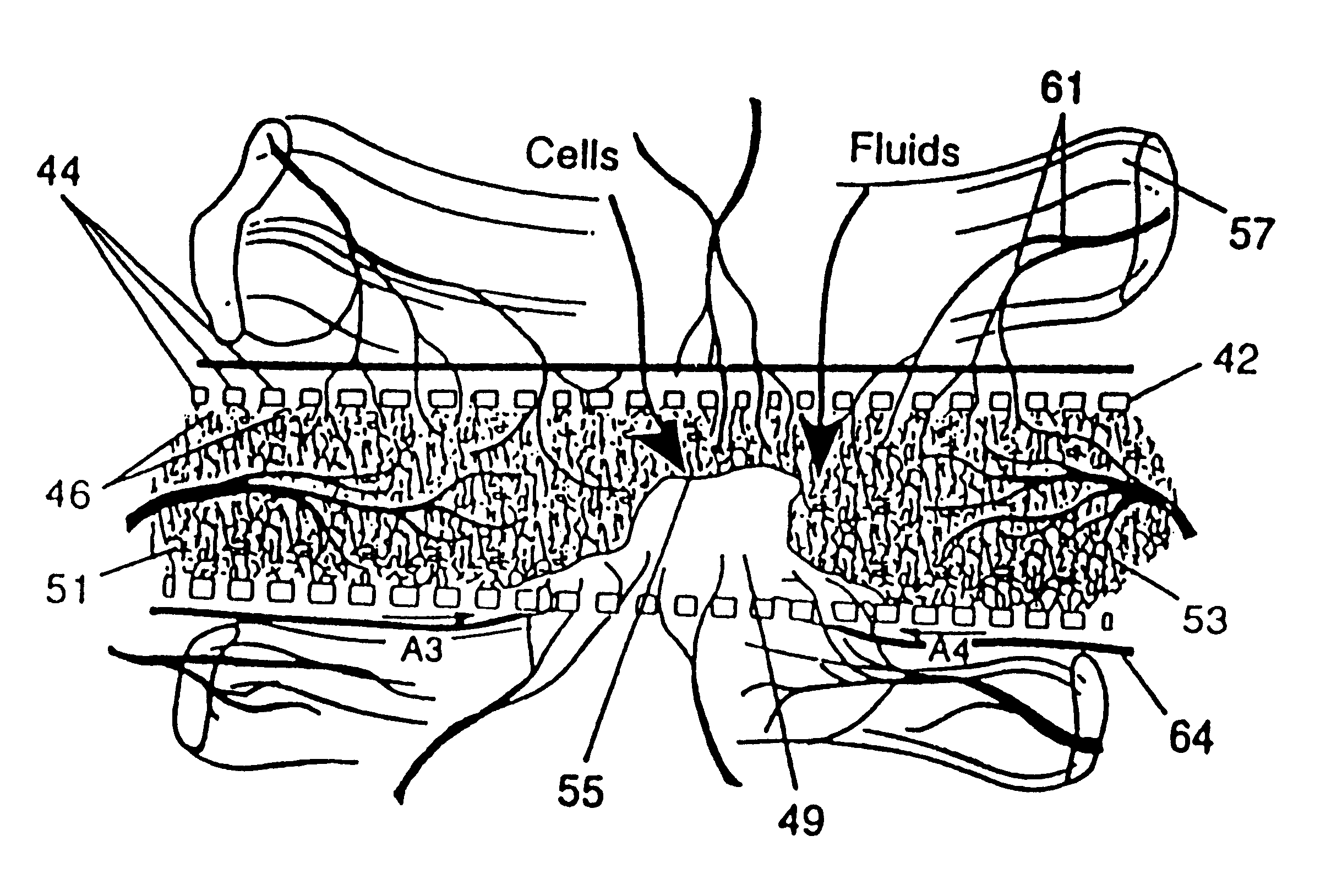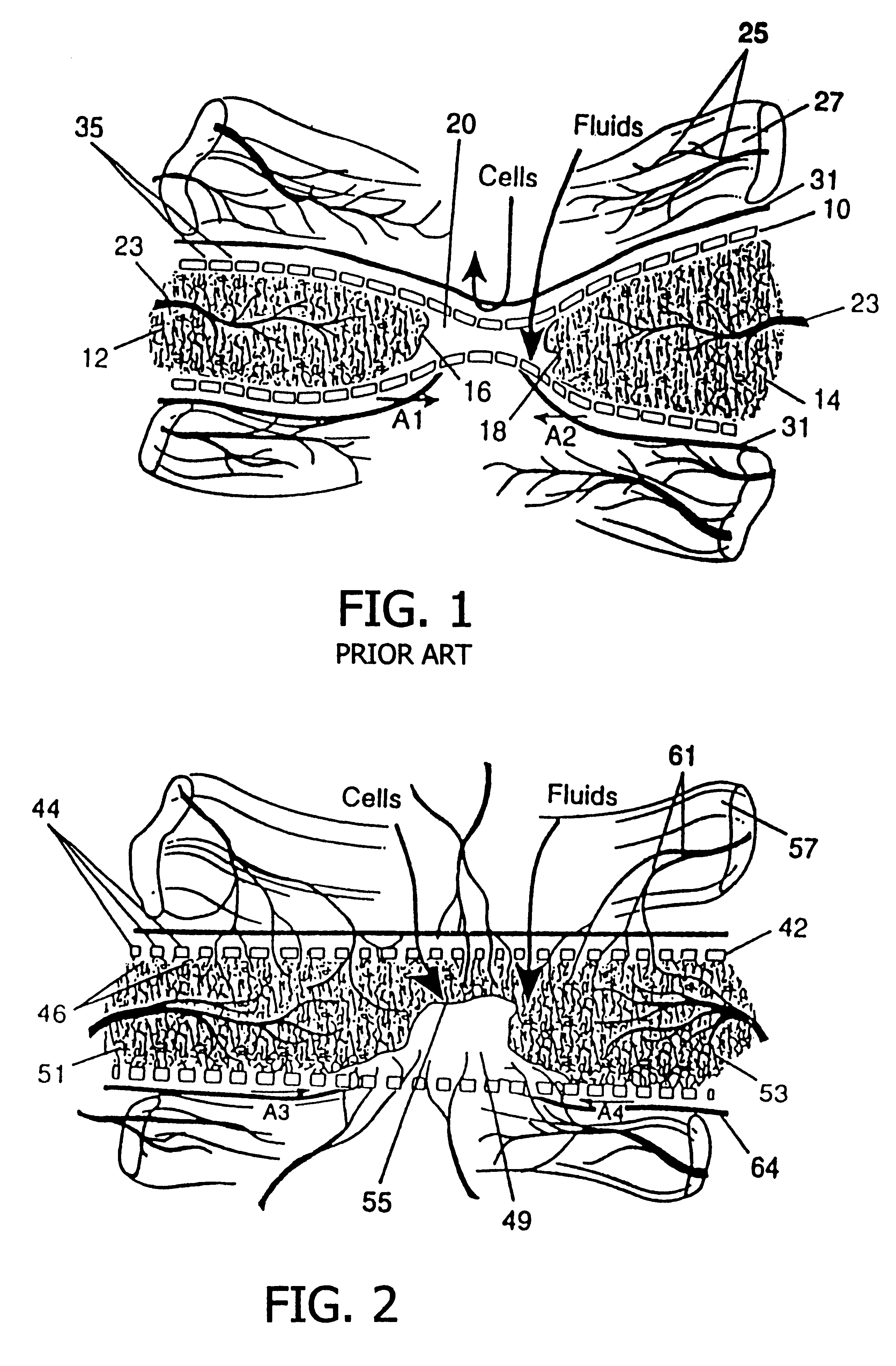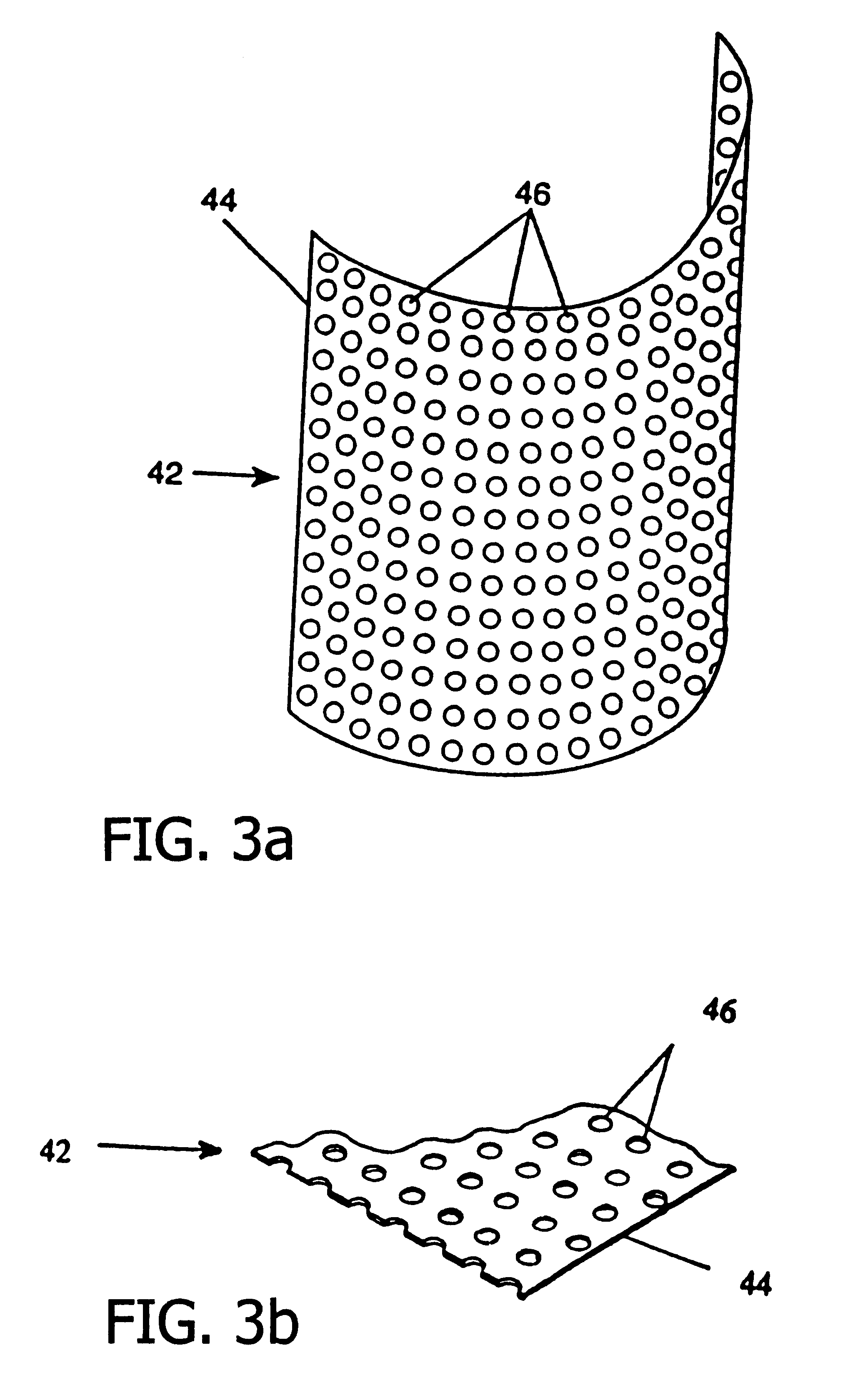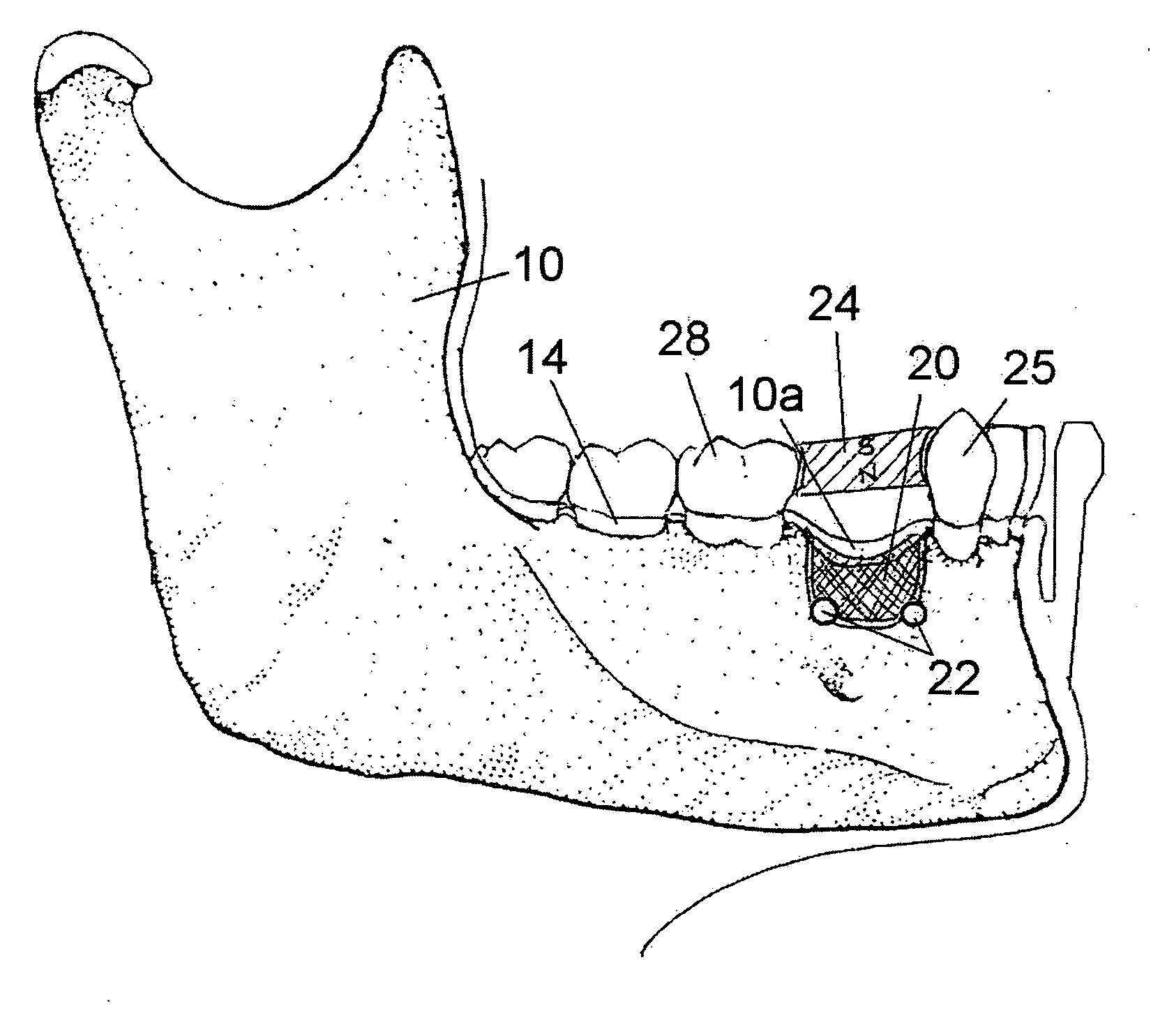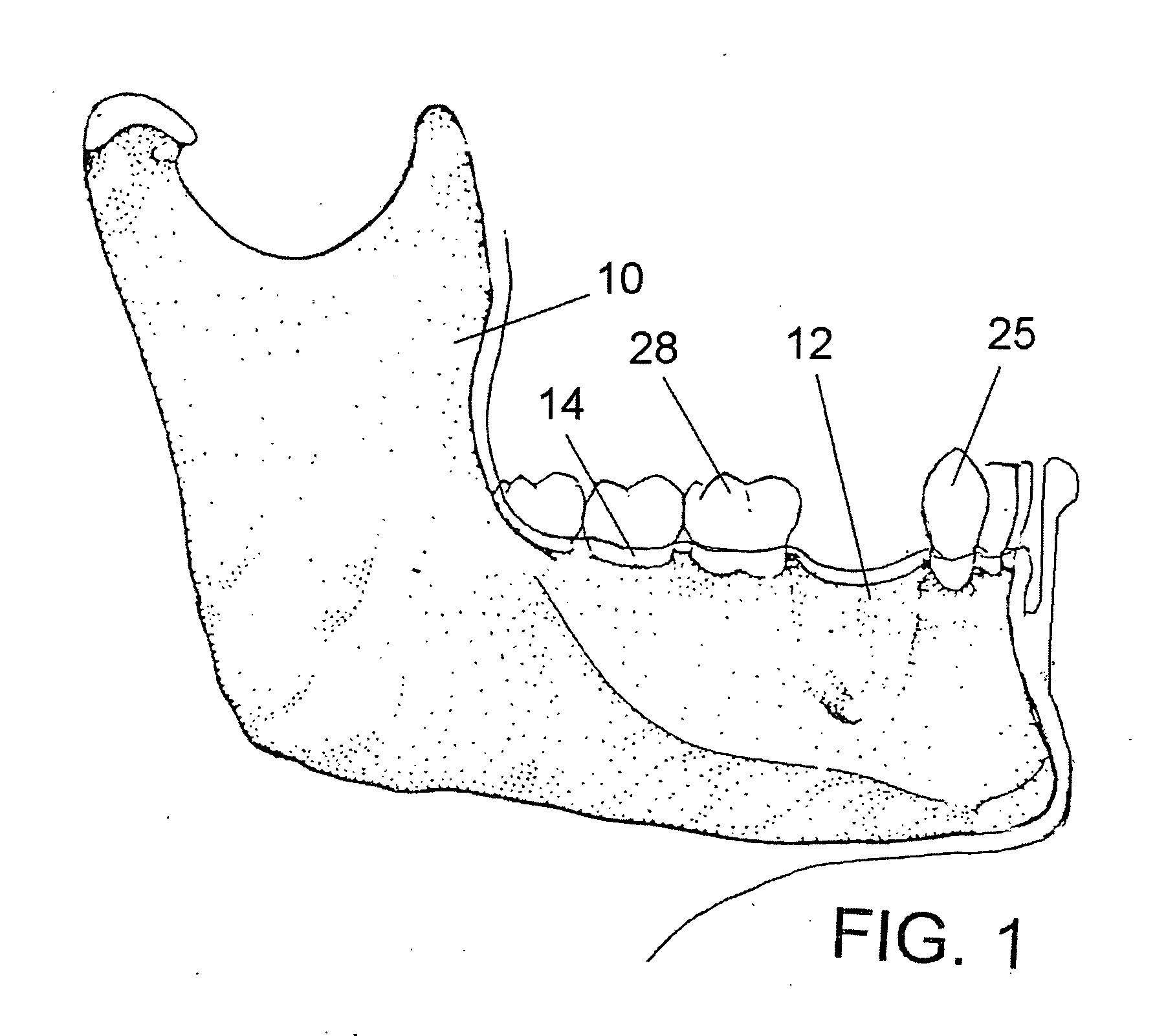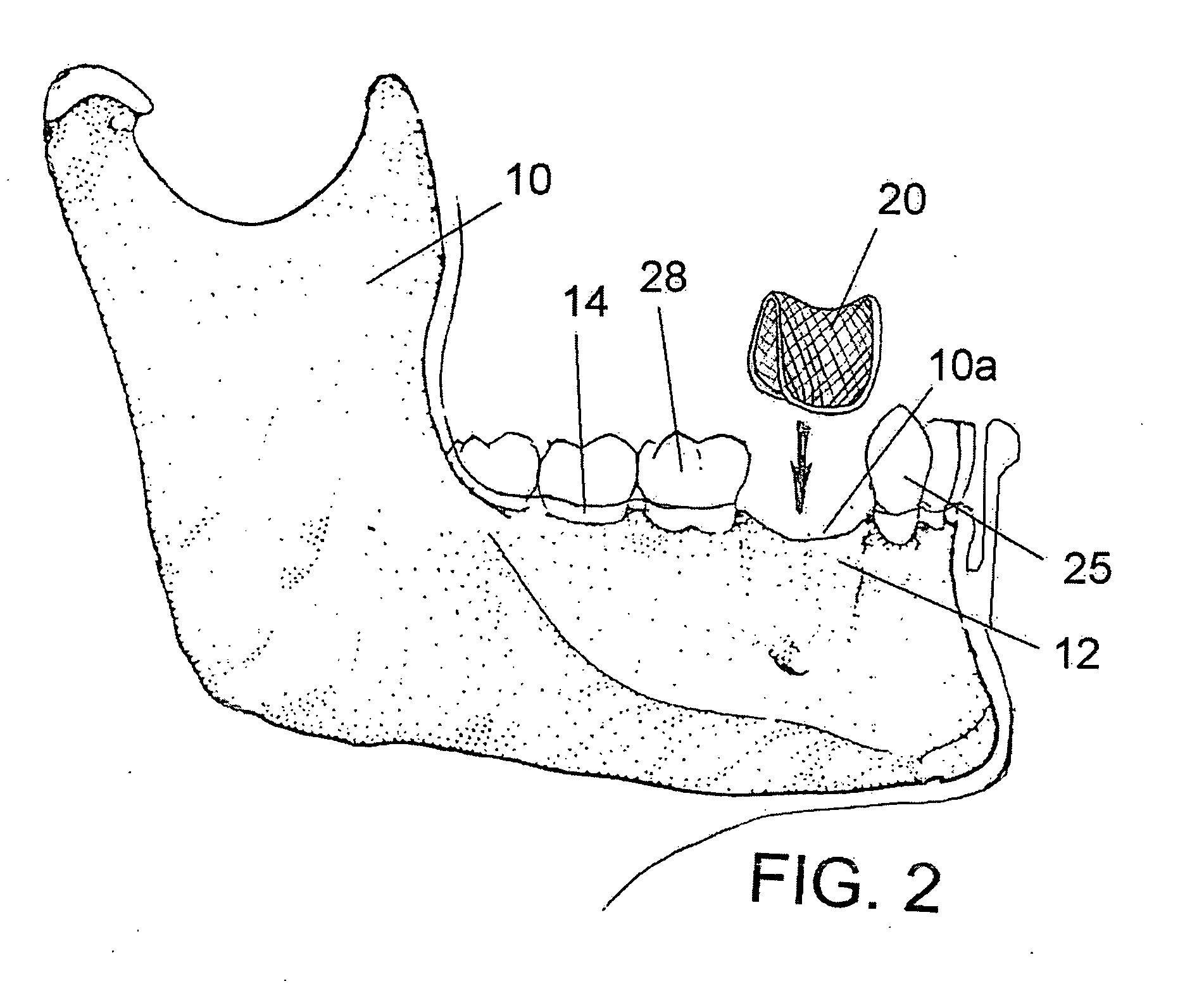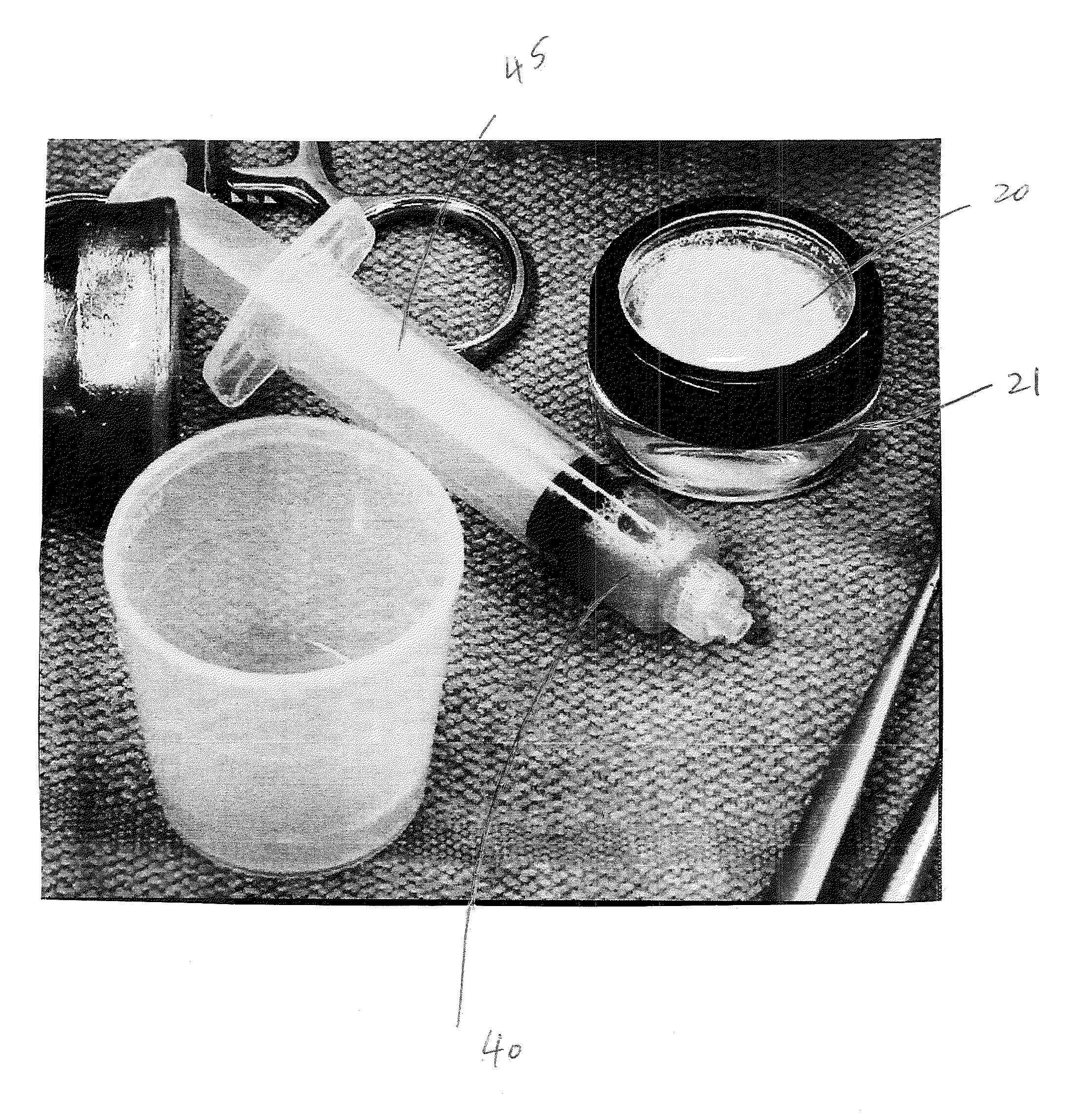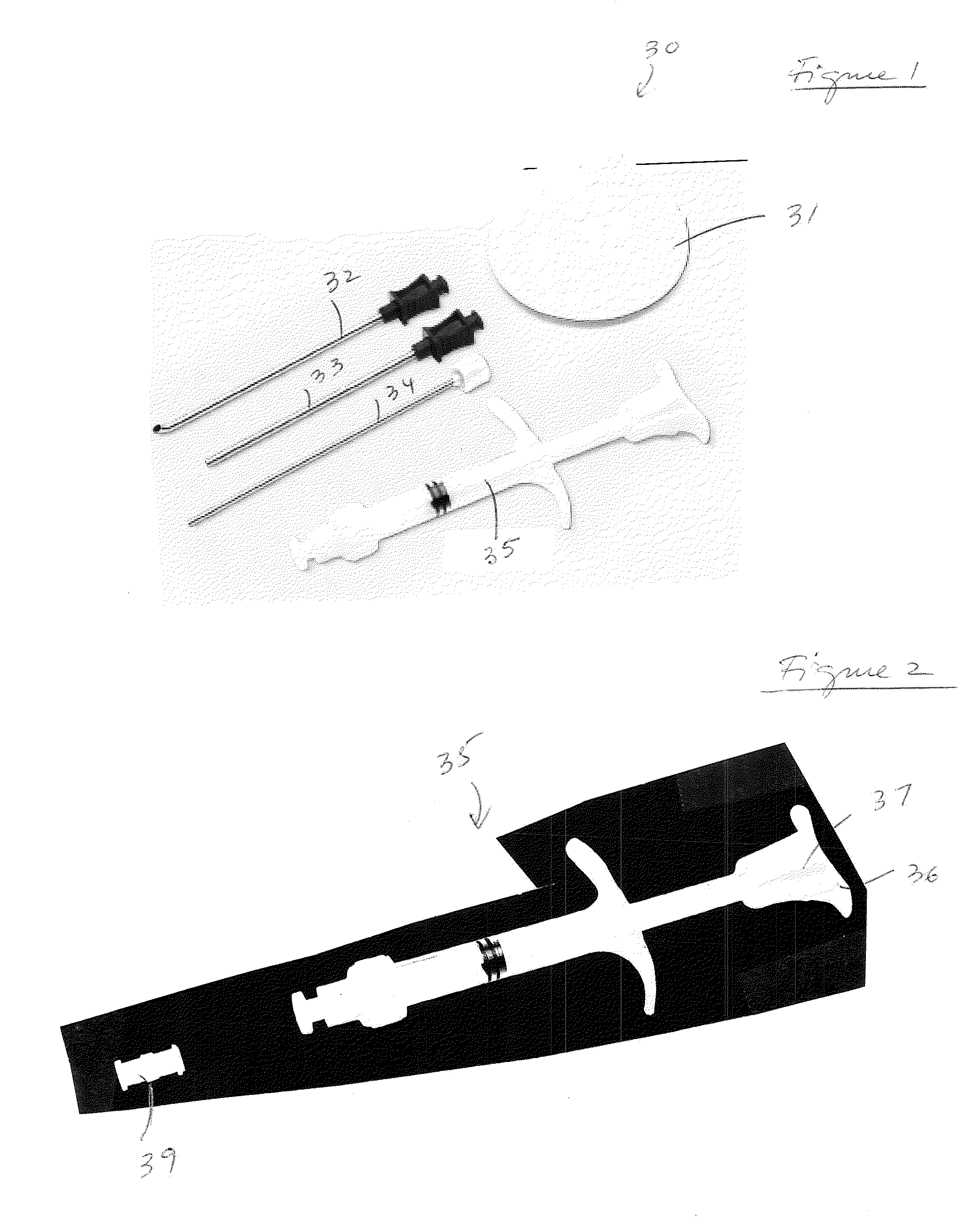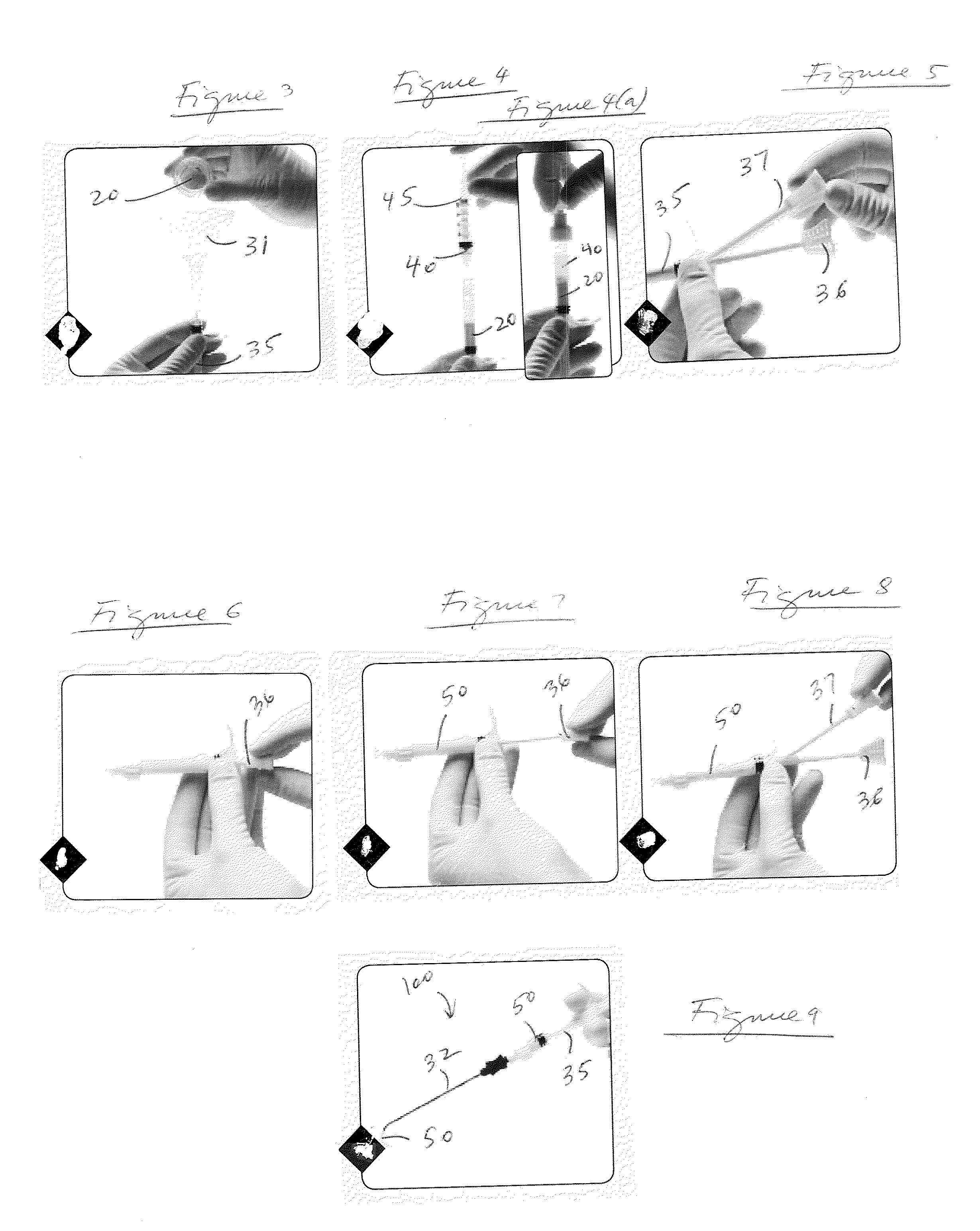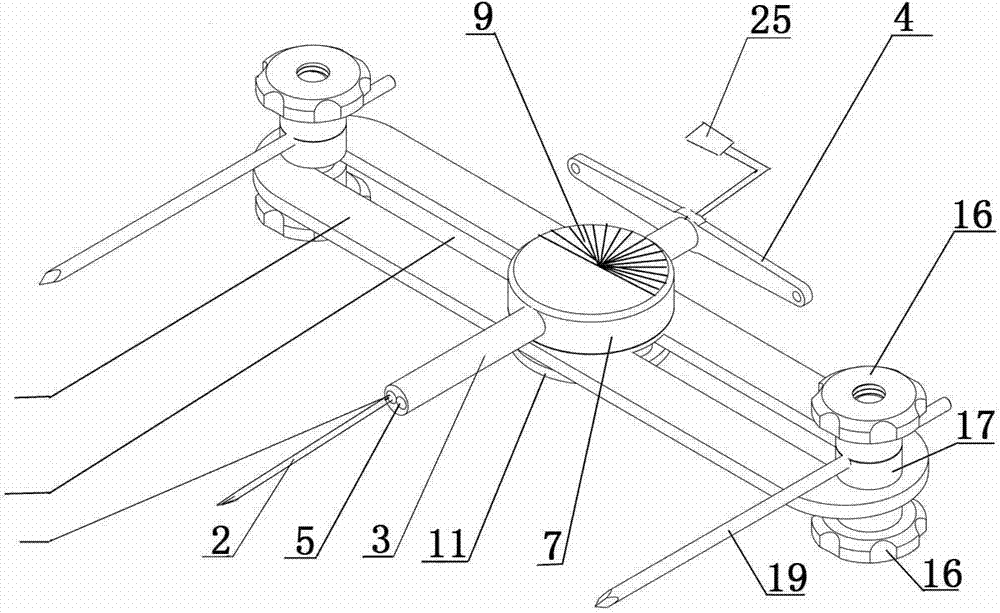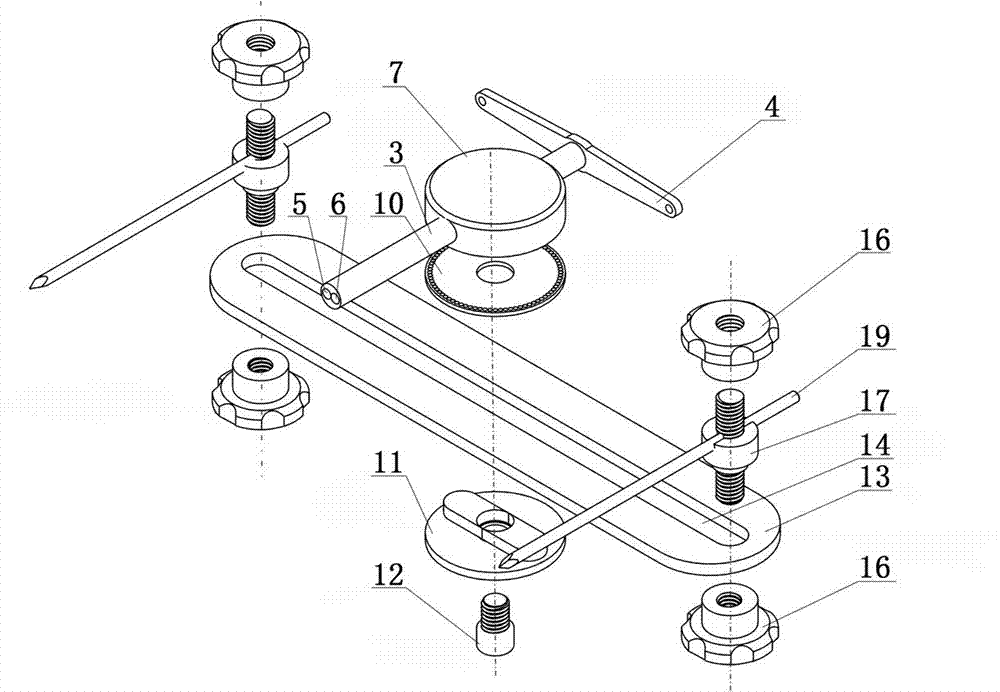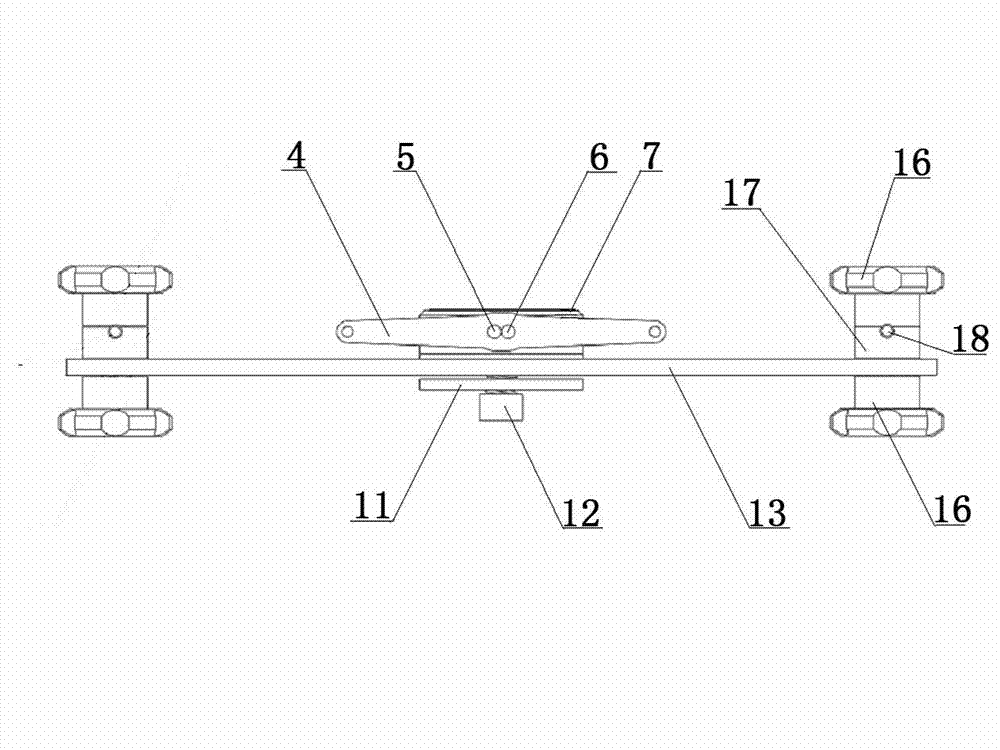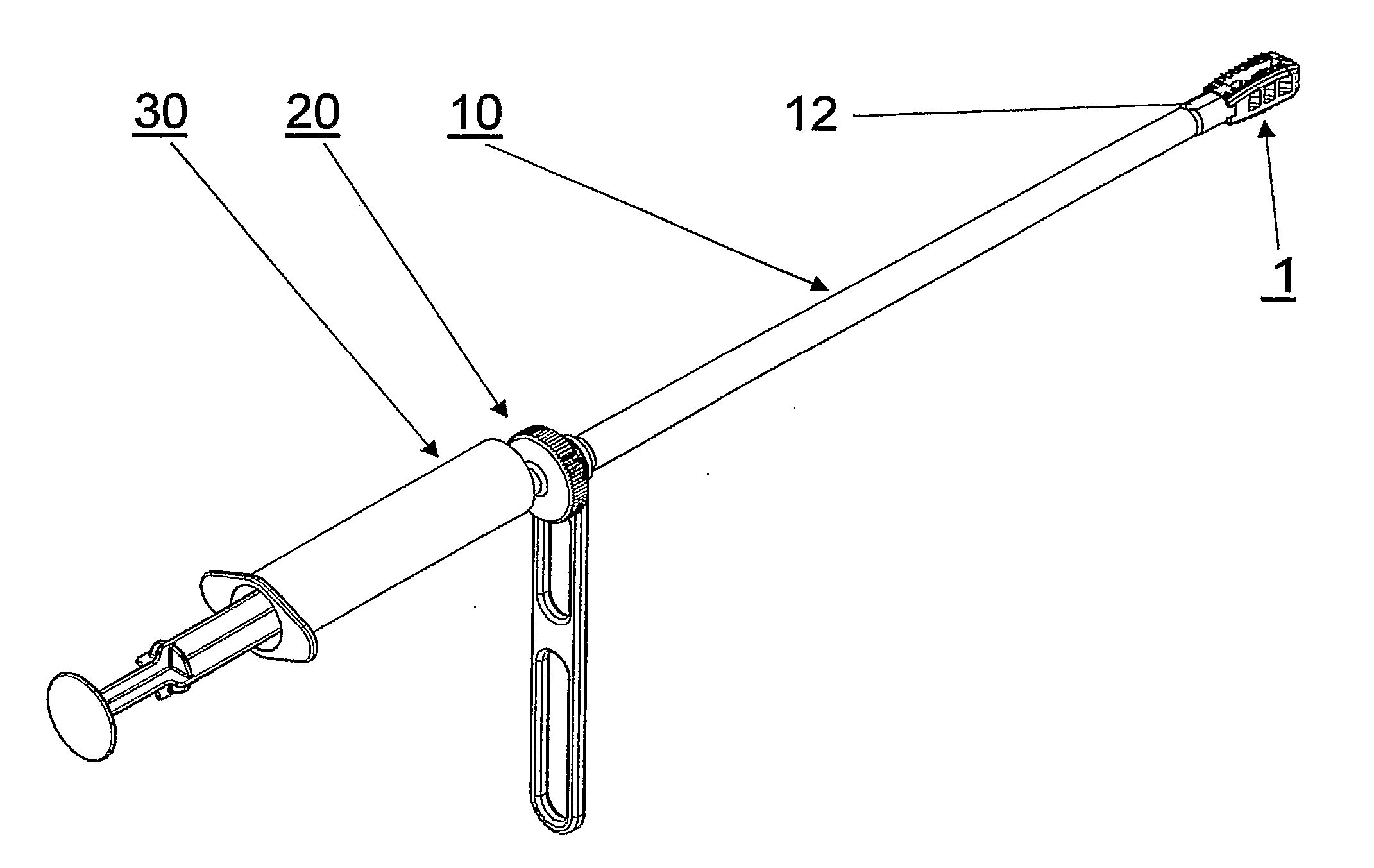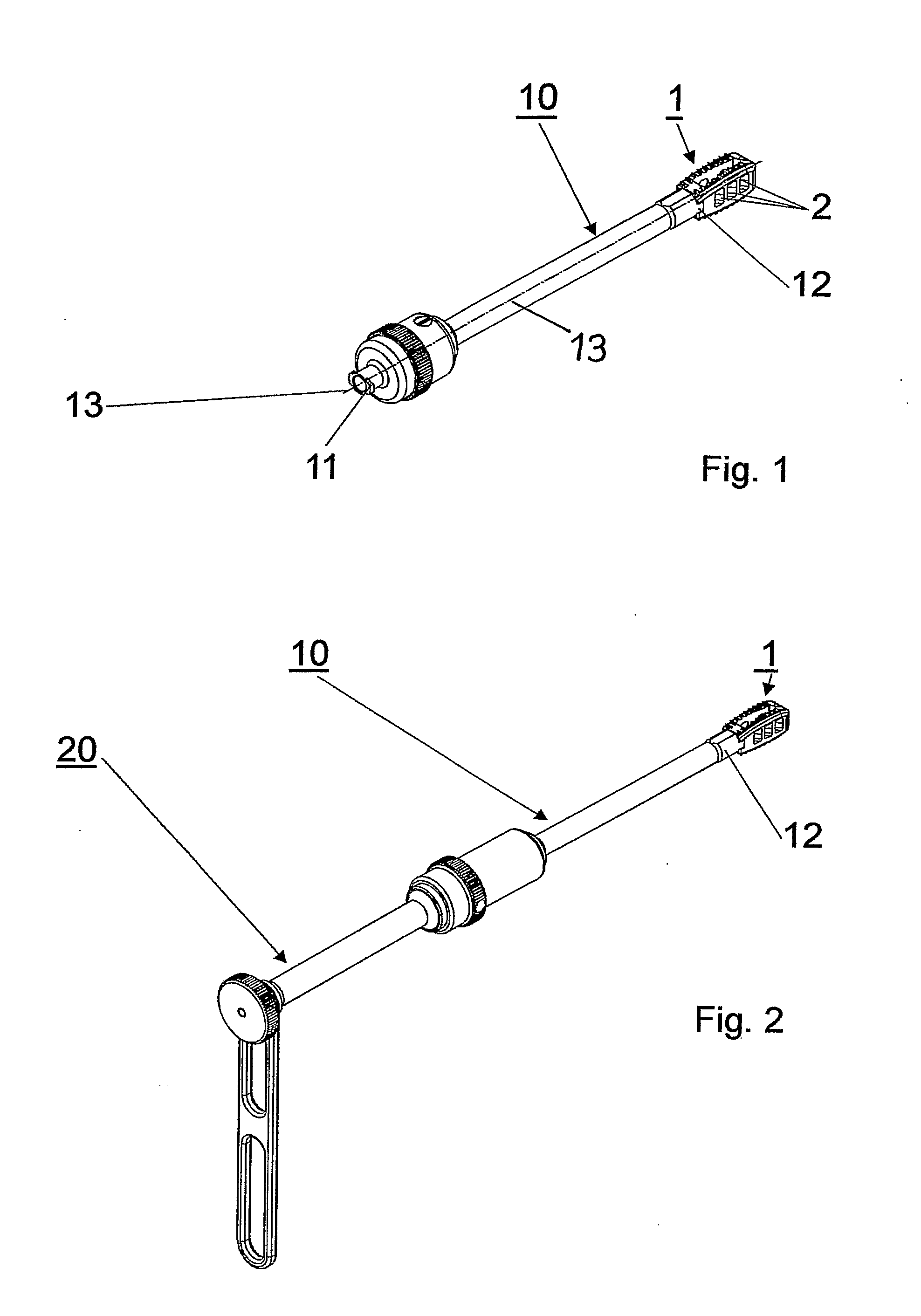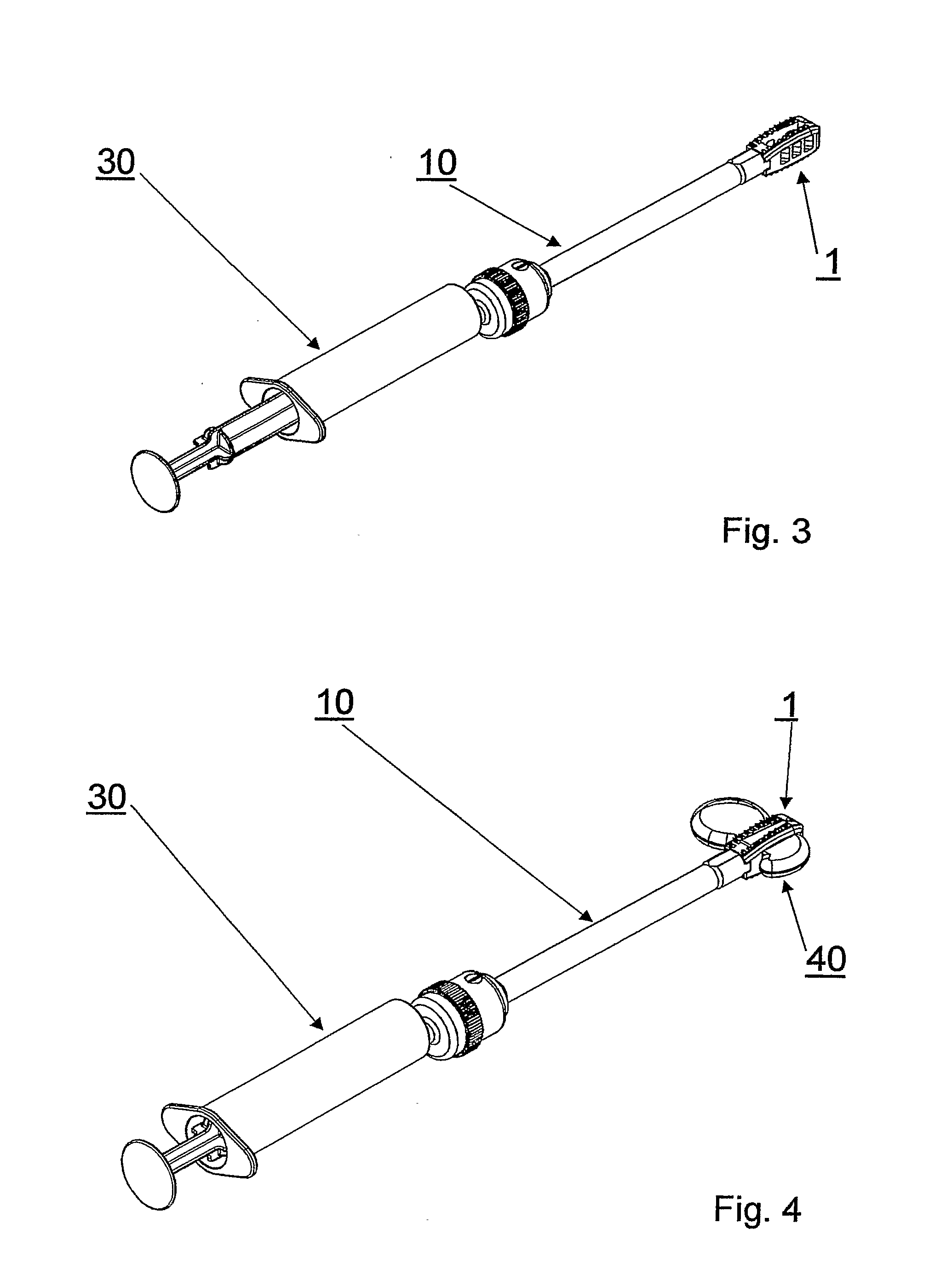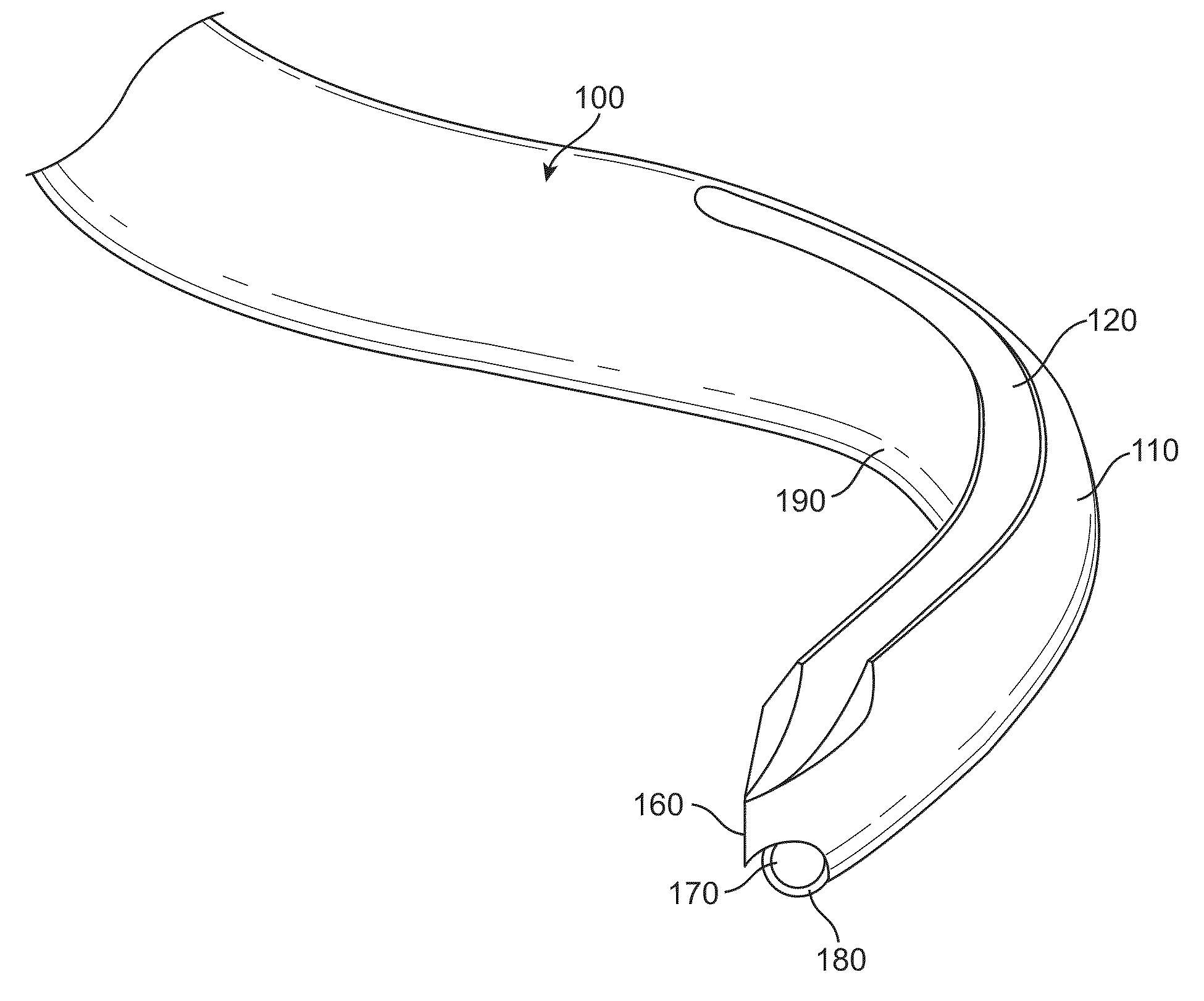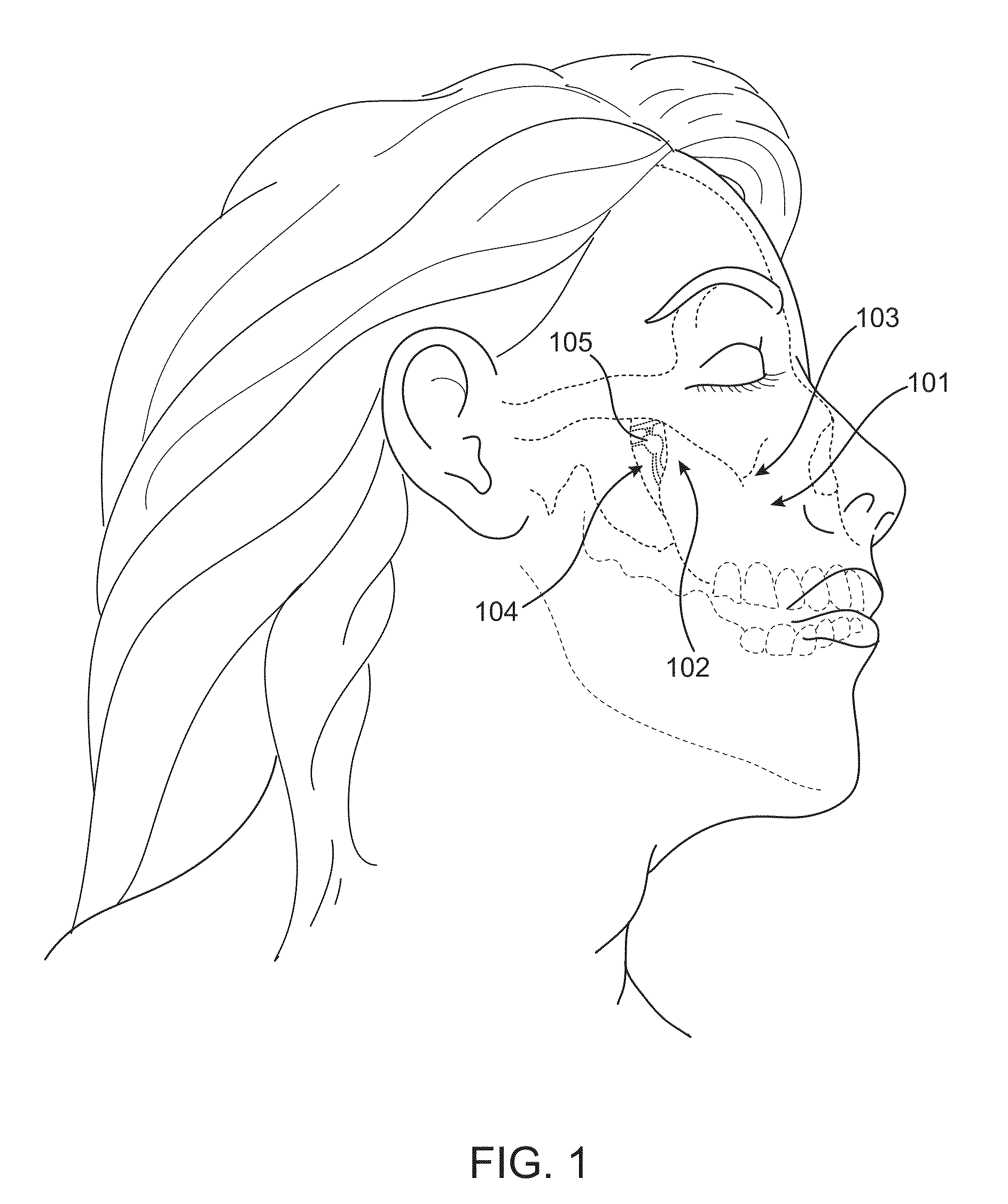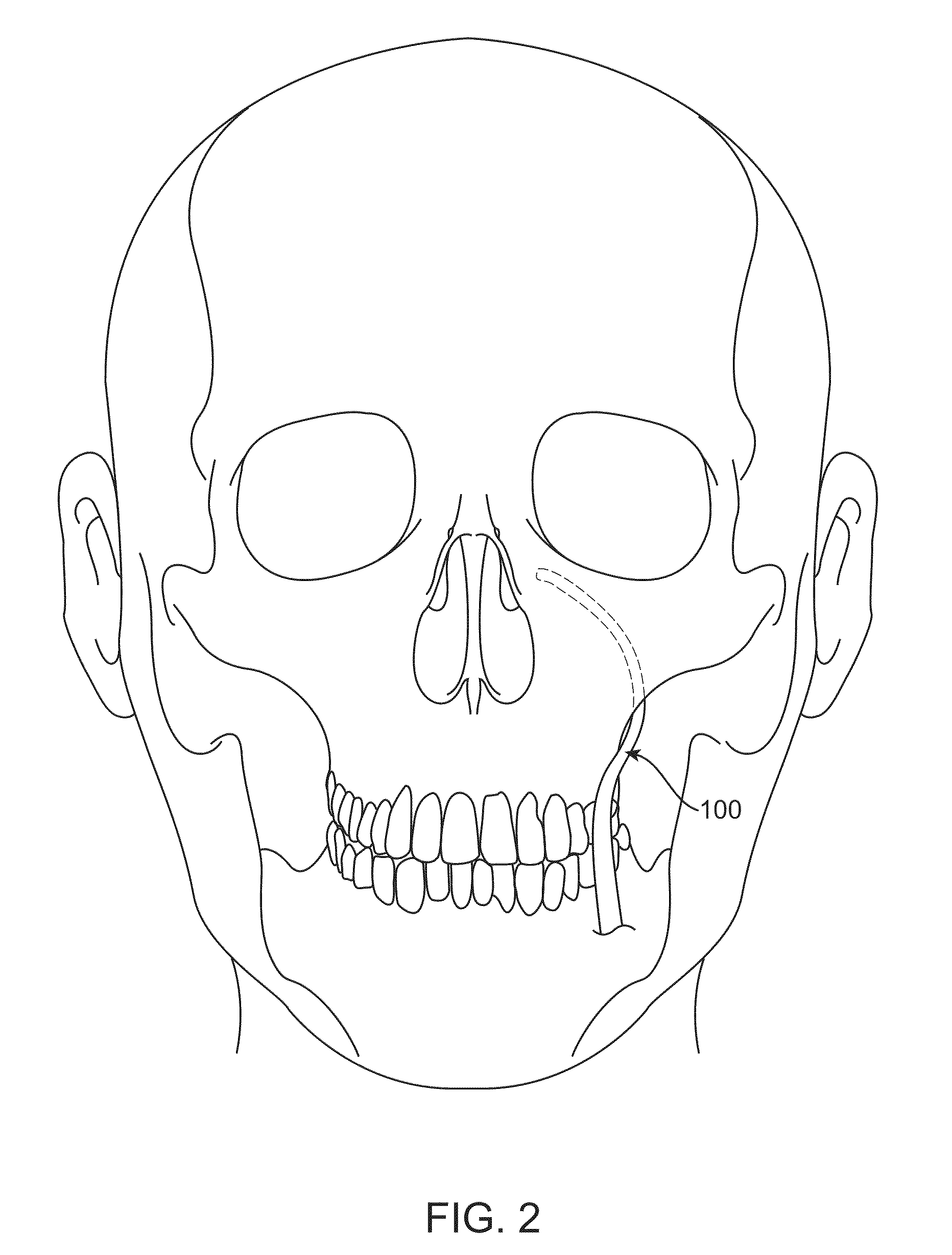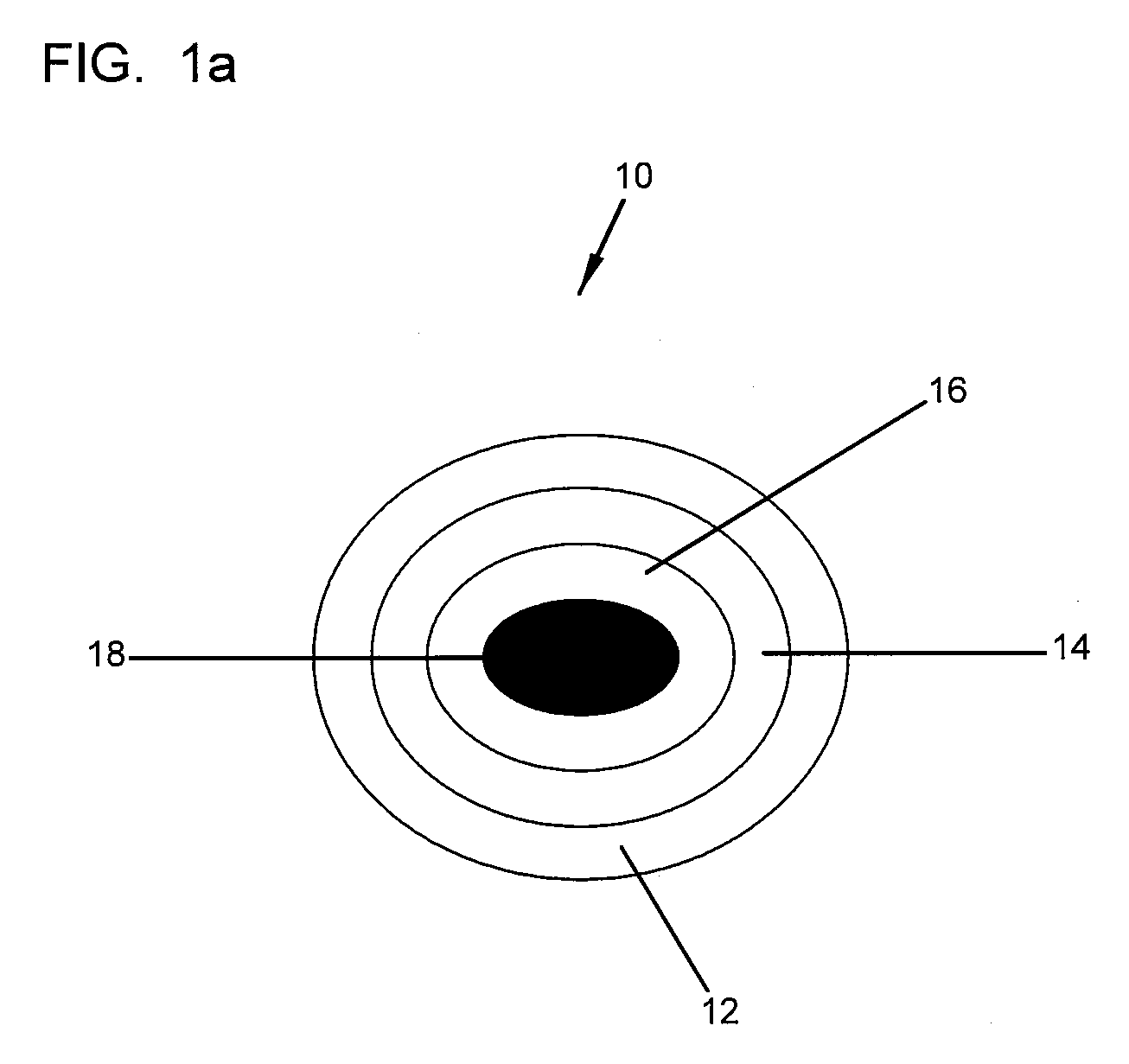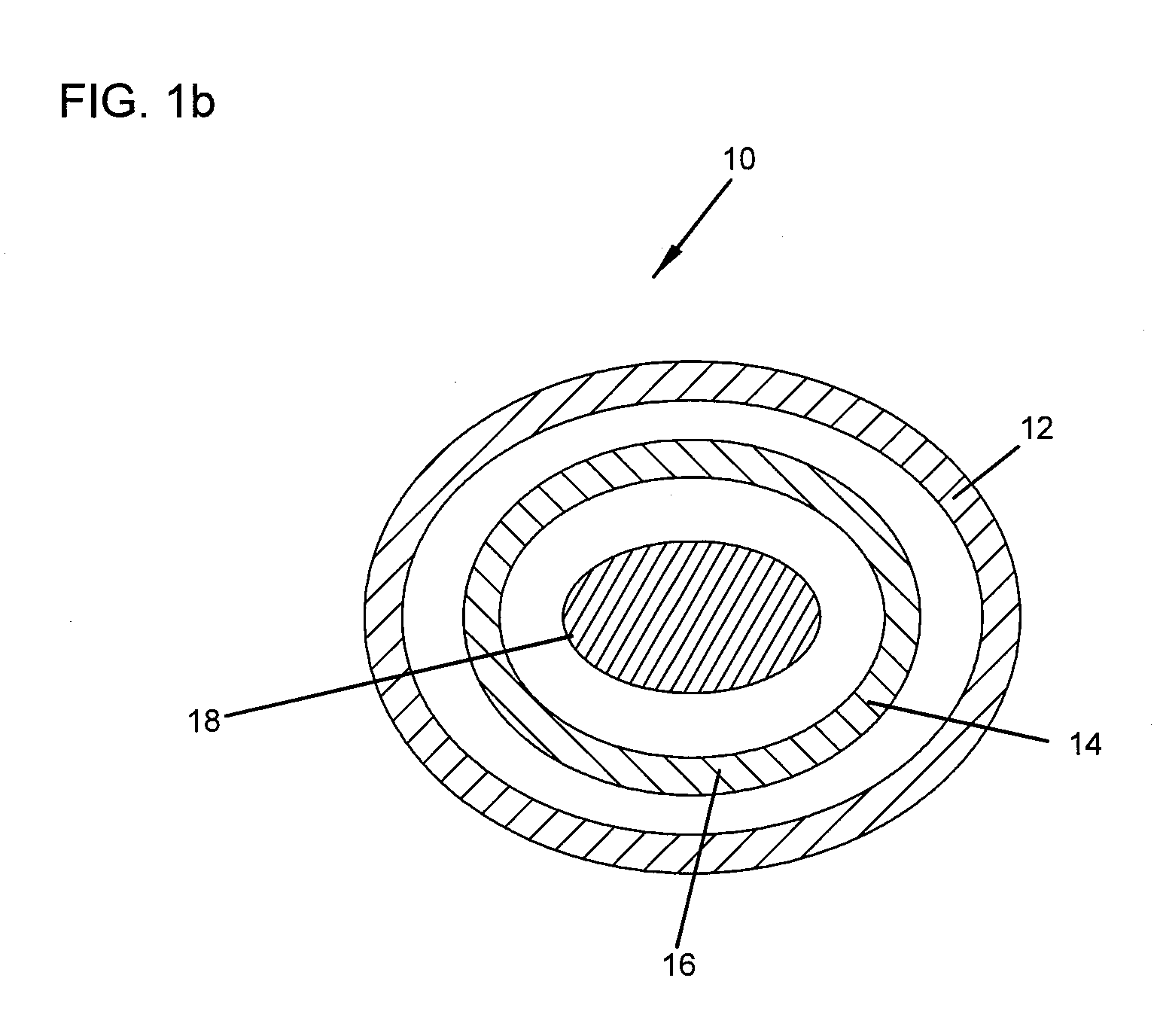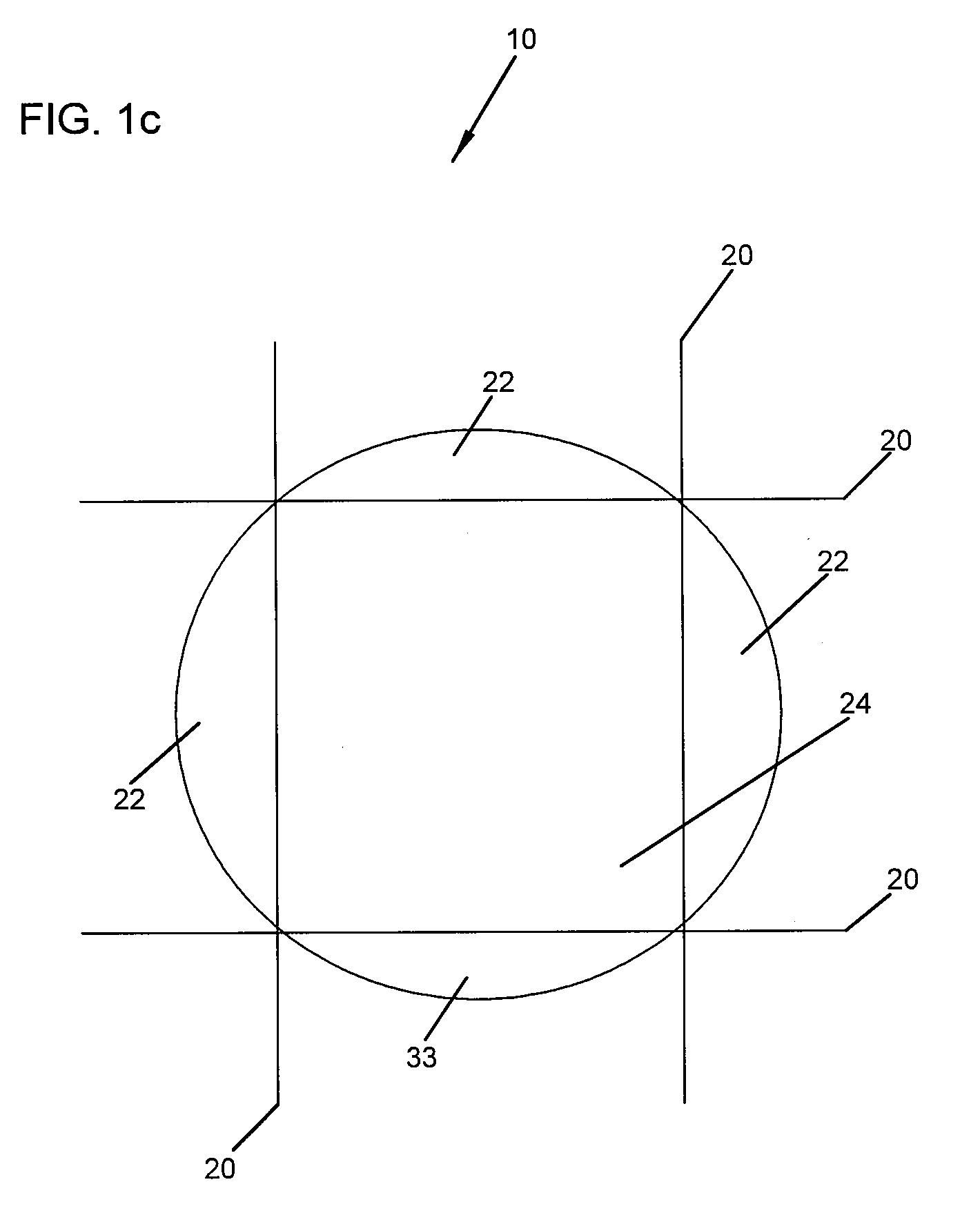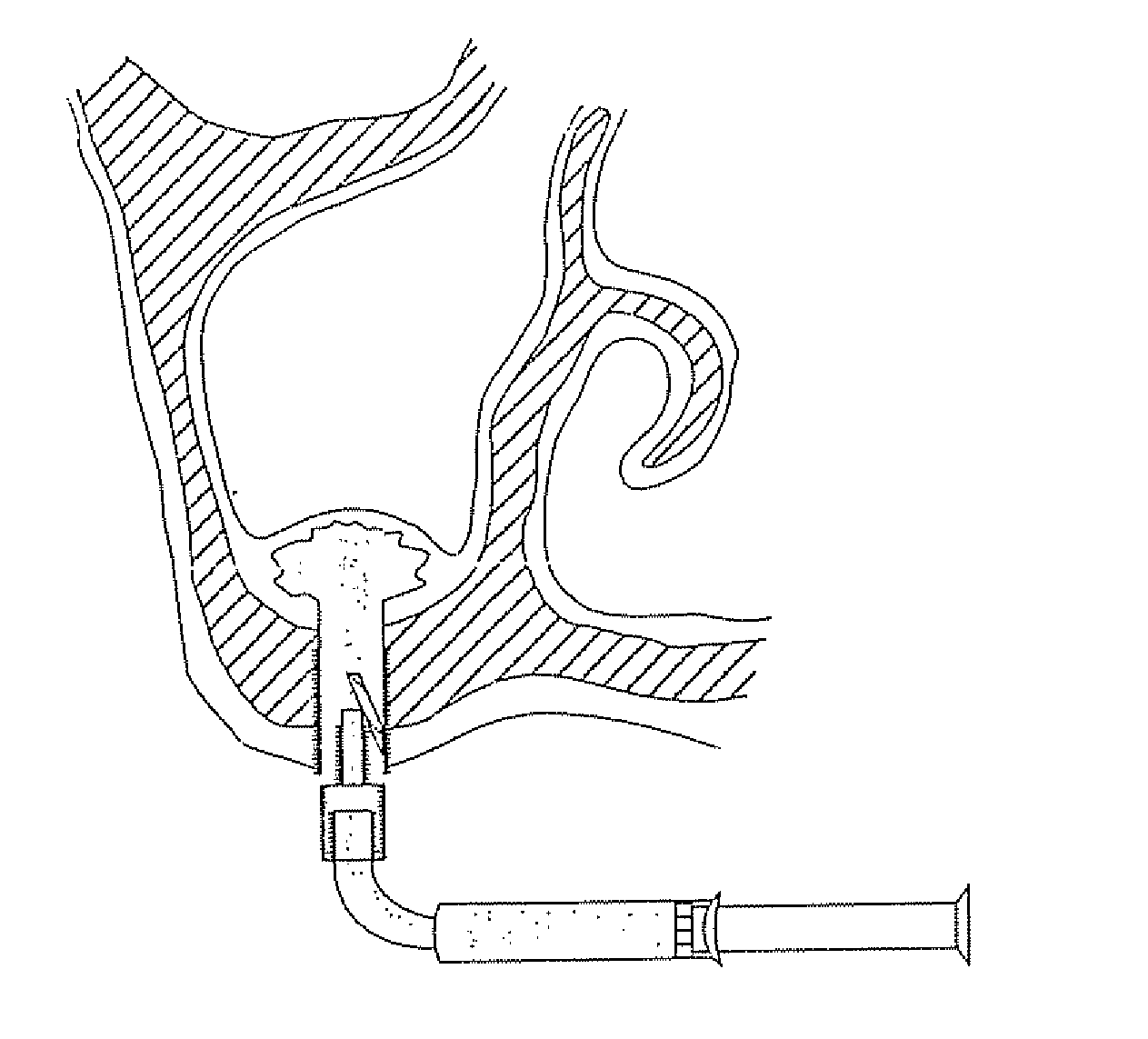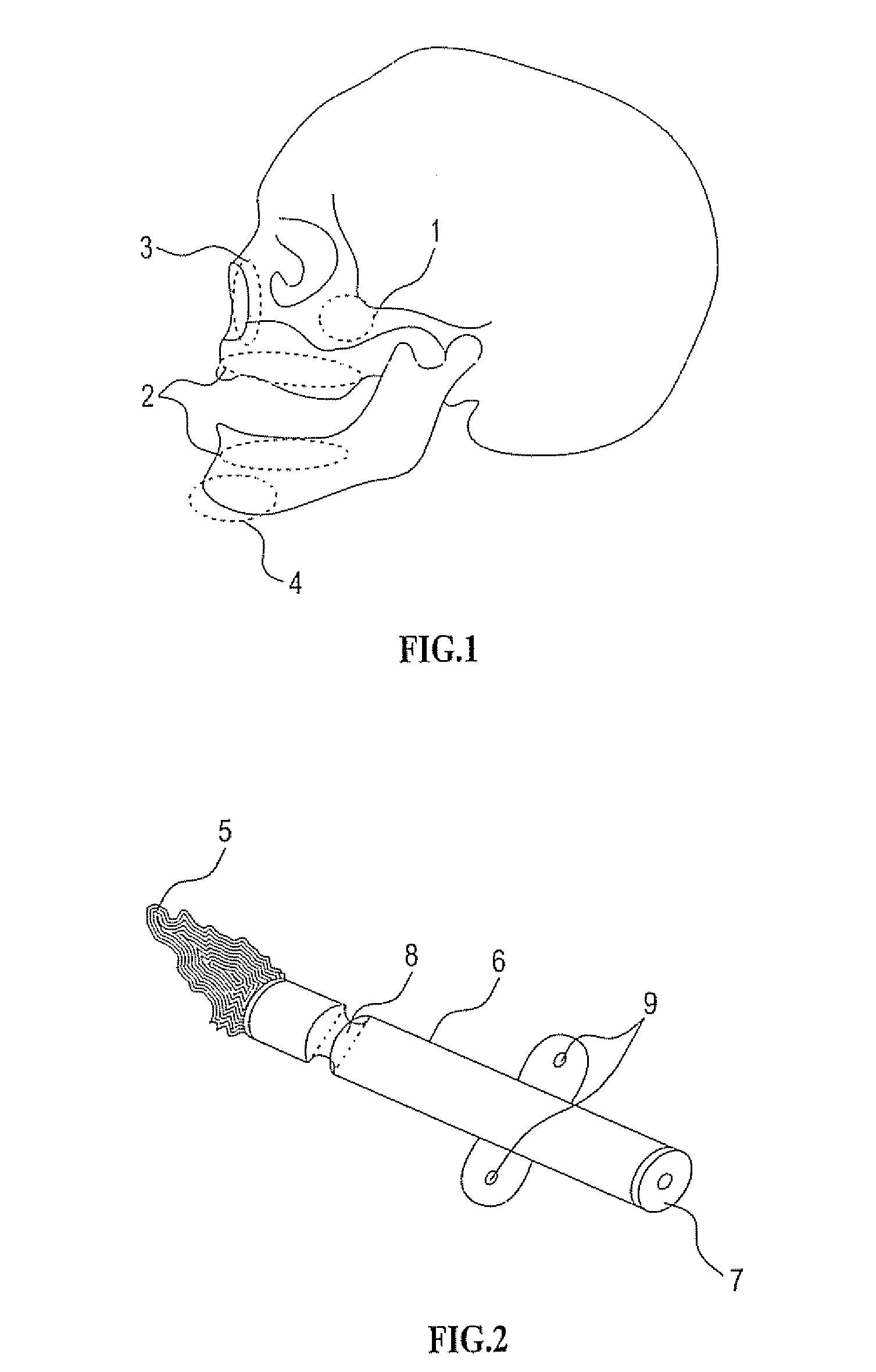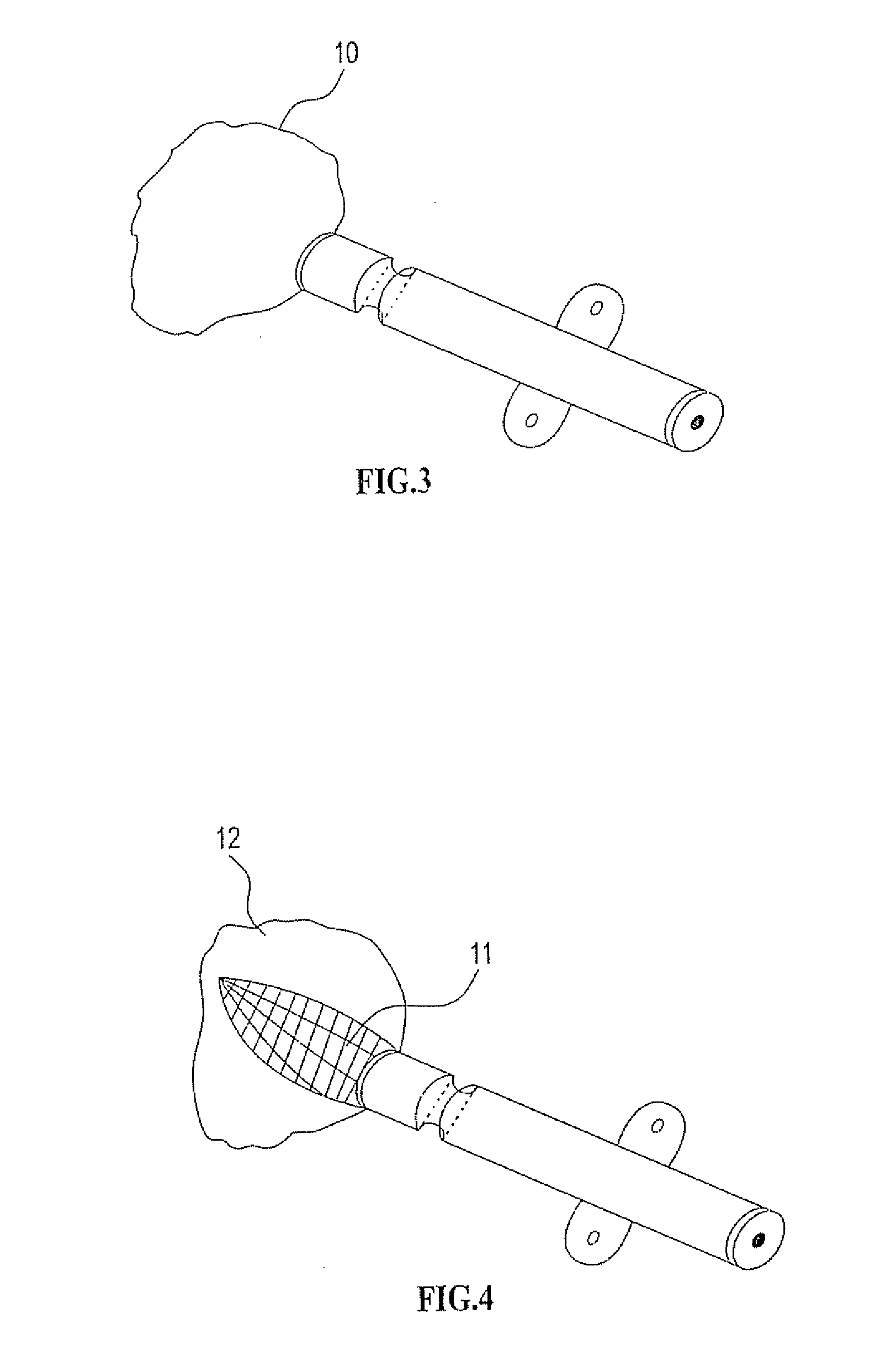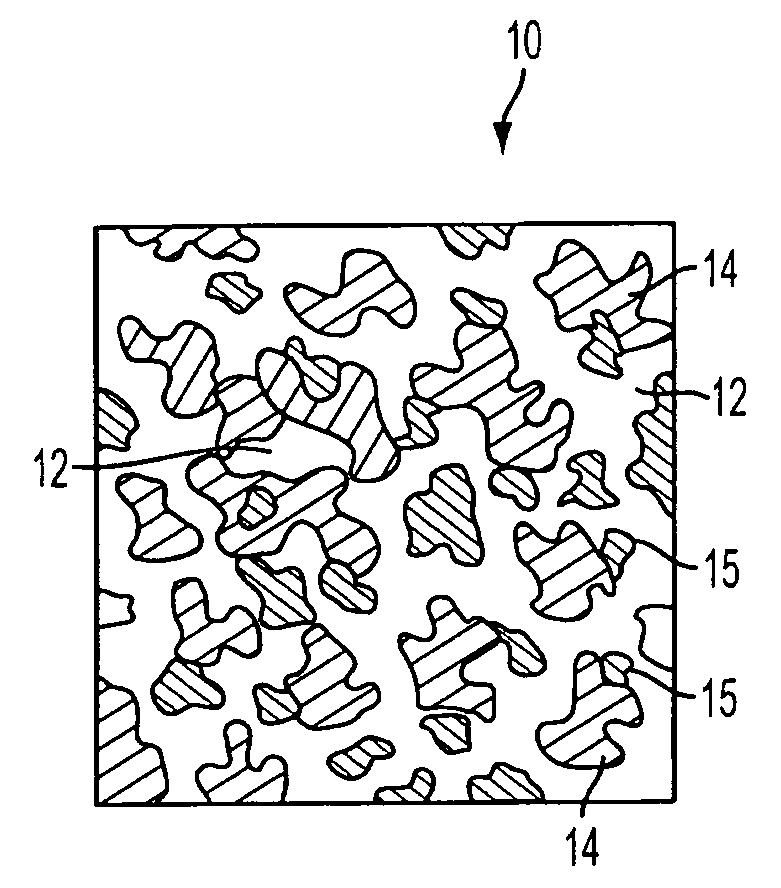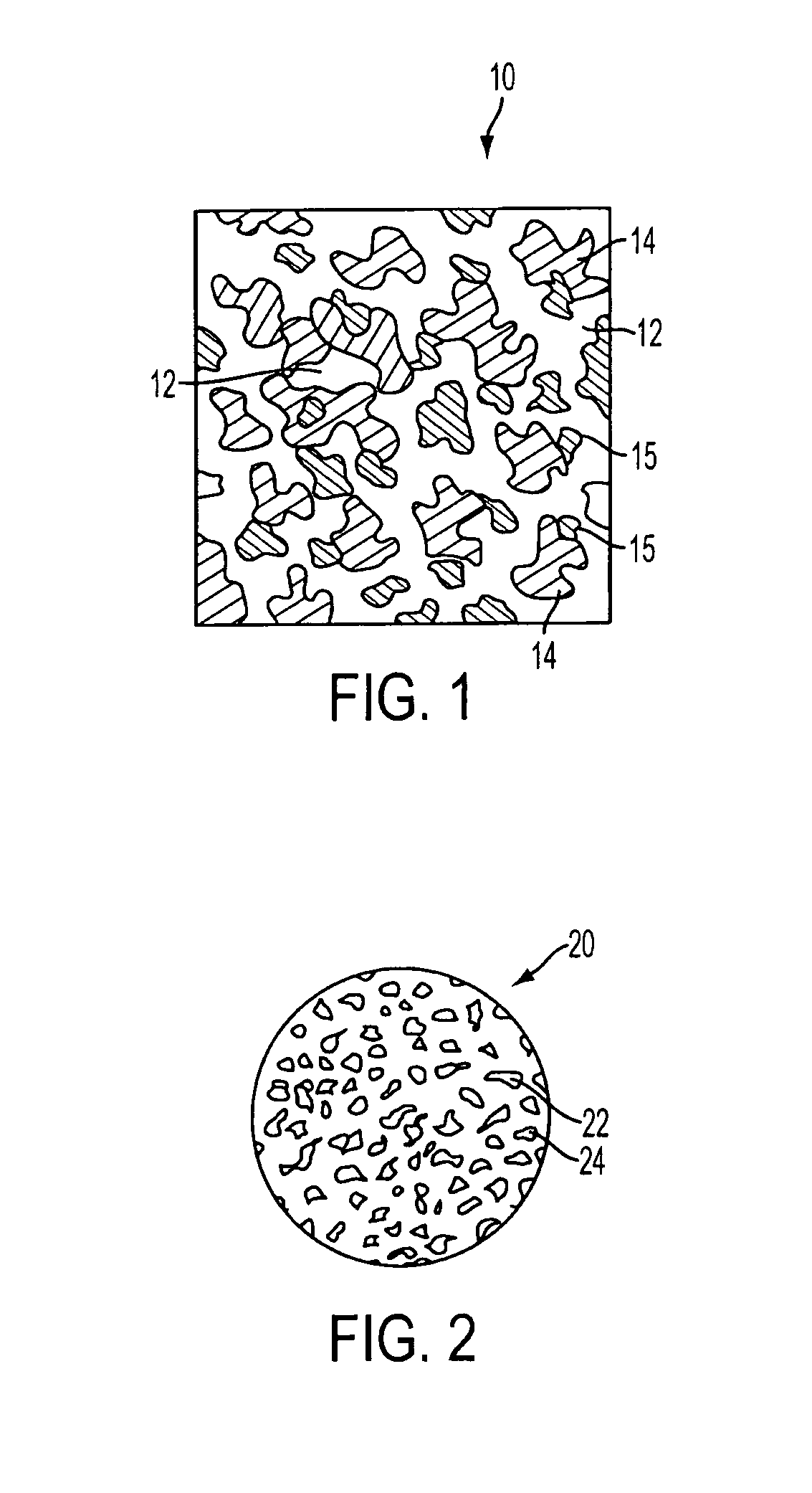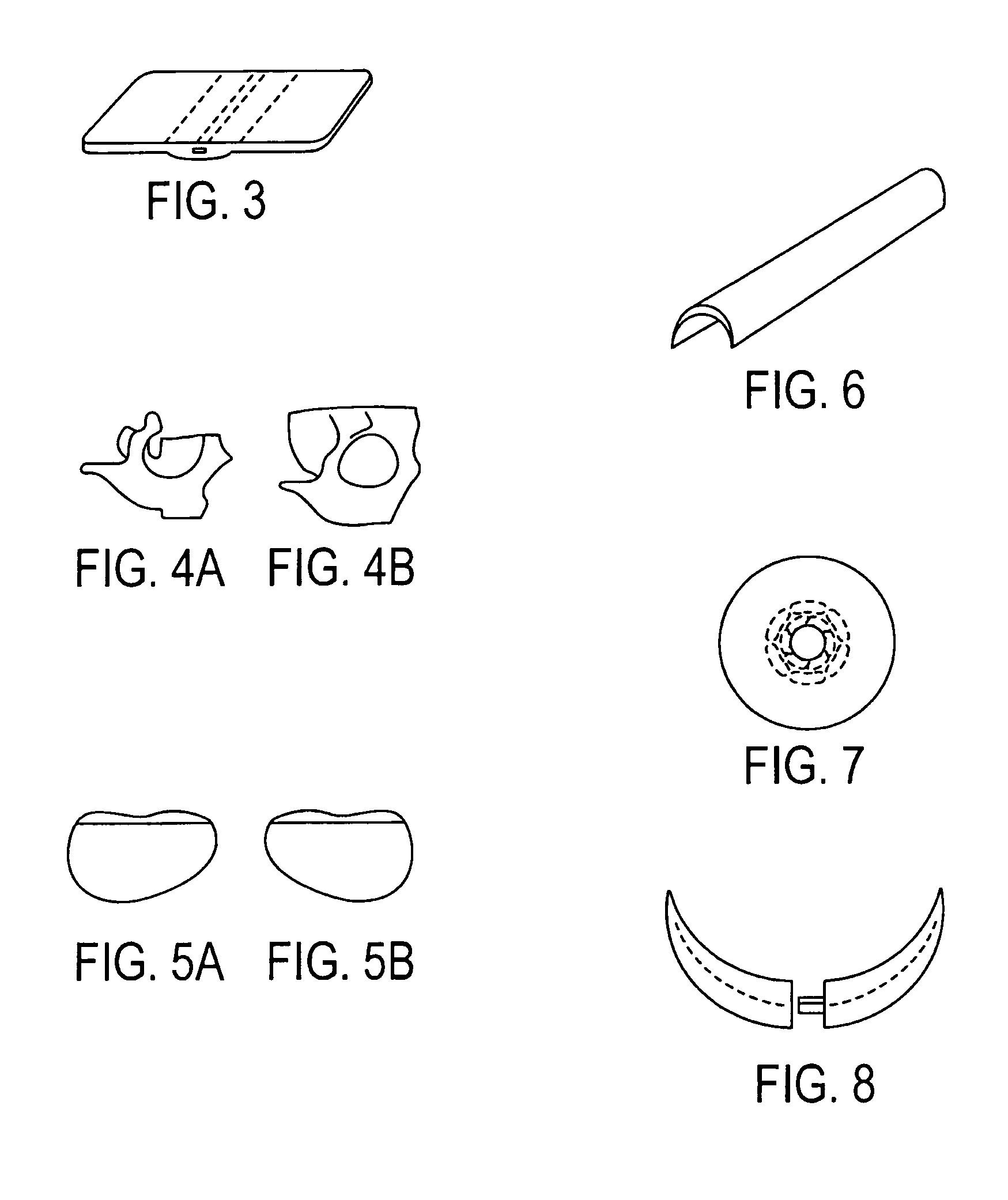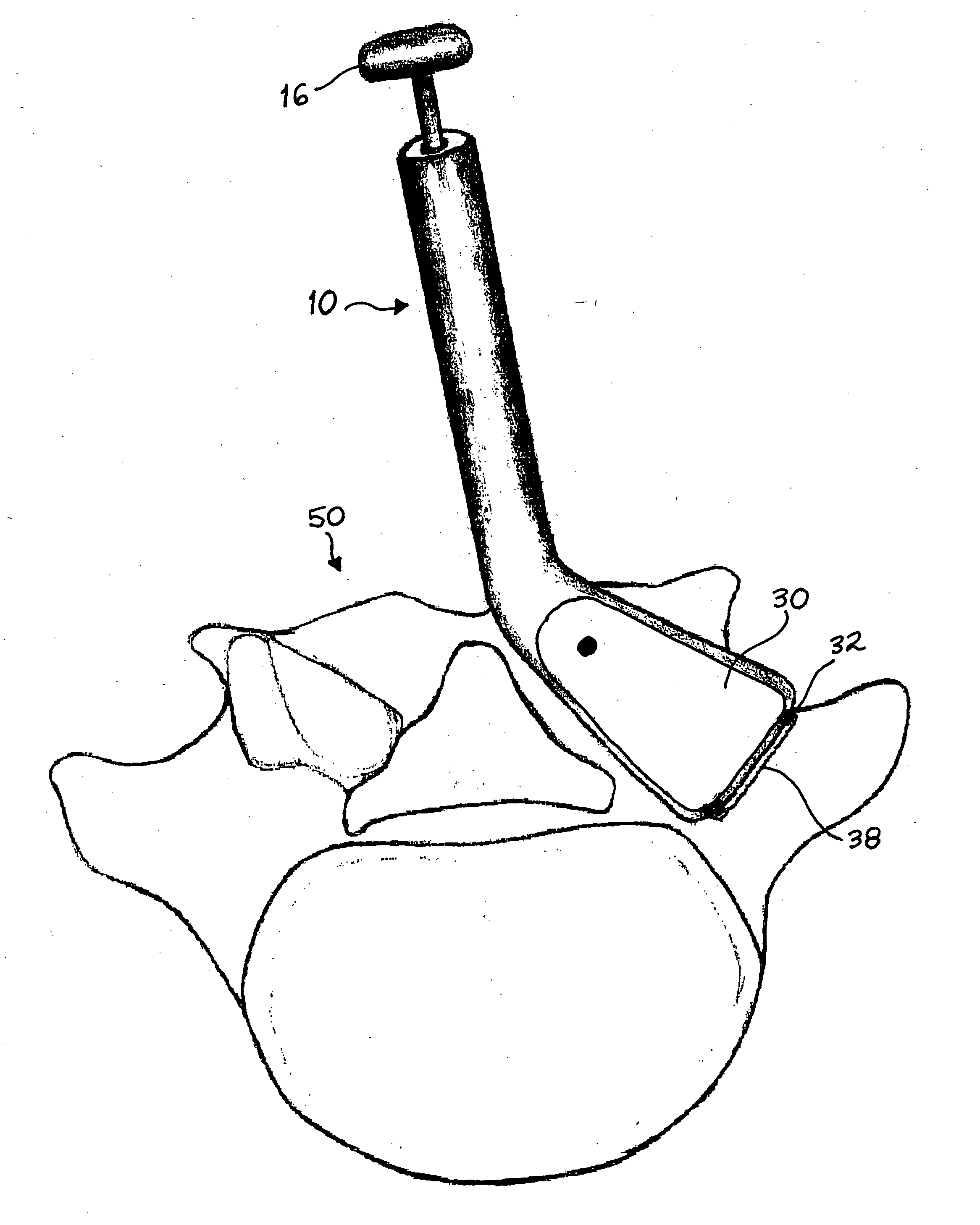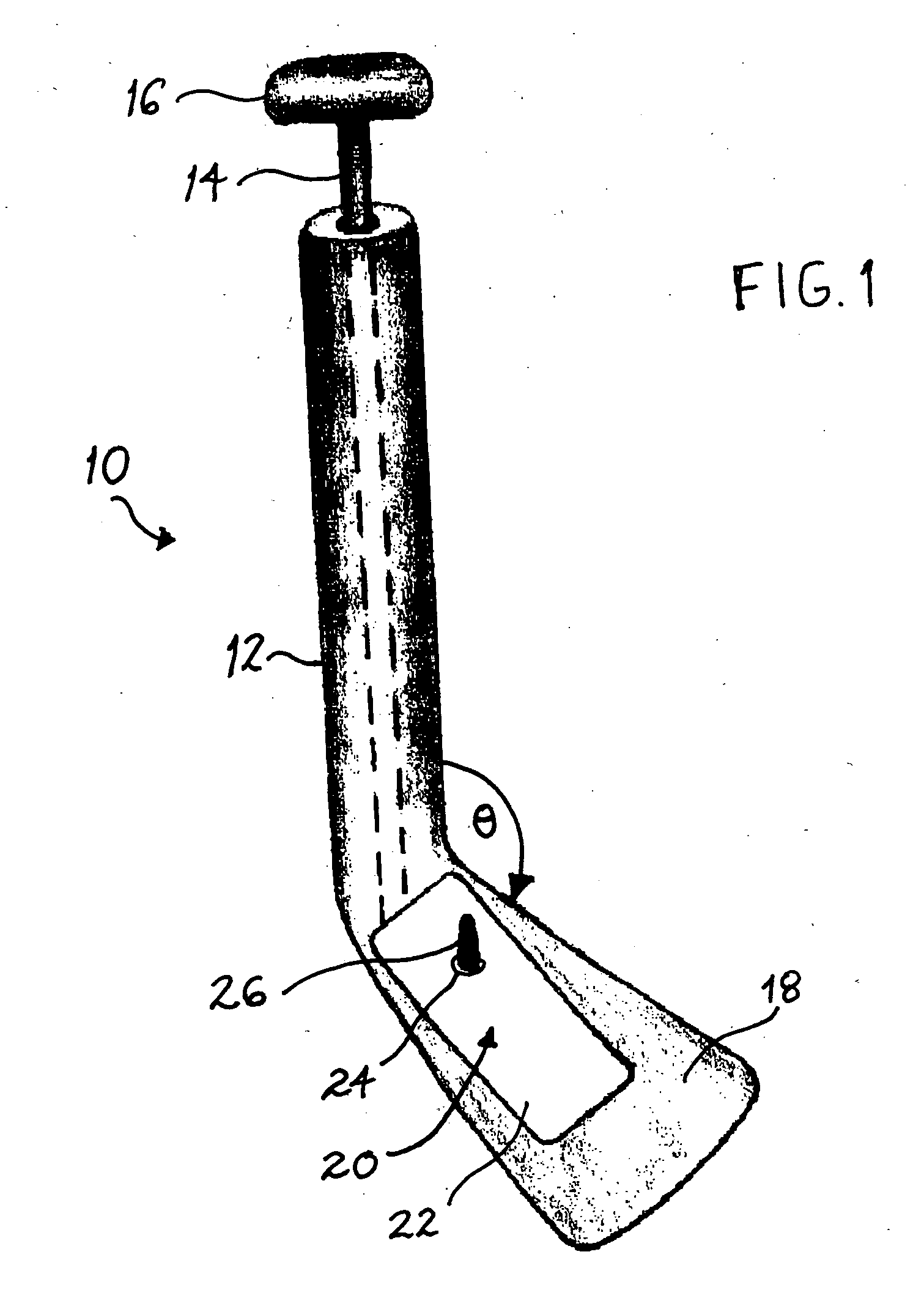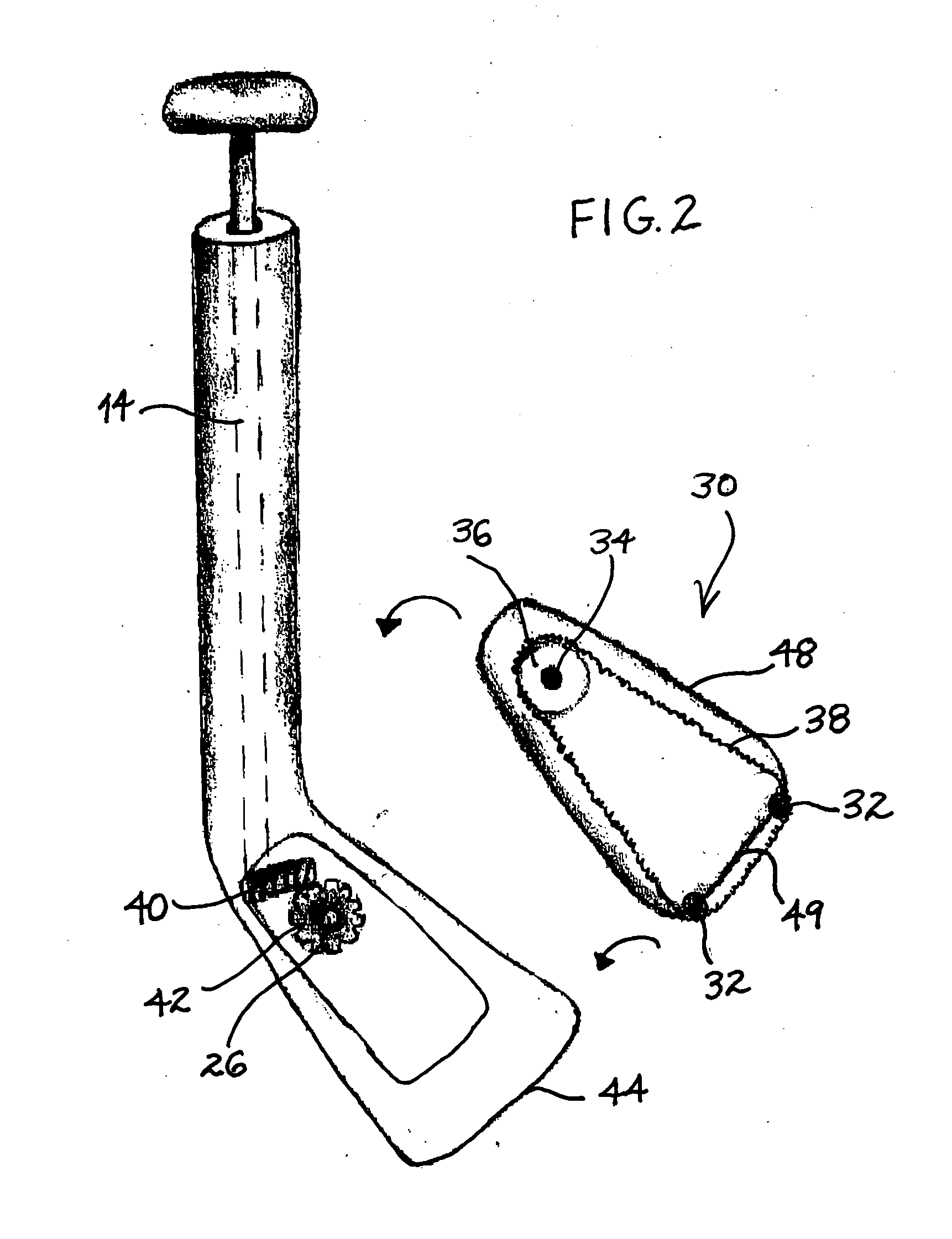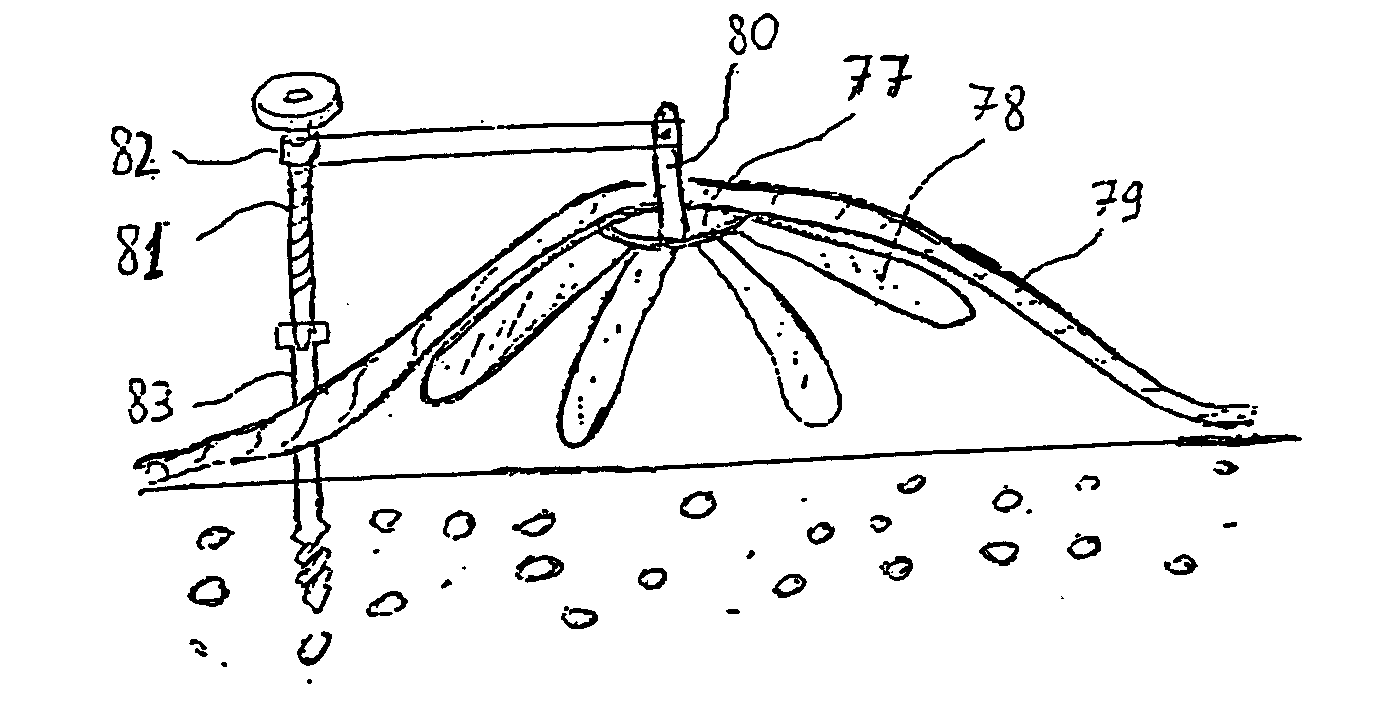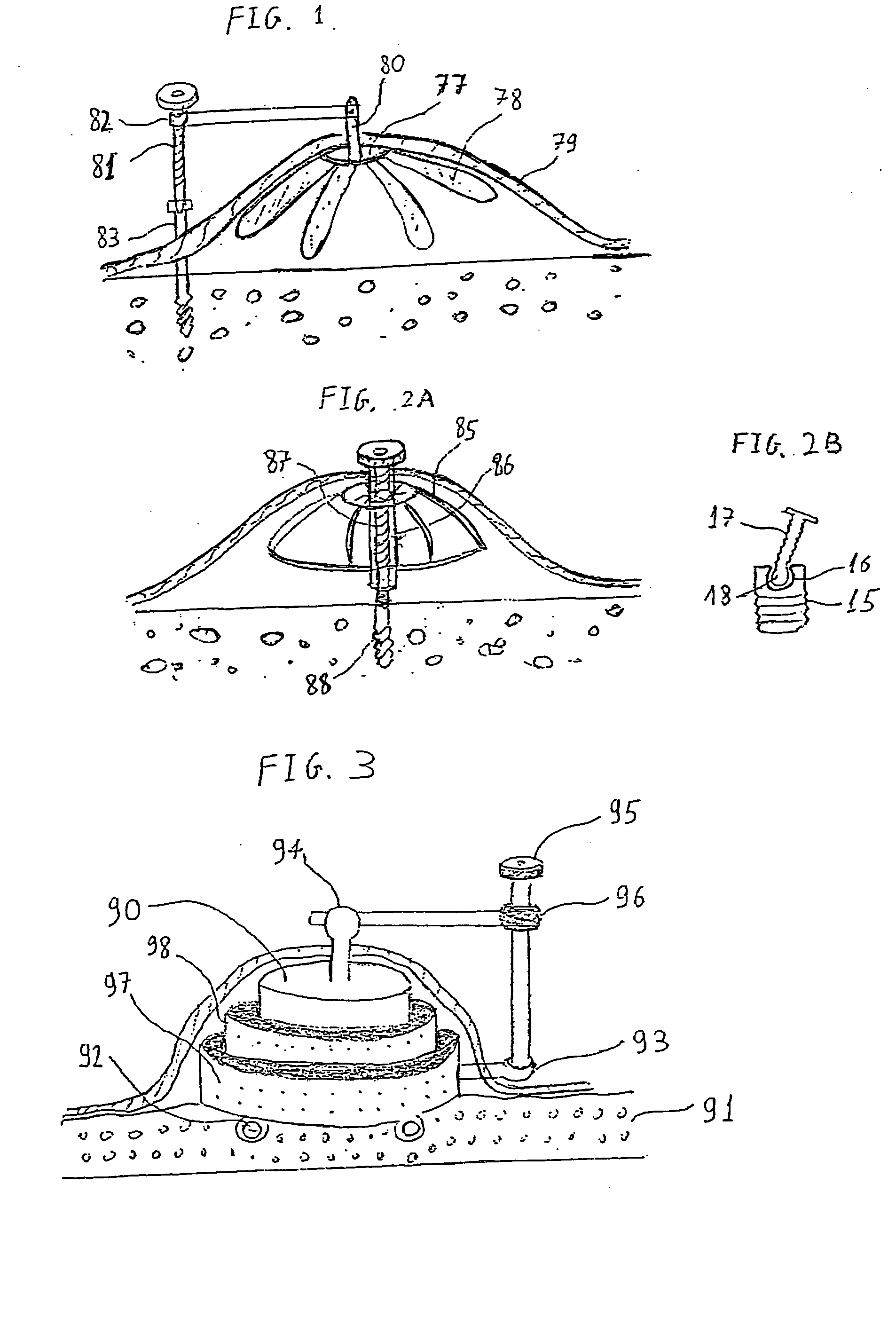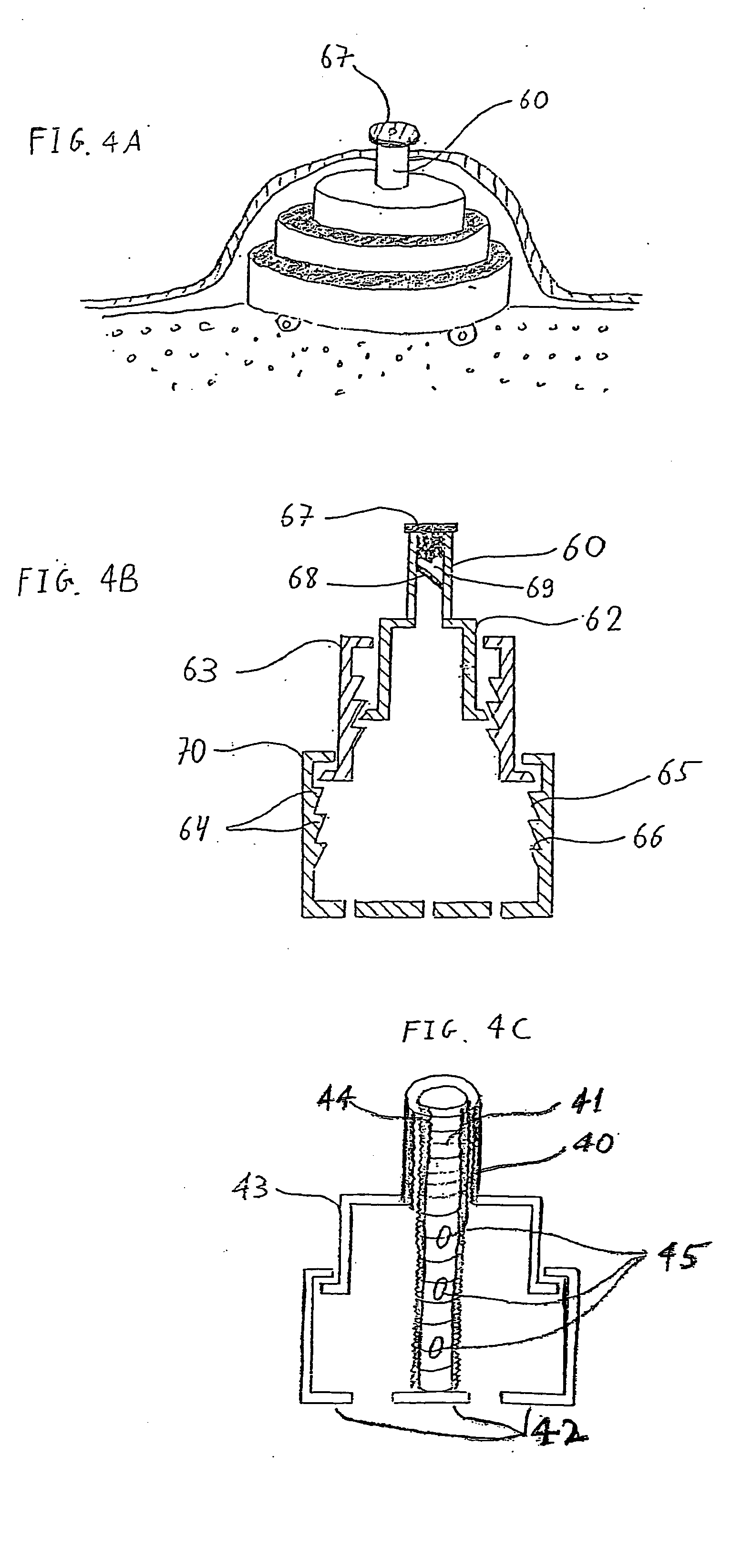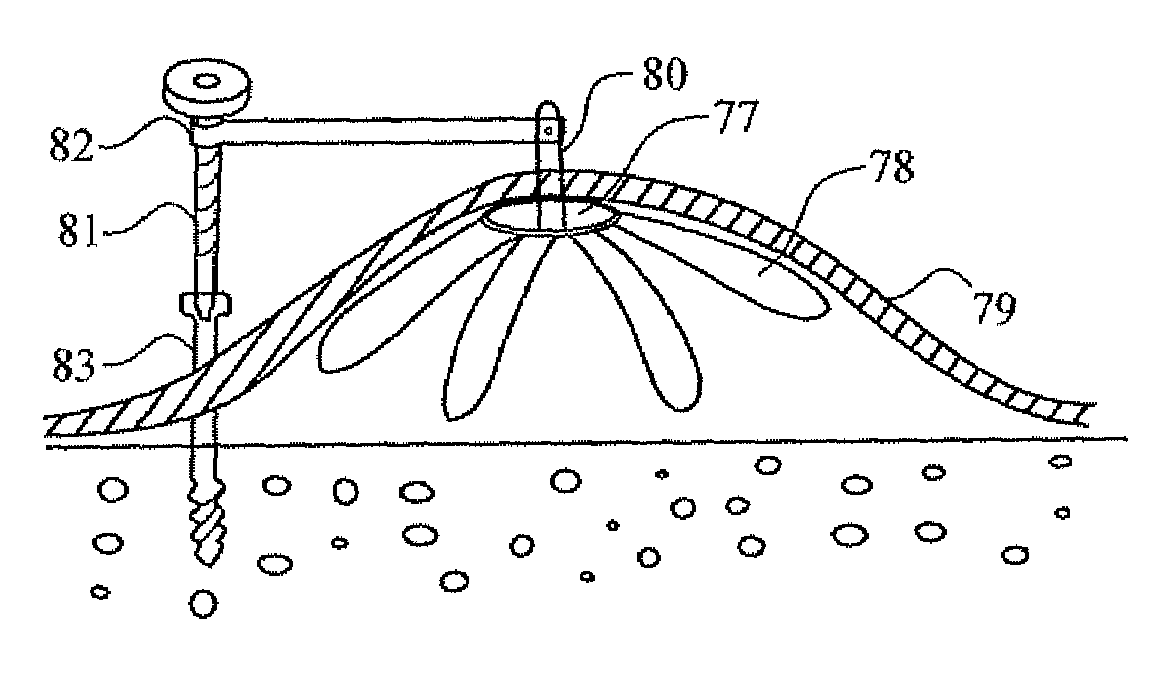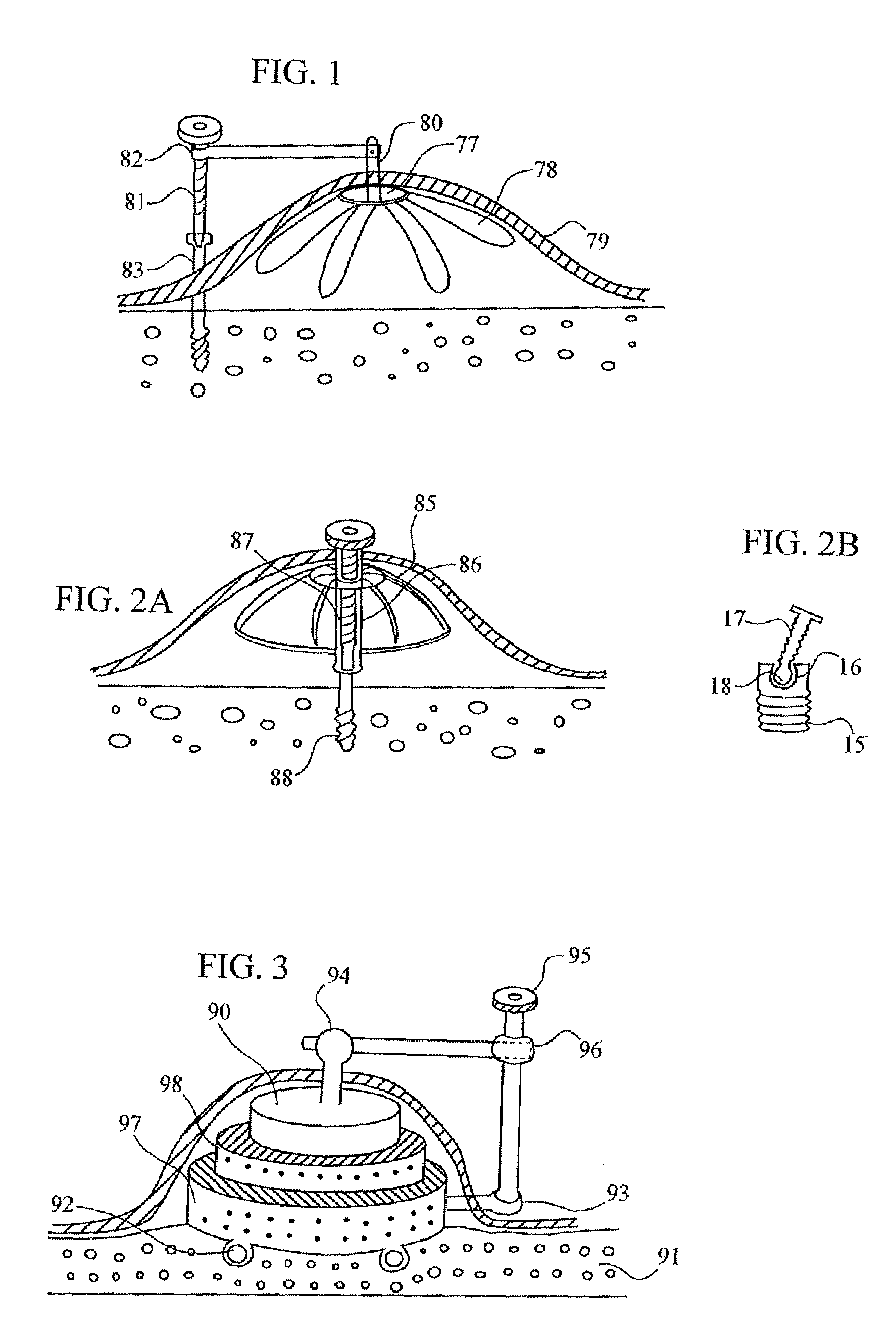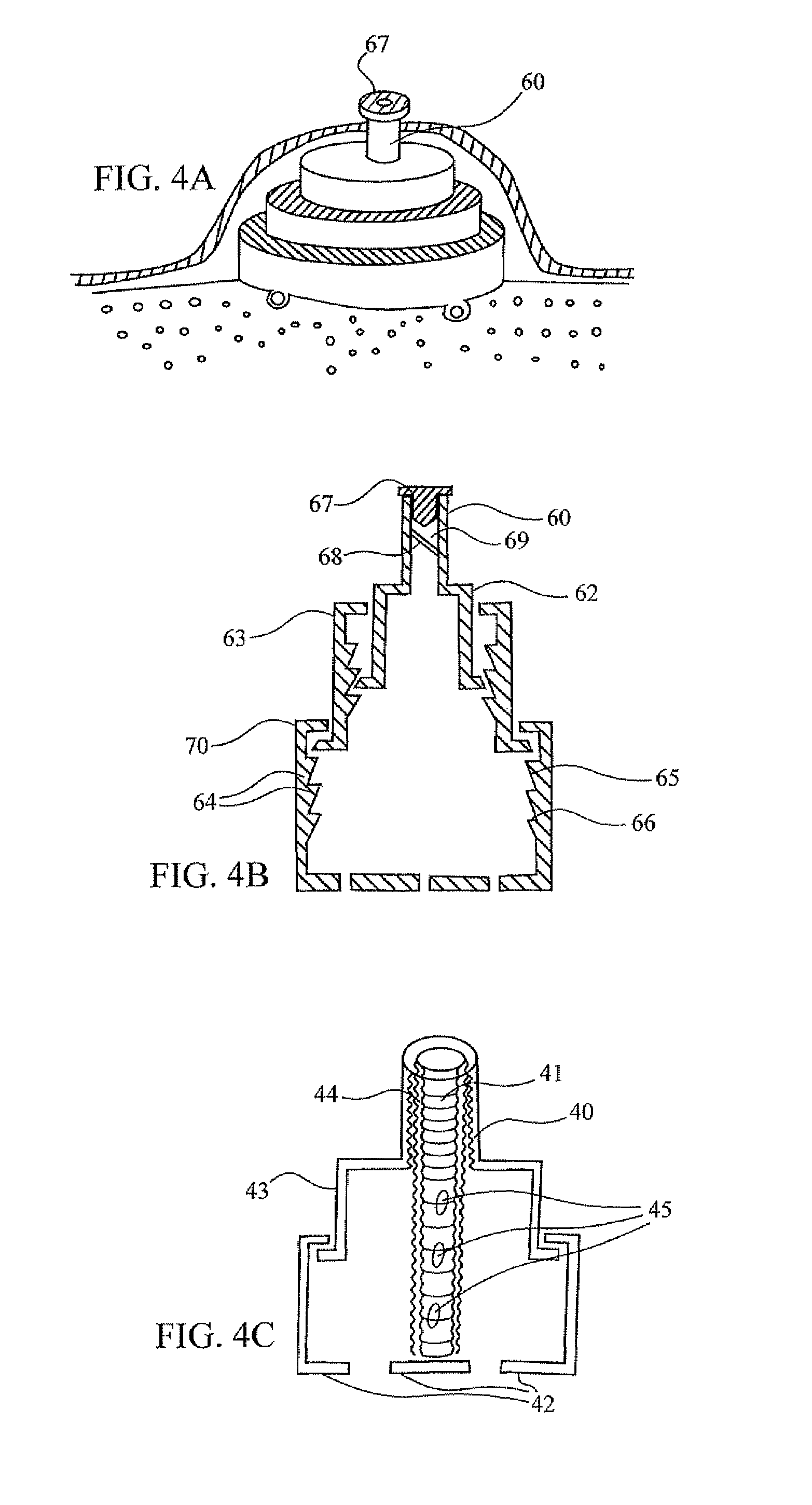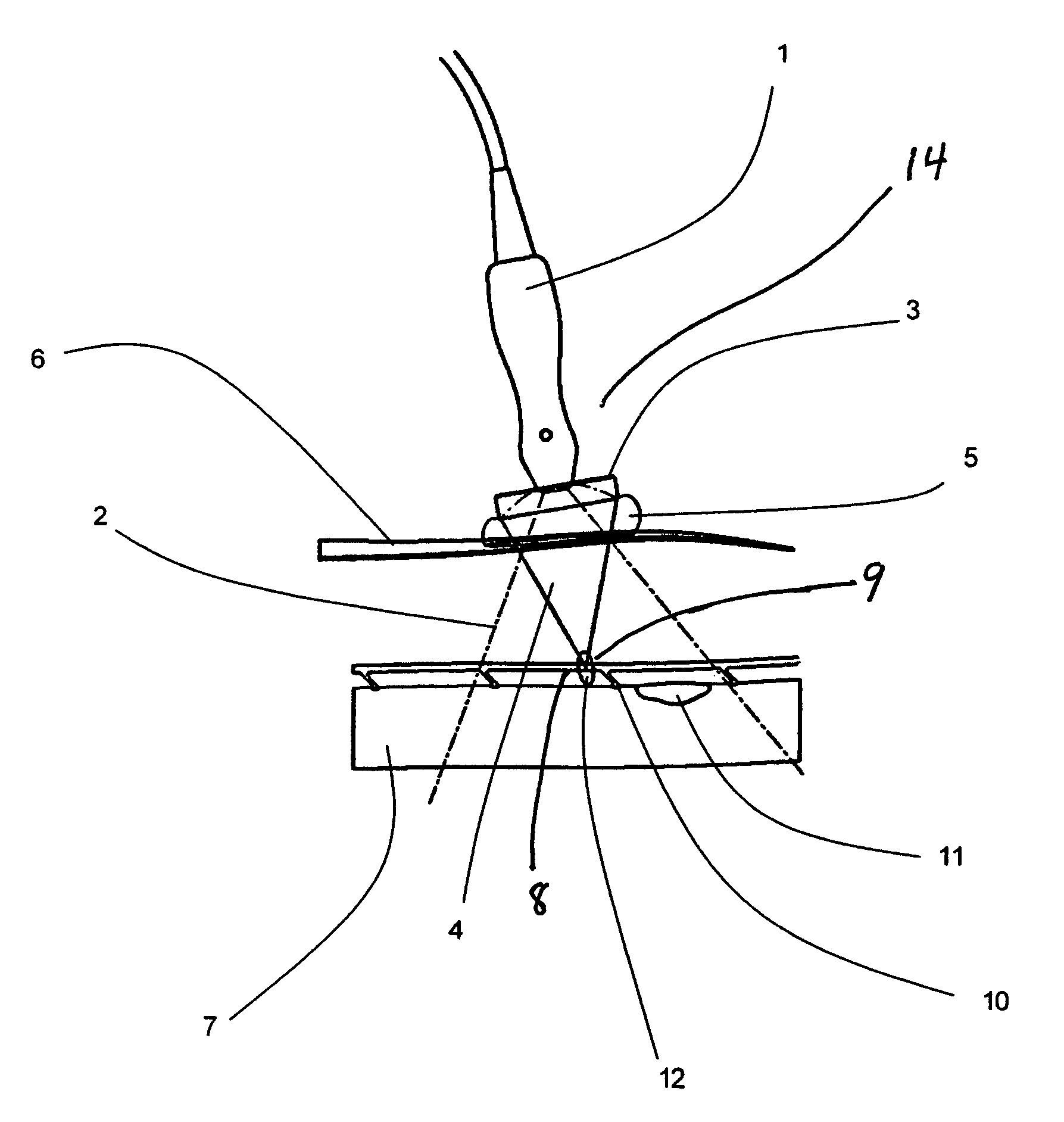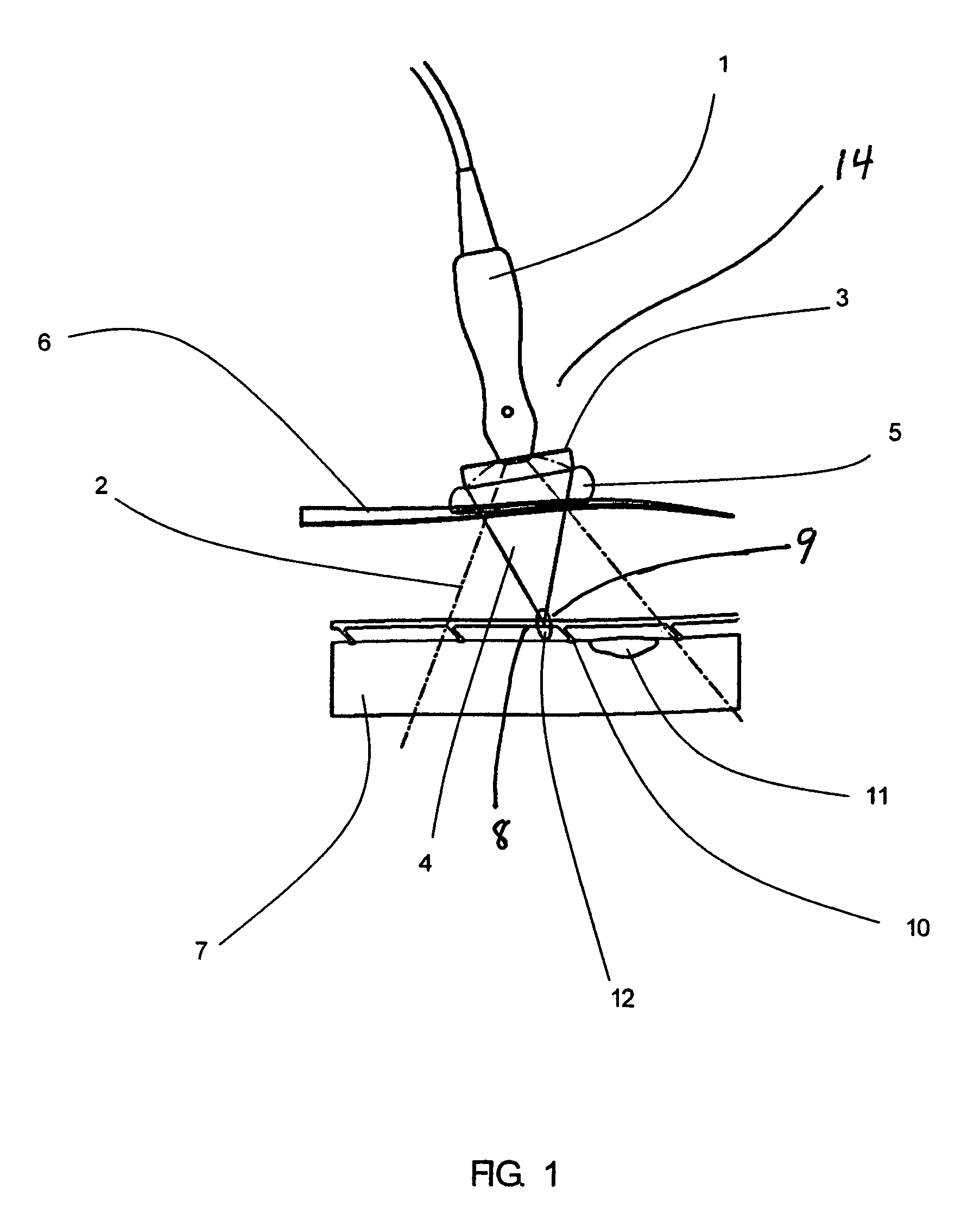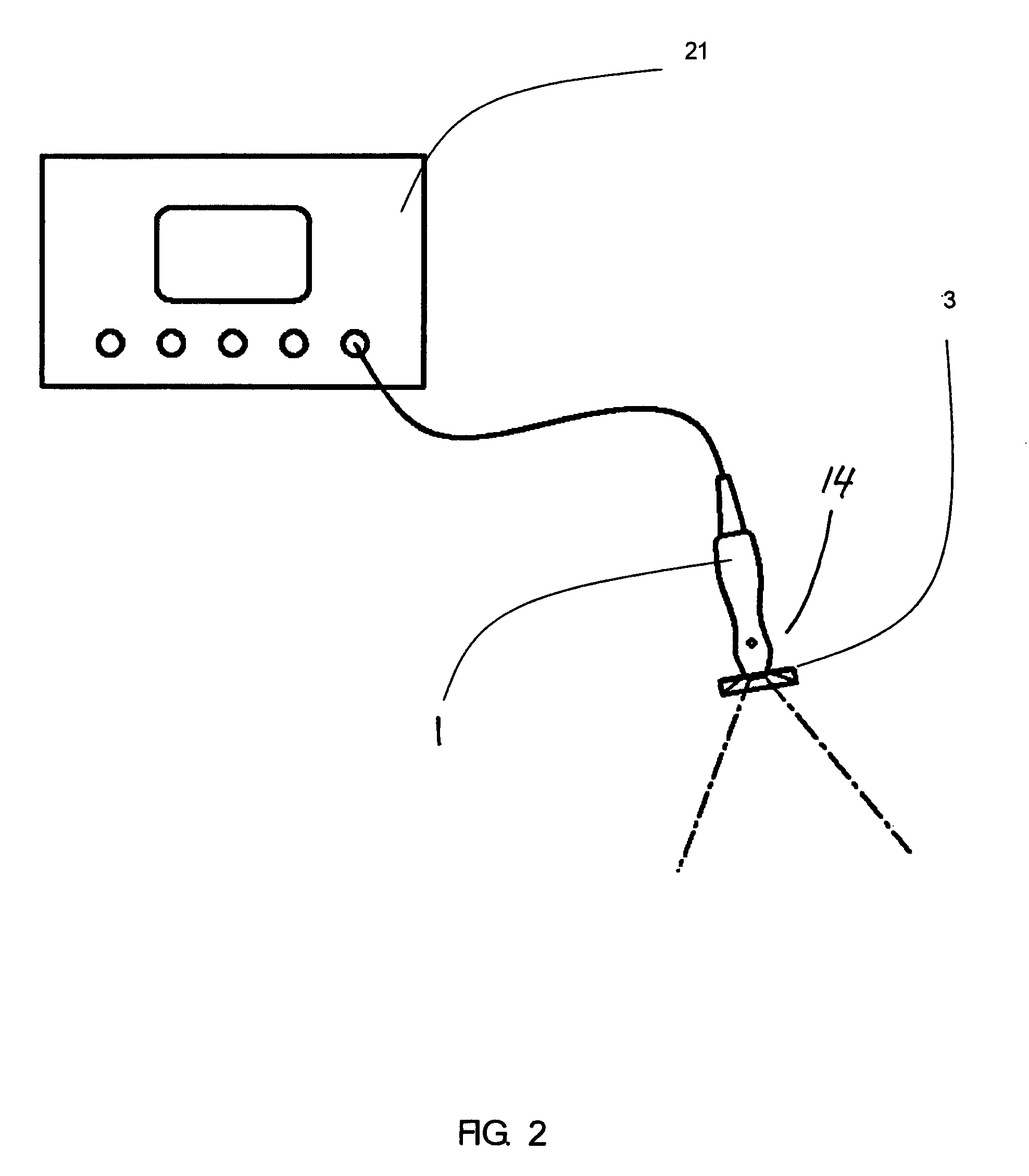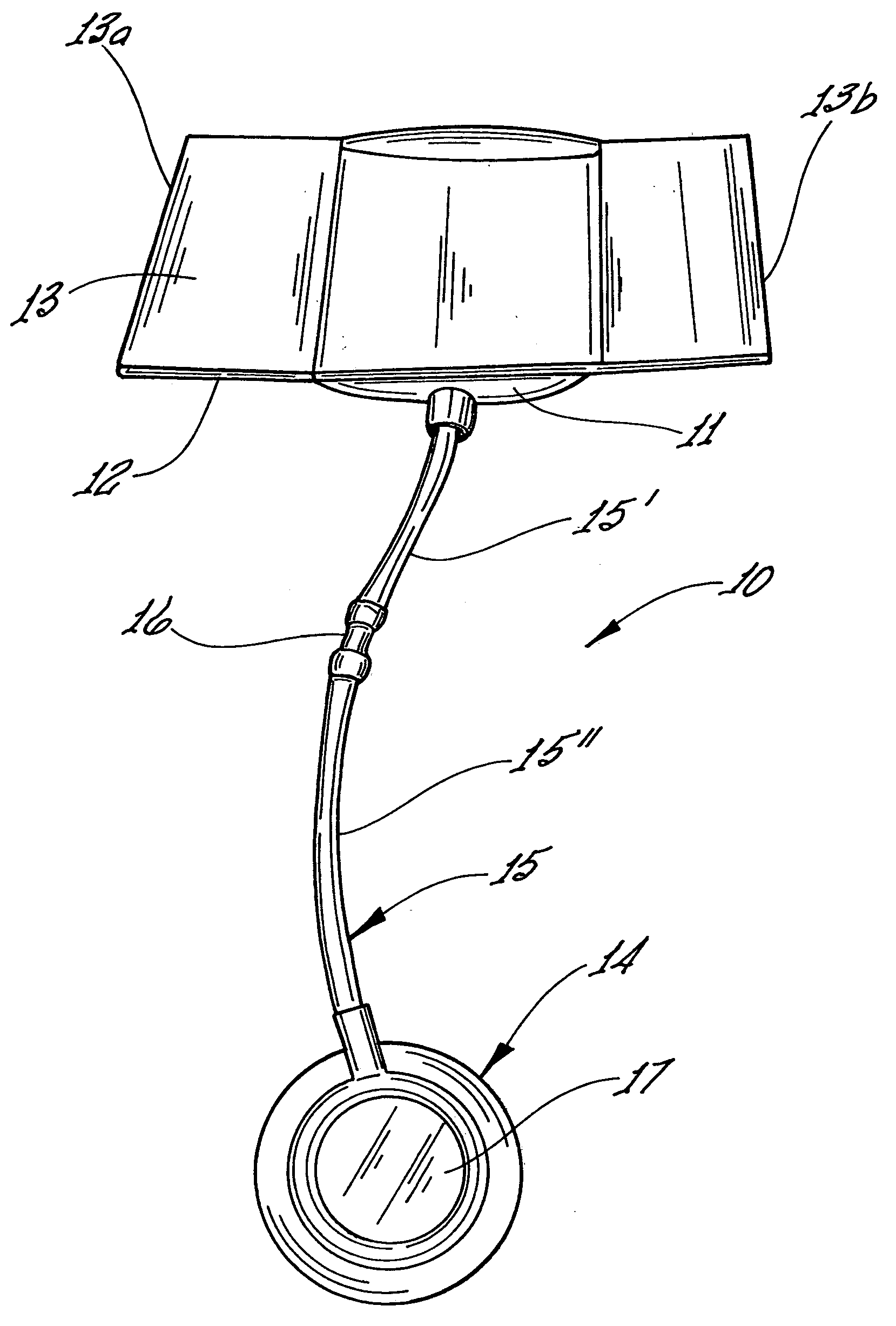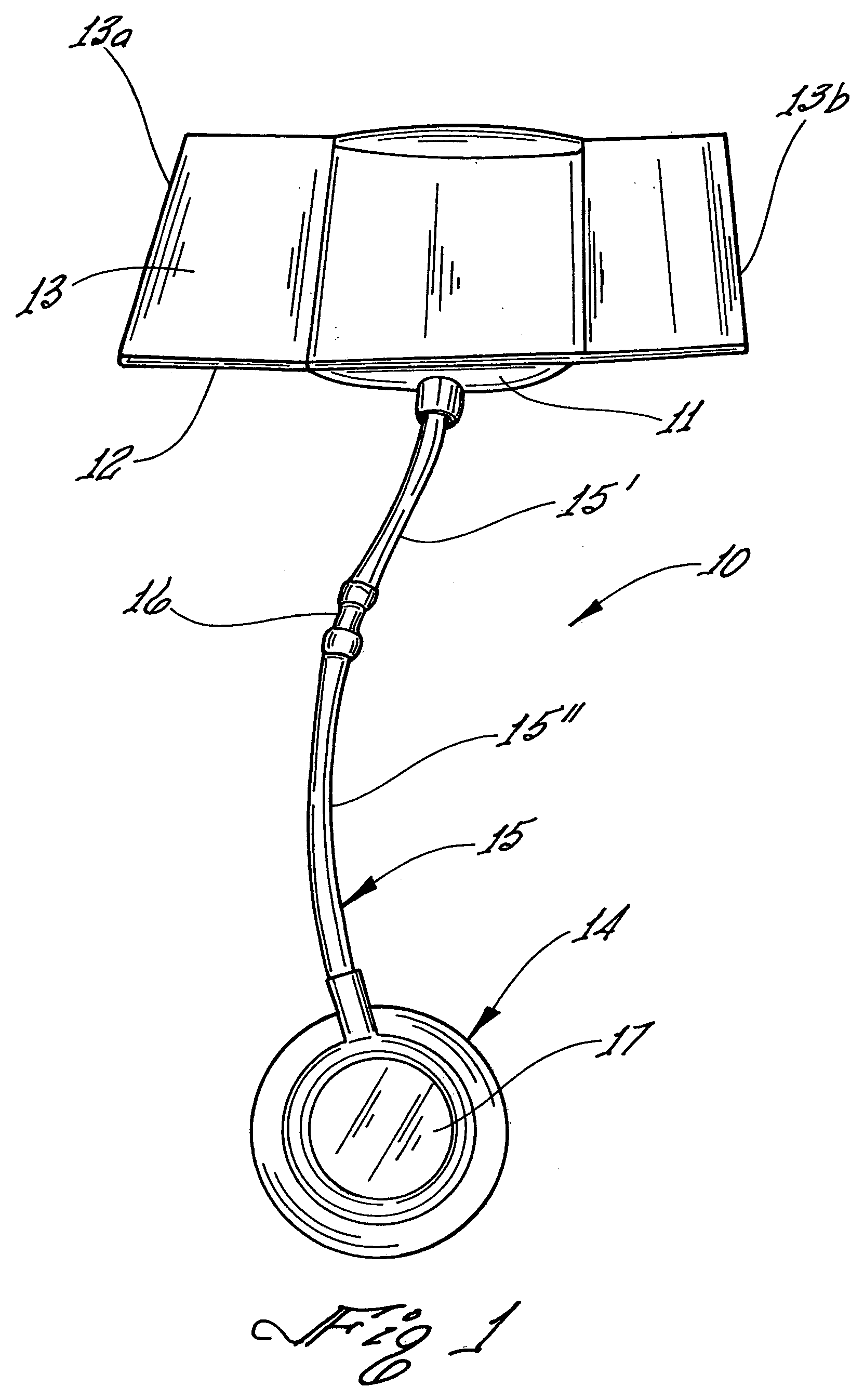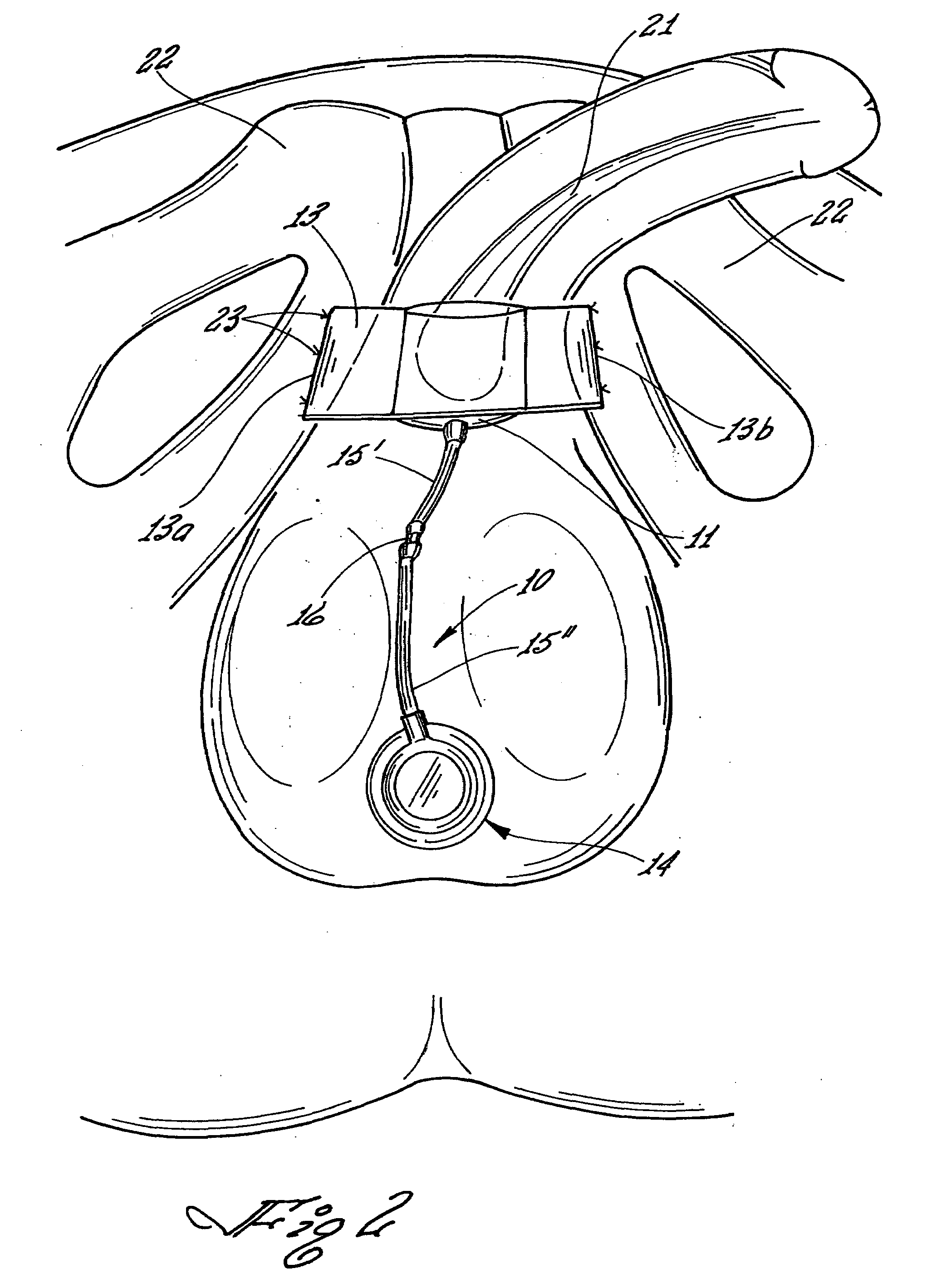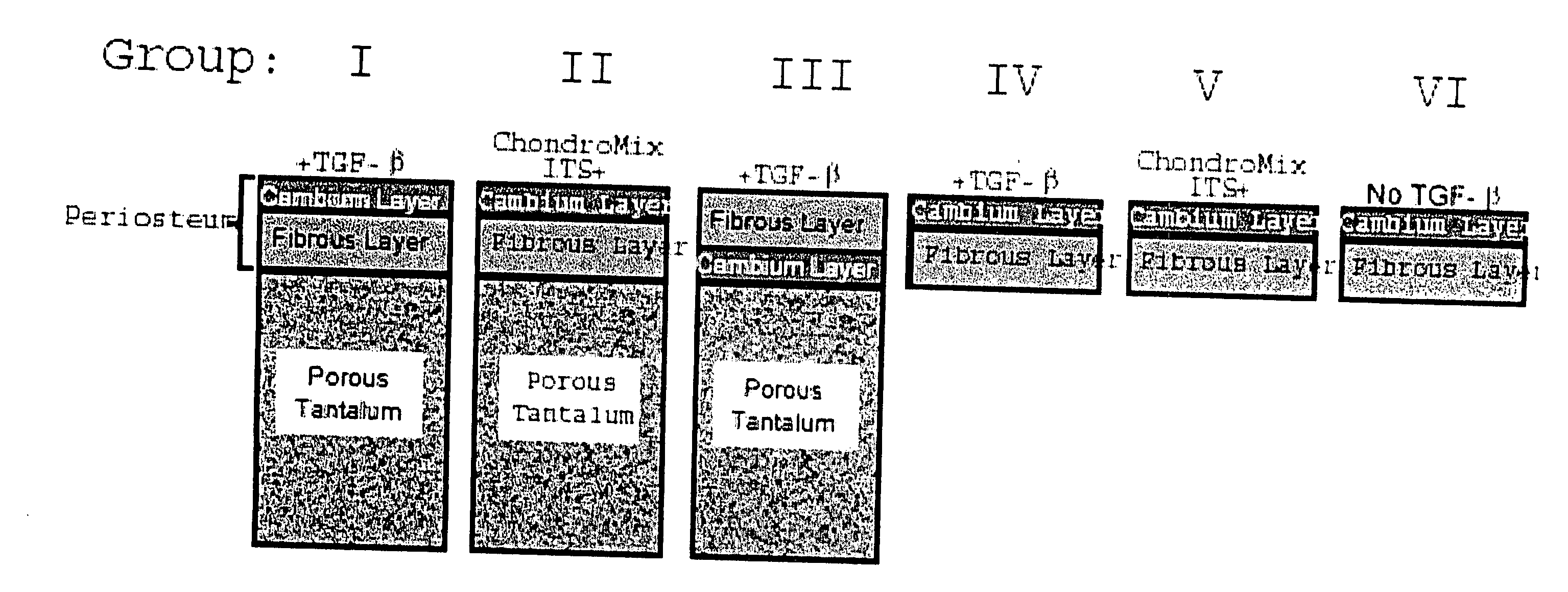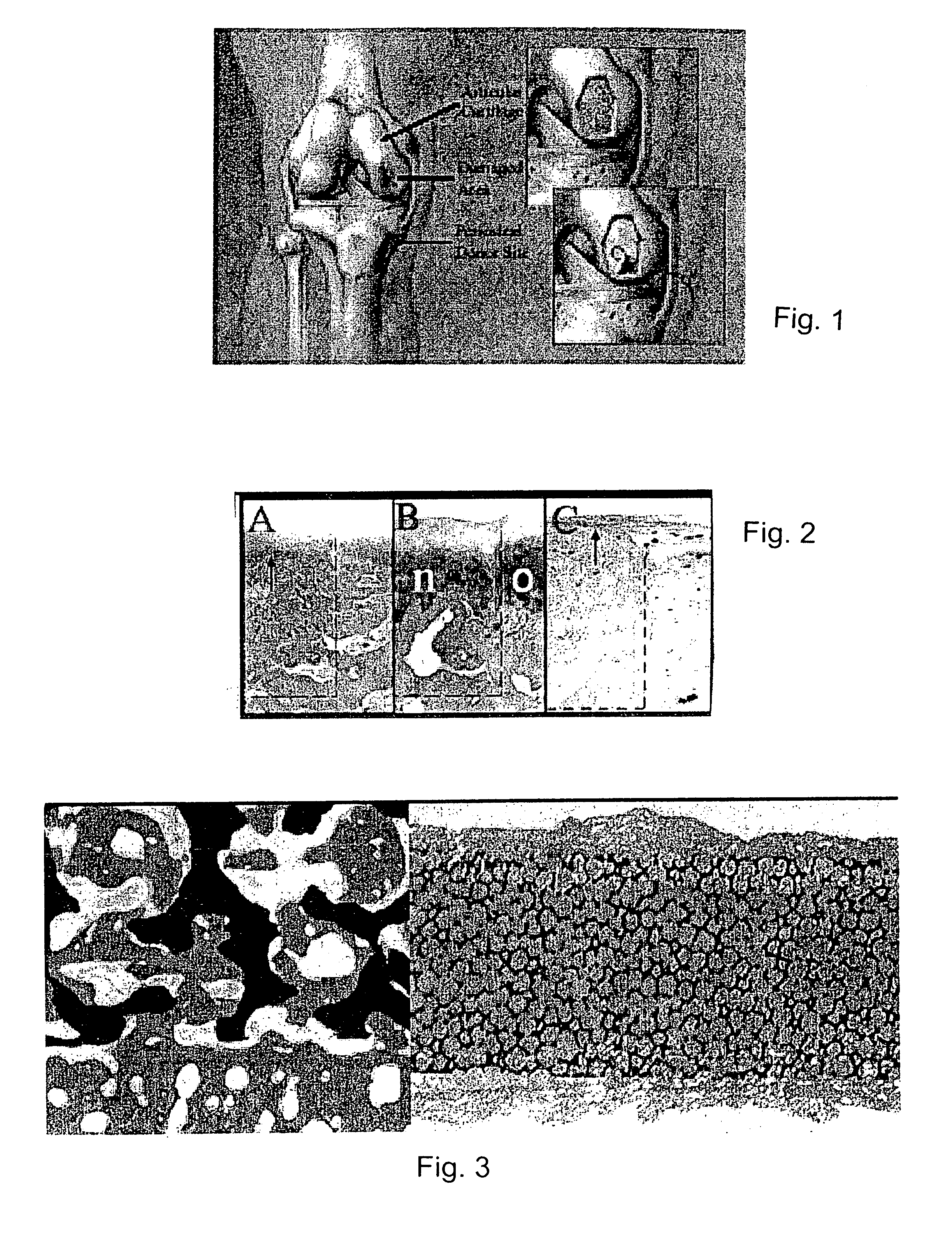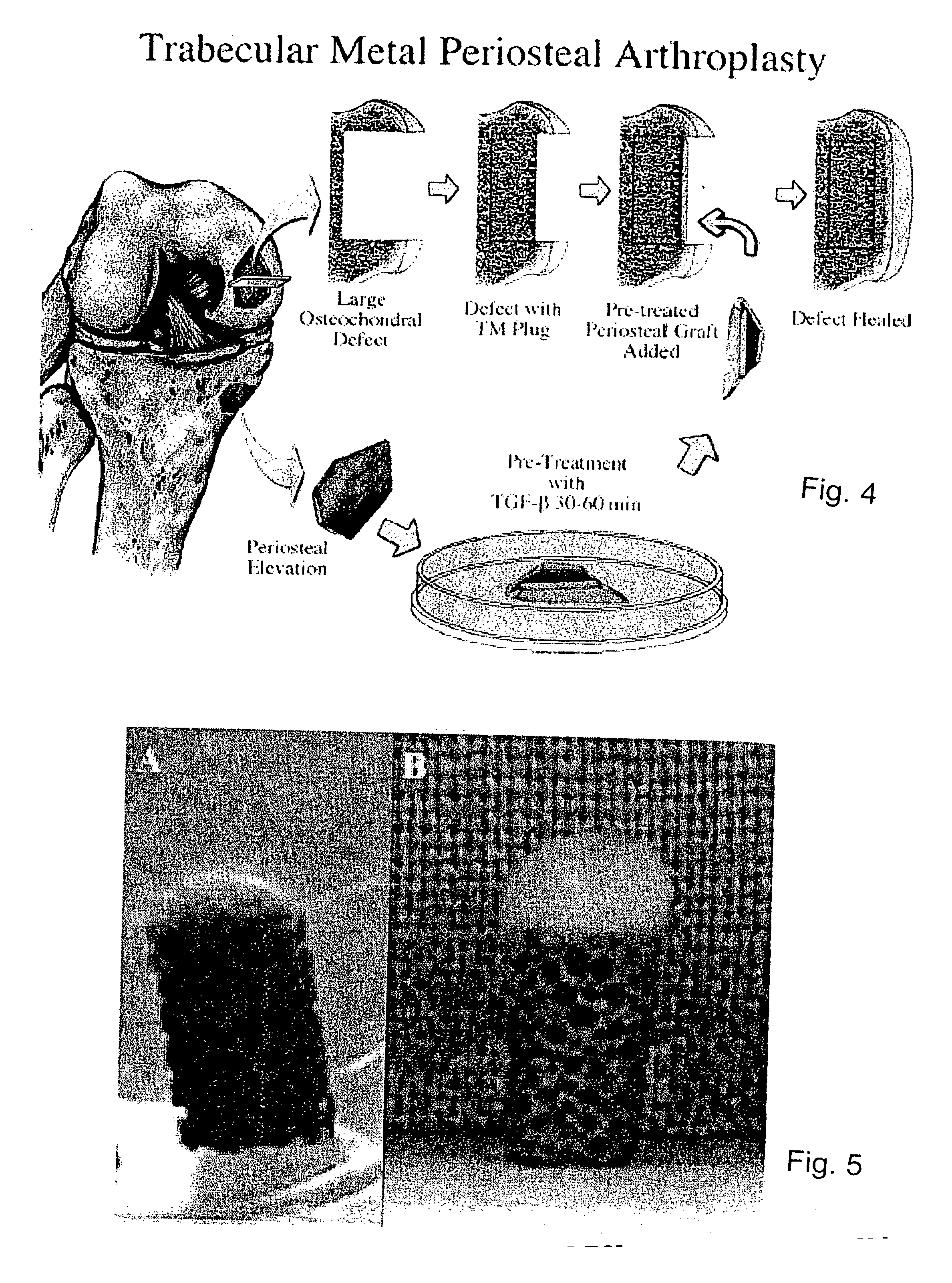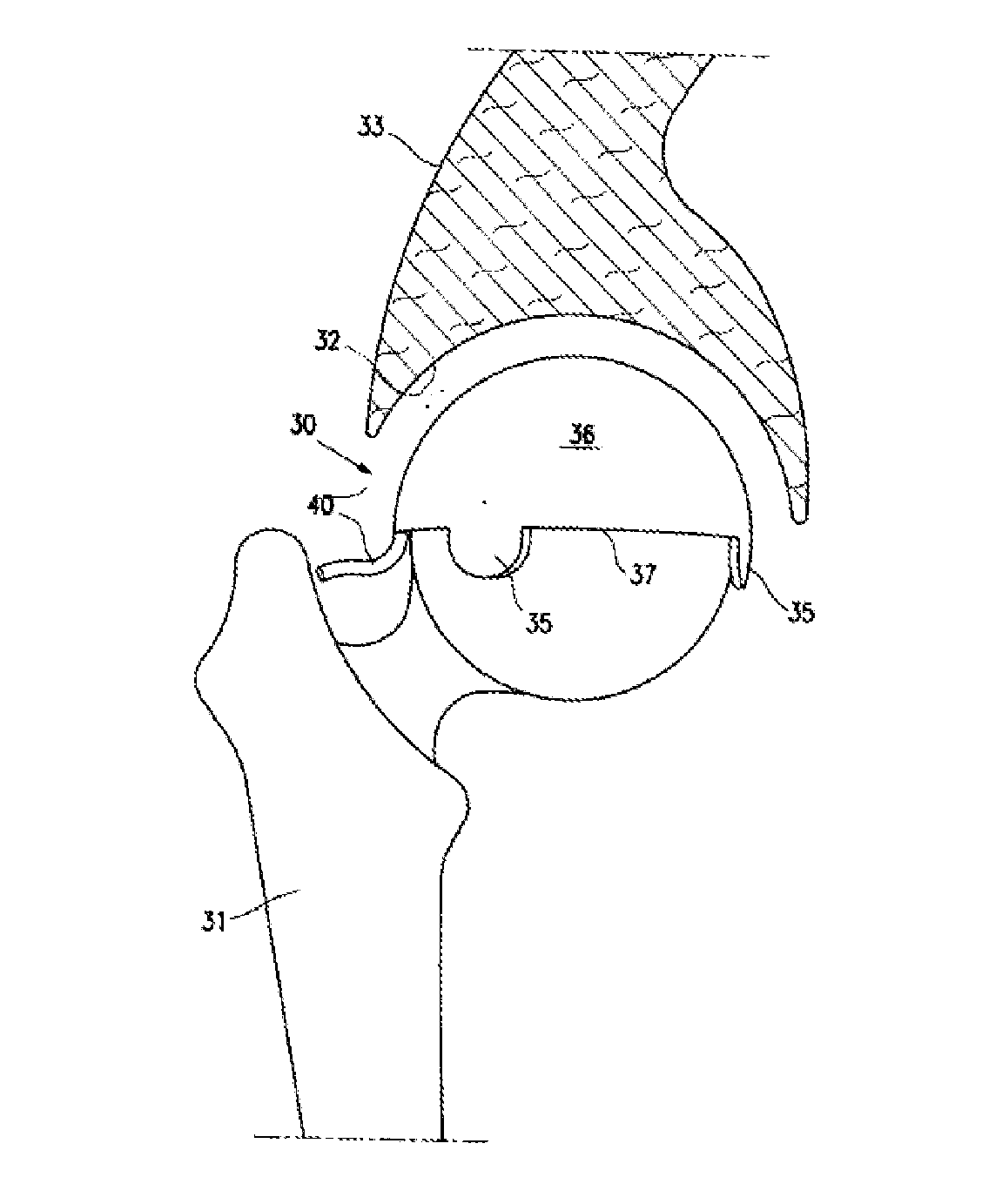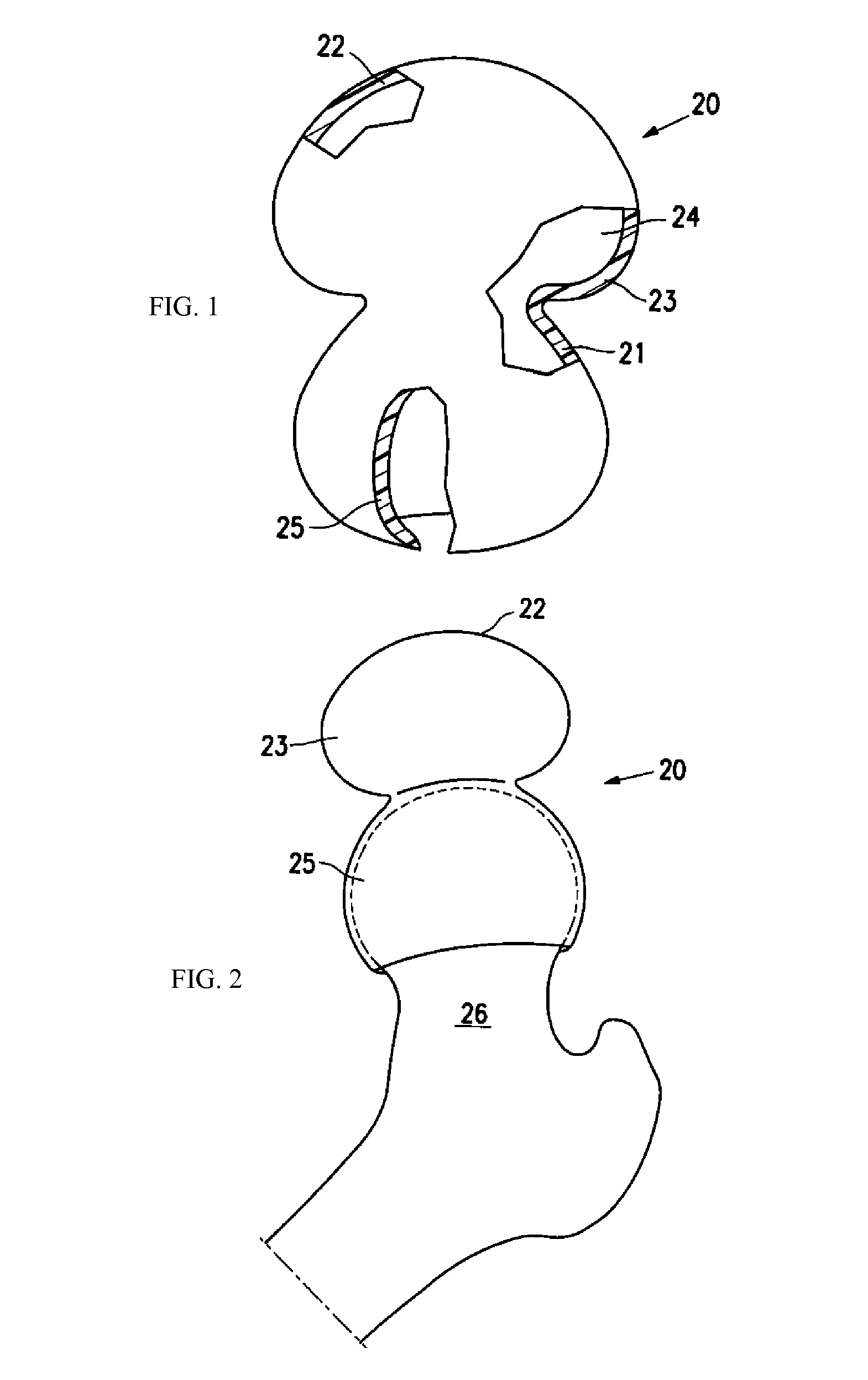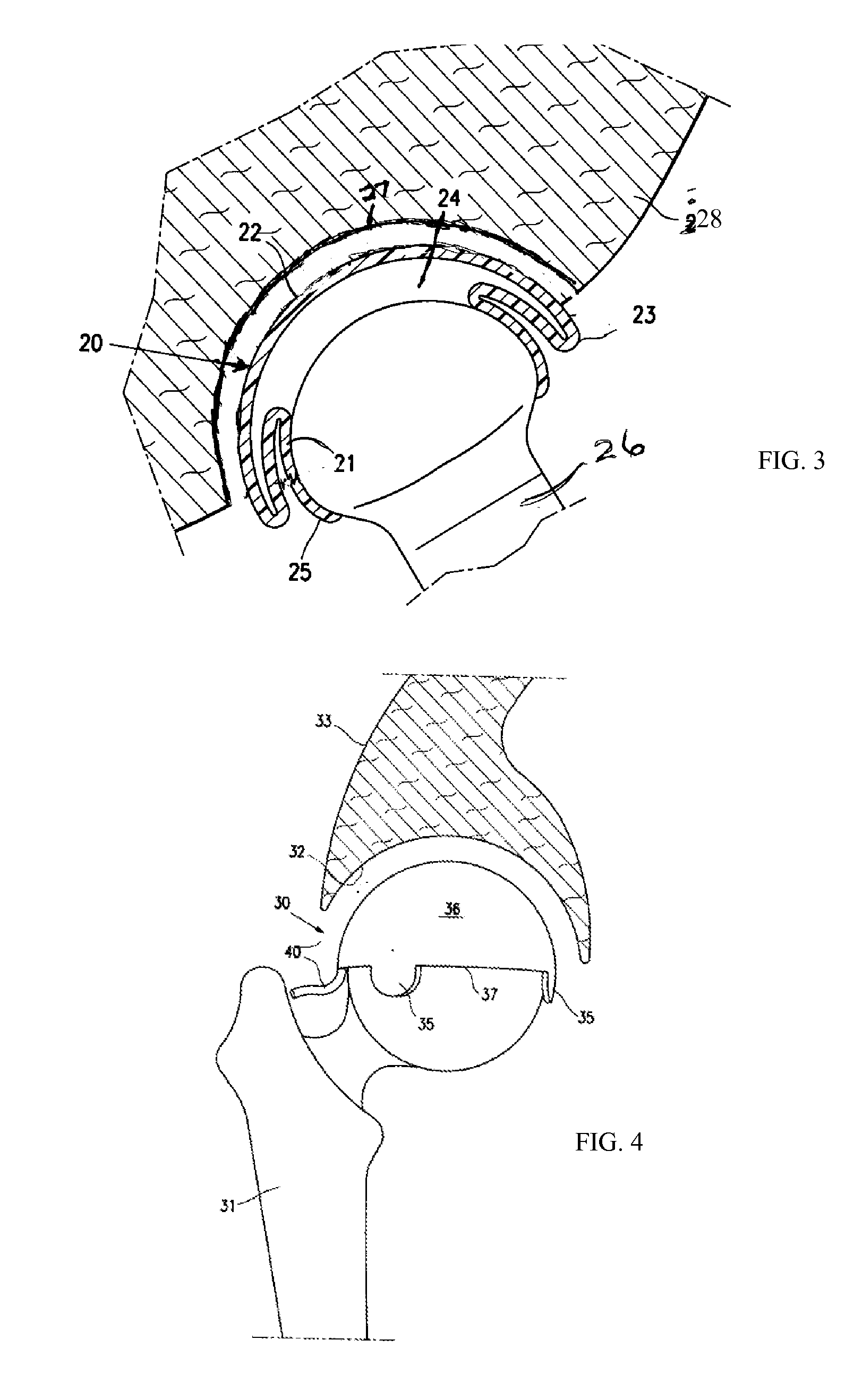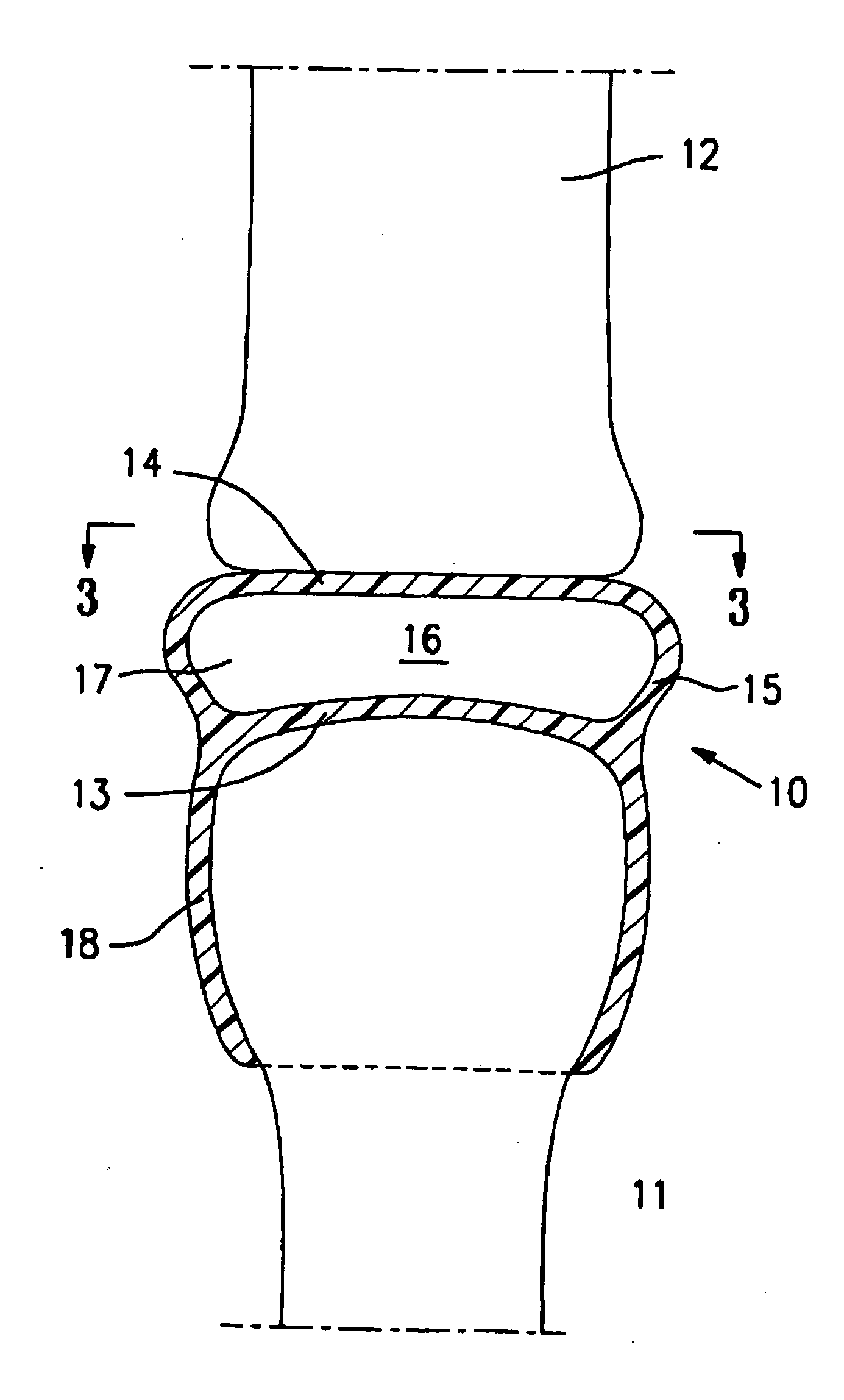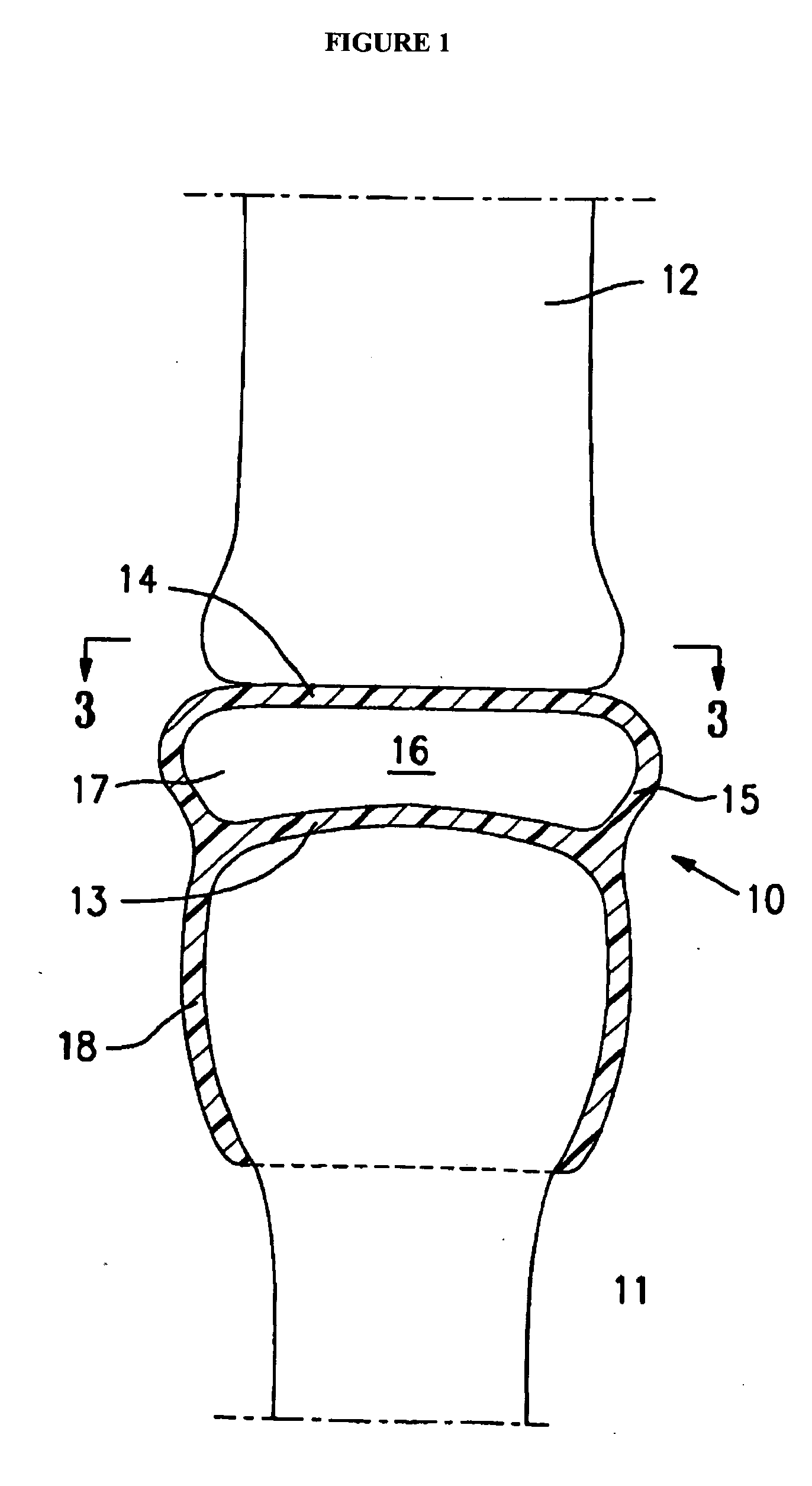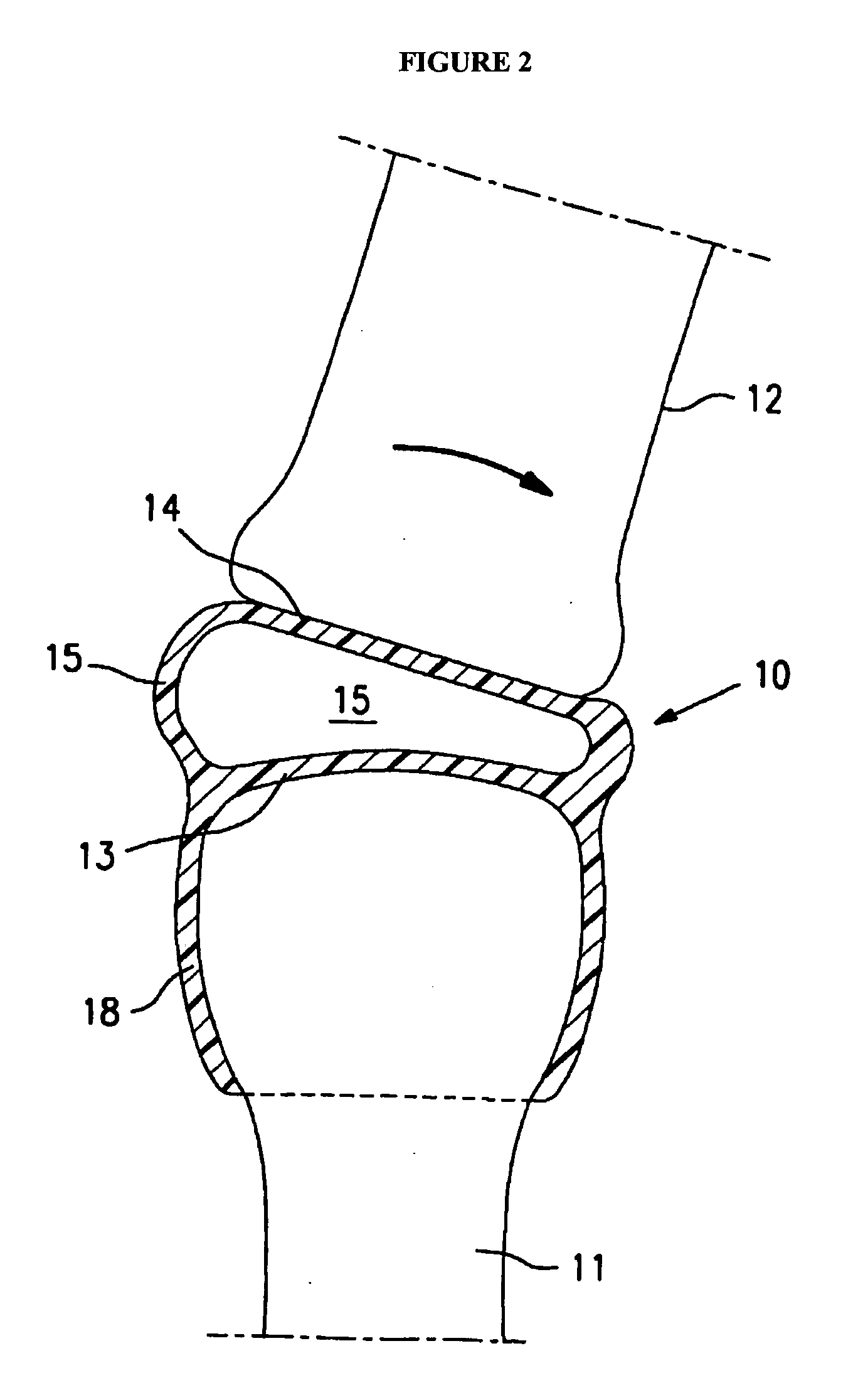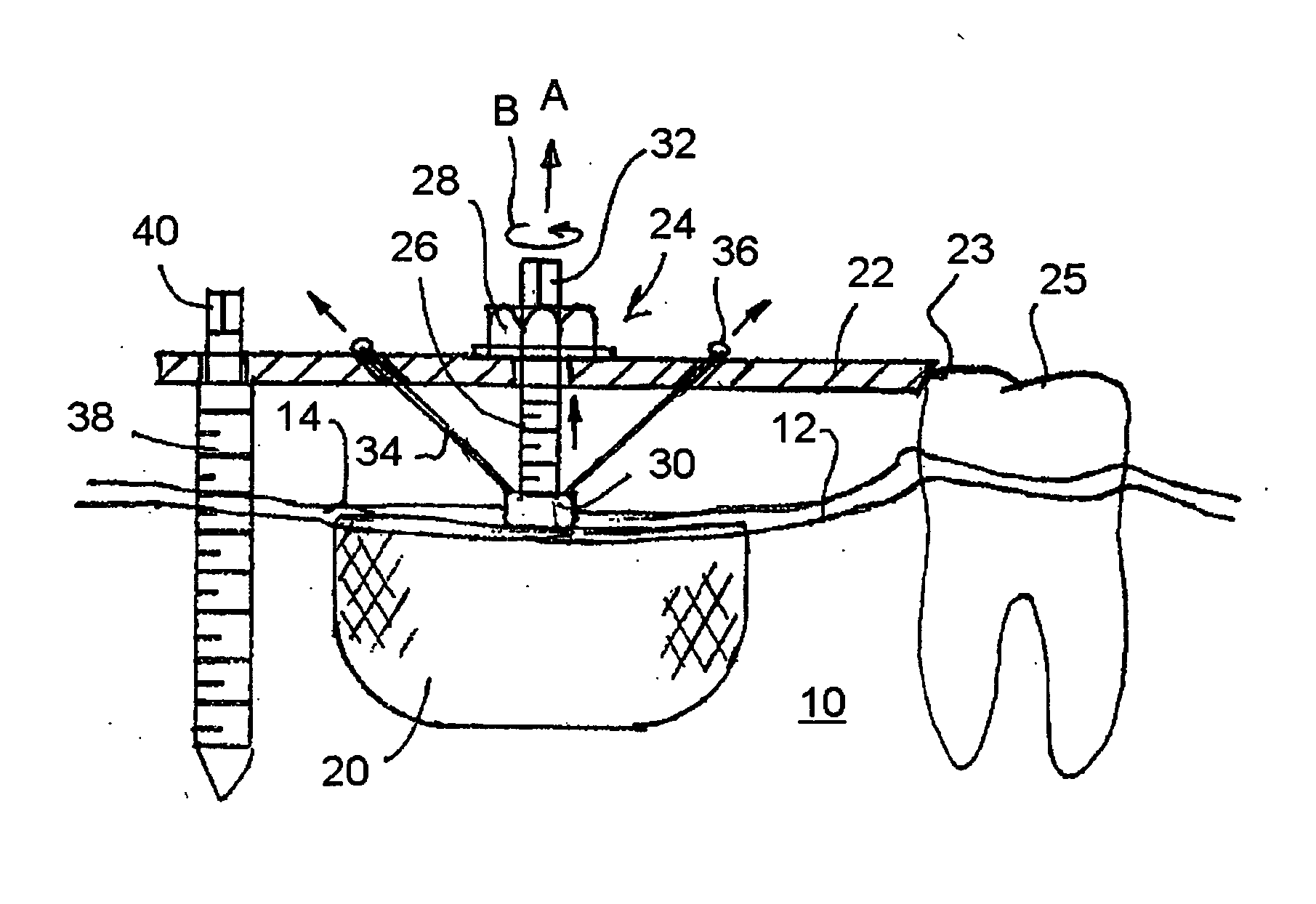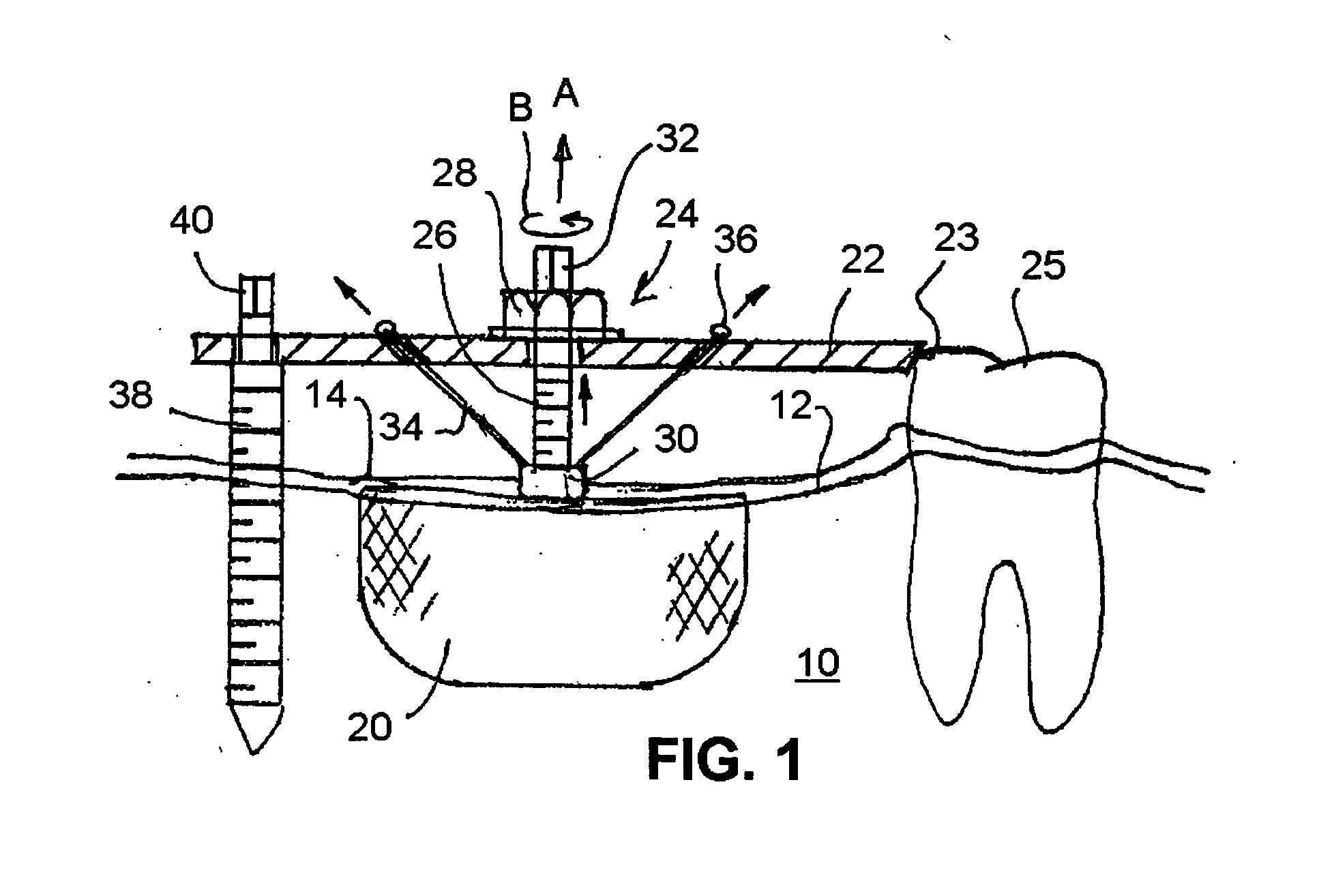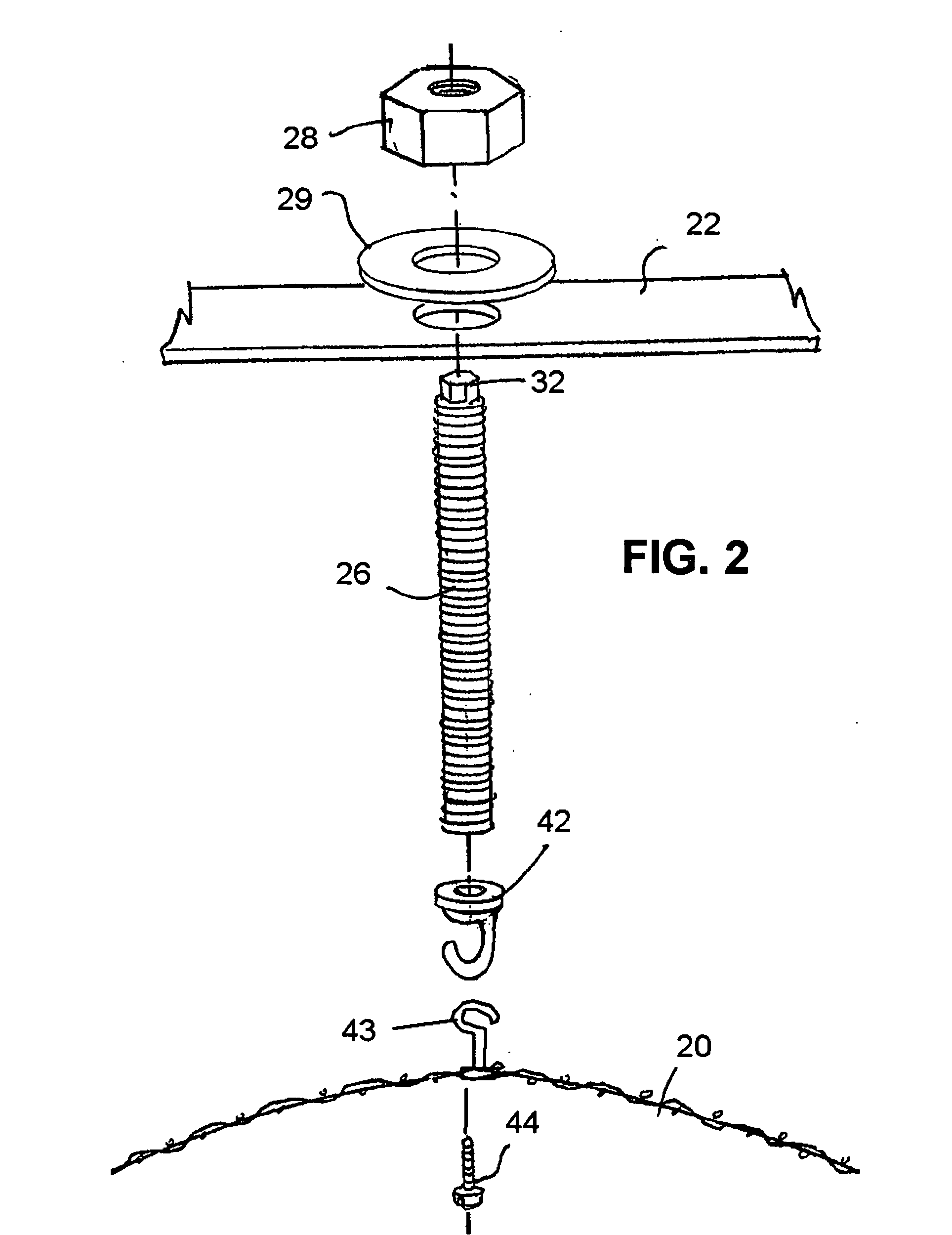Patents
Literature
369 results about "Periosteum" patented technology
Efficacy Topic
Property
Owner
Technical Advancement
Application Domain
Technology Topic
Technology Field Word
Patent Country/Region
Patent Type
Patent Status
Application Year
Inventor
The periosteum is a membrane that covers the outer surface of all bones, except at the joints of long bones. Endosteum lines the inner surface of the medullary cavity of all long bones.
Systems for securing sutures, grafts and soft tissue to bone and periosteum
InactiveUS7326213B2Great degree of tensionSecure attachmentSuture equipmentsStaplesSoft tissue neckSynthetic materials
Devices for affixing sutures, grafts and tissues to bone, and soft tissue such as periosteum. Such devices are designed to be deployed and selectively positioned at a target site and remain seated thereat. The devices are further provided with attachment structures for securing sutures, grafts, synthetic materials or tissues thereto which facilitates the ability of such devices to remain more firmly in position.
Owner:SPRINGBOARD MEDICAL VENTURES
System for securing sutures, grafts and soft tissue to bone and periosteum
InactiveUS20050004576A1Easy constructionEasy to useSuture equipmentsAnti-incontinence devicesEngineeringPeriosteum
Self-anchoring slings and deployment mechanisms for use therewith in selectively positioning a sling into position within the body. According to a preferred embodiment, the sling comprises an elongate sling portion having opposed ends. Formed upon each respective opposed end is an anchor member operative to be percutaneously advanced through soft tissue at a selected target site in a first direction but resist movement in an opposed direction. Such anchor members are operative to extend in opposed directions to thus enable a sling to be securely affixed into position and resist sag or otherwise lose its ability to support a given structure.
Owner:SPRINGBOARD MEDICAL VENTURES
Resorbable, macro-porous, non-collapsing and flexible membrane barrier for skeletal repair and regeneration
A resorbable, flexible implant in the form of a continuous macro-porous sheet is disclosed. The implant is adapted to protect biological tissue defects, especially bone defects in the mammalian skeletal system, from the interposition of adjacent soft tissues during in vivo repair. The membrane has pores with diameters from 20 microns to 3000 microns. This porosity is such that vasculature and connective tissue cells derived from the adjacent soft tissues including the periosteum can proliferate through the membrane into the bone defect. The thickness of the sheet is such that the sheet has both sufficient flexibility to allow the sheet to be shaped to conform to the configuration of a skeletal region to be repaired, and sufficient tensile strength to allow the sheet to be so shaped without damage to the sheet. The sheet provides enough inherent mechanical strength to withstand pressure from adjacent musculature and does not collapse.
Owner:MACROPORE
Hardware for high strength fastening of bone
InactiveUS6302887B1High strengthMinimal invasionInternal osteosythesisDiagnosticsShoulder regionEffective length
A high strength fastener for bone fractures. This fastener consists of two members, a male and female. The male member has external machine screw threads that screw into matching internal threads in the female member at a predictable torque so that the force of fixation exerted upon the bone can be approximated by the installer. Because of the effective length of the threads, this fastener is easily adjusted to the proper length without cutting. Both members have a smooth shoulder region proximal to the heads and this shoulder region presents a low-stress bearing surface to each cortical wall. Each member has a head that fits rigidly into an installation tool providing for ease of insertion and fastening in the patient with minimal invasion and little periosteal stripping. Each head has a semi-spherical face that articulates with matching washers and plates, thus allowing the washer to assume the plane of the surrounding bone therefore distributing the load over a greater area.
Owner:ACUMED
System for securing sutures, grafts and soft tissue to bone and periosteum
Self-anchoring slings and deployment mechanisms for use therewith in selectively positioning a sling into position within the body. According to a preferred embodiment, the sling comprises an elongate sling portion having opposed ends. Formed upon each respective opposed end is an anchor member operative to be advanced through soft tissue at a selected target site in a first direction but resist movement in an opposed direction. Such anchor members are operative to extend in opposed directions to thus enable a sling to be securely affixed into position and resist sag or otherwise lose its ability to support a given structure. The deployment system is operative to selectively anchor the respective anchor members into position within a tissue mass. Although suitable for a wide variety of applications, it is believed that the system and sling of the present invention are particularly well suited for the deployment of suburethral slings via a trans-obturator route.
Owner:SPRINGBOARD MEDICAL VENTURES
System for securing sutures, grafts and soft tissue to bone and periosteum
Self-anchoring slings and deployment mechanisms for use therewith in selectively positioning a sling into position within the body. According to a preferred embodiment, the sling comprises an elongate sling portion having opposed ends. Formed upon each respective opposed end is an anchor member operative to be advanced through soft tissue at a selected target site in a first direction but resist movement in an opposed direction. Such anchor members are operative to extend in opposed directions to thus enable a sling to be securely affixed into position and resist sag or otherwise lose its ability to support a given structure. The deployment system is operative to selectively anchor the respective anchor members into position within a tissue mass. Although suitable for a wide variety of applications, it is believed that the system and sling of the present invention are particularly well suited for the deployment of suburethral slings via a trans-obturator route.
Owner:SPRINGBOARD MEDICAL VENTURES
Membrane with tissue-guiding surface corrugations
A resorbing, flexible implant in the form of a continuous macro-porous sheet (42) is disclosed. The implant is adapted to protect biological tissue defects, especially bone defects in the mammalian skeletal system, from the interposition of adjacent soft tissues during in vitro repair. The membrane (42) has pores with diameters from 20 microns to 3000 microns. This porosity is such that vasculature, and connective tissue cells derived from the adjacent soft tissues including the periosteum, can proliferate through the membrane into the bone defect. The thickness of the sheet is such that the sheet has both sufficient flexibility to allow the sheet to be shaped to conform to the configuration of a skeletal region to be repaired, and sufficient tensile strength to allow the sheet to be so shaped without damage to the sheet. The sheet provides enough inherent mechanical strength to withstand pressure from adjacent musculature, and does not collapse.
Owner:MACROPORE
Spinal access system and method
Described herein are devices and systems for accessing a spine and particularly the epidural region of the spine and methods of using these systems and devices to access the spine or regions of the spine. In particular, cannulas that may be anchored to the ligamentum flavum or the periosteum are described. Ligamentum flavum access tools are also described. These tools may be used with (or without) an anchoring cannula to penetrate the ligamentum flavum and provide access to the epidural space without risk of injury to other structures within the epidural space. The devices, methods and systems described herein are particularly useful in minimally invasive surgical (MIS) uses. The devices, methods and systems described herein may be used for performing spinal decompressions and other spinal procedures.
Owner:BAXANO
Method for tissue expansion and regeneration using bioresorbable inflatable devices
InactiveUS7771482B1Easy to reinforcePromote bone growthStentsDental implantsFilling materialsTissue expansion
Bioresorbable inflatable devices and tunnel incision tool and methods for treating and enlarging a tissue or an organ or a tube or a vessel or a cavity. The device is composed of a hollow expanding pouch made of a resorbable material that can be attached to a filling element. The pouch can be filled with a biocompatible materials, one or more times in few days interval, after the insertion of the device. While filling the pouch every few days the tissue expands and the filling material if it is bioactive start to function. The tunnel incision tool composed of a little blade that emerges from the surface of the tool in order to make shallow incisions in the surrounding tissue therefore enabling easy expansion of the tissue. This device and method can be used for example for: horizontal and vertical bone augmentation in the jaws and the tunnel incision tool is used to make shallow incisions in the periosteum when using the tunnel technique, sinus augmentation when the device is placed beneath the Schneiderian tissue, vessels widening if the pouch become a stent etc.
Owner:KARMON BEN ZION
Resorbable, macro-porous non-collapsing and flexible membrane barrier for skeletal repair and regeneration
A resorbable, flexible implant in the form of a continuous macro-porous sheet is disclosed. The implant is adapted to protect biological tissue defects, especially bone defects in the mammalian skeletal system, from the interposition of adjacent soft tissues during in vivo repair. The membrane has pores with diameters from 20 microns to 3000 microns. This porosity is such that vasculature and connective tissue cells derived from the adjacent soft tissues including the periosteum can proliferate through the membrane into the bone defect. The thickness of the sheet is such that the sheet has both sufficient flexibility to allow the sheet to be shaped to conform to the configuration of a skeletal region to be repaired, and sufficient tensile strength to allow the sheet to be so shaped without damage to the sheet. The sheet provides enough inherent mechanical strength to withstand pressure from adjacent musculature and does not collapse.
Owner:MACROPORE BIOSURGERY INC
Osseo-integrated sub-periosteal implant
A sub-periosteally implantable prosthesis support structure for a fixed or detachable dental prosthesis includes a framework fitted to and generally conforming to the inner and outer contours of the bony ridge structures of a person. The framework is configured to provide a space extending generally normal to the bony ridge structure to an apex to provide space for subsequent bone growth. A plurality of denture support posts are distributed about the framework and depend outwardly from the apex in substantial alignment with the bony ridge structure. During the fabrication of the prosthesis support structure, a bio-compatible fine mesh screen is fixed to and spans, tent-like, the framework to substantially overlay the bone structure and the space provided for subsequent bone growth. After the support structure has been implanted, the growth of bone into the space and around the support structure is promoted to osseo-integrate the support structure with the person's bony ridge, thus providing a secure foundation for a denture or fixed dental prosthesis configured for detachable or fixed coupling with the denture support posts. The support structure may be made, partly or wholly, from either non-resorbable material, such as titanium stock and mesh, or from a resorbable material such as Vicryl TM .
Owner:ROBINSON DANE Q
Periosteal distraction bone growth
InactiveUS20050159754A1Promote formationSpeed up the processDental implantsJoint implantsPull forceOsteogenesis distraction
A periosteal distraction osteogenesis method and apparatus uses a sheet member for covering a surface of living bone that is, in turn, covered by soft tissue. The sheet member is under the soft tissue and over an area where bone growth outwardly and normally to the bone surface is desired. An attractor member adapted to magnetically attract the sheet member for exerting a pulling force on the sheet member in a direction outwardly and normally of the bone surface, is secured at an outwardly spaced location from the sheet member for causing growth of bone outwardly and normally to the bone surface.
Owner:ODRICH RONALD B
Implantation of micronized allograft tissue over a microfractured defect
Techniques, mixtures, mixing and delivery kits, and improved delivery instruments for implantation of micronized allograft tissue over a microfractured defect. Allograft cartilage tissue is delivered over a cartilage defect that has been debrided and microfractured, without the need for a periosteal covering or separate type of patch sewn over the top. The allograft tissue may be any micronized cartilage particulates obtained by various methods, for example, cartilage delivered in its native form, dehydrated via lyophilization, “freeze-dried,” dehydrated via desiccation, or dehydrated by any other method.
Owner:ARTHREX
Native soft tissue matrix for therapeutic applications
InactiveUS20050288796A1Promote ex vivo regenerationEfficient and effectiveAnti-incontinence devicesPharmaceutical delivery mechanismTissue repairPerichondrium
A product for implantation within a soft tissue site of the human or animal body comprises a pulverized or morselized matrix of a substantially non-mineralized native soft tissue (NSTM) of the human or animal body, provided in a therapeutic amount to induce growth of native tissue or organs and healing at the tissue site. The NSTM is composed of at least one soft tissue selected from the group consisting of cartilage, meniscus, intervertebral disc, ligament, tendon, muscle, fascia, periosteum, pericardium, perichondrium, skin, nerve, blood vessels, and heart valves or from organs such as bladder, lung, kidney, liver, pancreas, thyroid, or thymus. Preferably, the NSTM is composed of a soft tissue of the same type of tissue native to the repair site. In another embodiment, the NSTM includes soft tissue of a different type than the tissue repair site.
Owner:AWAD HANI +2
Longitudinal minimal-invasion bone cutter for tubular bones
InactiveCN102860860AFor lateral tractionFacilitates longitudinal osteotomySurgeryTraction TreatmentPeriosteum
A longitudinal minimal-invasion bone cutter for tubular bones comprises a bone cutting end bone cutting device and far end positioning devices. The bone cutting end bone cutting device is slidingly sleeved on a positioning adjusting guide rail which is in a long-strip shape, a sliding groove is arranged in the middle of the positioning adjusting guide rail along the length direction, and scales of the positioning adjusting guide rail are arranged along the sliding groove. The far end positioning devices are symmetrically sleeved at two ends of the positioning adjusting guide rail slidingly. By means of the longitudinal minimal-invasion bone cutter, medical workers can perform longitudinal bone cutting operations on the tubular bones according to treatment needs, and the longitudinal minimal-invasion bone cutter is convenient to operate. When the operations are performed, the longitudinal minimal-invasion bone cutter provides convenience for transverse traction of bone blocks and meets needs of angiitis treatment. The bone cutting operations performed by the aid of the longitudinal minimal-invasion bone cutter belong to minimal-invasion operations, do not damage nerves, blood vessels, soft tissues and periostea, have small invasion, facilitate reconstruction and union of bones, and meet needs of longitudinal traction treatment of the tubular bones. By means of the longitudinal minimal-invasion bone cutter, safety and accuracy of the longitudinal bone cutting operations of the tubular bones are improved, medical workers can conveniently perform the operations, and the operation effect is guaranteed.
Owner:JIANGSU GUANGJI MEDICAL TECH
Device for Manipulating and Supplying Hollow or Intervertebral or Disk Prosthesis With Flowable Osteocementum
InactiveUS20080071284A1Permit rotationManipulation safetyInternal osteosythesisJoint implantsEngineeringIntervertebral disk
A manipulation device of hollow intervertebral or disk prostheses and to the supply thereof with a flowable, hydraulic, osteocementum. Said device comprises a tube provided with a front end and a rear end, a handle and a guiding element for the flowable osteocementum. The front end of the tube is embodied in such a manner that the handle or the guiding element for the flowable osteocementum can be coupled thereto. The rear end of the tube is embodied in such a manner that it can be connected in a rotationally fixed and sealed manner to a hollow intervertebral or disk prosthesis. The handle can be connected in a rotationally fixed manner to the tube and the tube is torsionally fixed in relation to the longitudinal axis thereof.
Owner:DEPUY SYNTHES PROD INC
Integrated Delivery and Visualization Tool for a Neuromodulation System
Methods and apparatus for delivering a neurostimulator to a target tissue are provided which may include any number of features. One feature is a delivery tool comprising a handle portion, an elongate shaft comprising a contoured distal portion, a visualization system embedded in the elongate shaft, and an insertion groove on the elongate shaft configured to deploy the neurostimulator. The contoured distal portion can be shaped and configured to maintain contact with a posterior maxilla and elevate a periosteum off of the posterior maxilla to avoid soft tissue dissection. In some embodiments, the neurostimulator is implanted in close proximity to or touching the sphenopalatine ganglion.
Owner:UNITY HA LLC
Demineralized bone matrix compositions and methods
Bone matrix compositions and, more specifically, demineralized bone matrix (DBM) having increased osteoinductive capacity and methods for its production are provided. Specifically, DBM derived from cortical bone from the periosteal layer of bone are provided. Compositions comprising a disproportionate amount of DBM prepared from bone derived from the periosteal and / or middle layer of bone are provided. Preparations of and methods of use of periosteal DBM compositions are disclosed.
Owner:WARSAW ORTHOPEDIC INC
Bioresorbable Inflatable Devices, Incision Tool And Method For Tissue Expansion And Tissue Regeneration
ActiveUS20070156251A1Easy to insertMinimize changesDental implantsInternal osteosythesisDevice placementBone augmentation
Owner:KARMON BEN ZION
Composite surgical implant made from macroporous synthetic resin and bioglass particles
A cranio-maxillofacial implant material that is made of a macroporous (greater than 100 microns in diameter) interconnecting porous polyethylene structure with bioactive glass particles dispersed throughout the porous polyethylene structure, is disclosed. The Implant provides augmentation or replacement of cranio-maxillofacial tissues when implanted subperiosteally or within cranio-maxillofacial soft tissue. The addition of the bioactive glass particles to the porous polyethylene implant structure provides for faster fibrovascular ingrowth into the implant material.
Owner:ORTHOVITA INC
Devices for performing fusion surgery using a split thickness technique to provide vascularized autograft
A technique for providing vascularized autograft to a fusion site in the posteriolateral aspect of a lumbar fusion mass by using a split-thickness laminoplasty technique, is disclosed in co-pending U.S. Provisional Application 60 / 379,371 filed on May 10, 2002 and U.S. patent application Ser. No. ______ filed concurrently with the present application. Devices used to accomplish osteotomies of the laminae, facet joints, and transverse processes are disclosed. The devices include a shaft that can guide the devices, a method of deploying a wire bone saw for dividing these structures through a coronal plane, leaving the periosteum, musculature, and hence blood supply intact. This novel and non-obvious technique will allow for the application of vascularized autograft to the fusion bed in posterior or posteriolateral fusion of the spine.
Owner:TRUSPINE USA
Periosteal distraction
InactiveUS20050059864A1Prevent movementPulled out easilyDental implantsMammary implantsSinus liftPeriosteal reaction
Devices and methods for gradual displacing of the soft tissues covering bones. The gap developing between the bone and the displaced soft tissue will be filled with bone callus as it is in distraction osteogenesis. The devices and methods allow formation of bone in distraction osteogenesis without cutting a segment of the bone. The devices and methods are particularly useful in dental implantology for vertical ridge augmentation by displacing the periosteal tissue and for sinus lift by displacing the Schneiderian membrane. The devices and methods can also regenerate soft tissue between the bone and the displaced soft tissue.
Owner:FROMOVICH OPHIR +1
Periosteal distraction
Devices and methods for gradual displacing of the soft tissues covering bones. The gap developing between the bone and the displaced soft tissue will be filled with bone callus as it is in distraction osteogenesis. The devices and methods allow formation of bone in distraction osteogenesis without cutting a segment of the bone. The devices and methods are particularly useful in dental implantology for vertical ridge augmentation by displacing the periosteal tissue and for sinus lift by displacing the Schneiderian membrane. The devices and methods can also regenerate soft tissue between the bone and the displaced soft tissue.
Owner:FROMOVICH OPHIR +1
Bone cancer pain management utilizing ultrasound
InactiveUS7305264B2Ultrasonic/sonic/infrasonic diagnosticsUltrasound therapyCancer metastasisPain management
Owner:UST INC
Adjustable implantable male incontinence device
An implantable, adjustable male incontinence device. The device has an inflatable balloon affixed to a central portion of a reinforced nonextensible elastomeric strip. The balloon includes a first length of elastomeric tubing extending therefrom that provides fluid communication with the interior chamber of the balloon. The uninflated balloon is implanted to overlie the male urethra with the nonextensible strip oriented horizontally and facing away from the urethra. The lateral opposing ends of the nonextensible strip are sutured to the periosteum of respective left and right iliac bones and the inflation port is implanted beneath the skin in an accessible portion of the body, preferably in the scrotum or, less preferably, in the perineum. The inflation port, which also includes a second length of tubing in fluid communication therewith, is implanted beneath the skin and the first and second lengths of tubing are connected to one another. A fluid is injected into the inflation port and conducted to the interior chamber of the balloon causing it to inflate and force periurethral tissue against the urethra to partially constrict the urethra and reduce the pressure of urine on the external meatus. The urethral constriction can be adjusted by increasing or decreasing the amount of fluid in the balloon via the inflation port.
Owner:HENRI ROBERT ANTOINE JEAN +2
Biosynthetic composite for osteochondral defect repair
A composite for osteochondral defect repair includes a porous scaffold and a periosteal graft secured to a surface of the scaffold. The composite provides cartilage growth from autologous periosteum chondrogenesis. Biological resurfacing of large osteochondral defects, or a complete joint is feasible using the porous scaffold / autologous periosteal composite. The use of this composite eliminates the necessity of using normal cartilage surface as a donor site and its respective associated morbidity. In one form, the strong bone integration capacity of a porous metal (e.g., tantalum) scaffold and the high grade of integration observed from periosteal chondrogenesis into the normal cartilage eliminates the lack of chondral-chondral integration observed in the autologous osteochondral graft technique.
Owner:MAYO FOUND FOR MEDICAL EDUCATION & RES
Resilient interpositional hip arthroplasty device
InactiveUS20130018479A1Preserve joint motionFree from painJoint implantsFemoral headsAnatomical structuresArticular surfaces
This disclosure is directed to a resilient interpositional arthroplasty implant for application into joints to pad cartilage defects, cushion joints, and replace or restore the articular surface, which may preserve joint integrity, reduce pain and improve function. The implant may endure variable joint compressive and shear forces and cyclic loads. The implant may repair, reconstruct, and regenerate joint anatomy, and thereby improve upon joint replacement alternatives. Rather than using periosteal harvesting for cell containment in joint resurfacing, the walls of this invention may capture, distribute and hold living cells until aggregation and hyaline cartilage regrowth occurs. The implant may be deployed into debrided joint spaces, molding and conforming to surrounding structures with sufficient stability to avoid extrusion or dislocation. Appendages of the implant may repair or reconstruct tendons or ligaments, and an interior of the implant that is inflatable may accommodate motions which mimic or approximate normal joint motion.
Owner:GROTZ R THOMAS
Longitudinal minimal-invasion bone cutter for tubular bones
InactiveCN102860860BFor lateral tractionFacilitates longitudinal osteotomySurgeryLess invasive surgeryEngineering
A longitudinal minimal-invasion bone cutter for tubular bones comprises a bone cutting end bone cutting device and far end positioning devices. The bone cutting end bone cutting device is slidingly sleeved on a positioning adjusting guide rail which is in a long-strip shape, a sliding groove is arranged in the middle of the positioning adjusting guide rail along the length direction, and scales of the positioning adjusting guide rail are arranged along the sliding groove. The far end positioning devices are symmetrically sleeved at two ends of the positioning adjusting guide rail slidingly. By means of the longitudinal minimal-invasion bone cutter, medical workers can perform longitudinal bone cutting operations on the tubular bones according to treatment needs, and the longitudinal minimal-invasion bone cutter is convenient to operate. When the operations are performed, the longitudinal minimal-invasion bone cutter provides convenience for transverse traction of bone blocks and meets needs of angiitis treatment. The bone cutting operations performed by the aid of the longitudinal minimal-invasion bone cutter belong to minimal-invasion operations, do not damage nerves, blood vessels, soft tissues and periostea, have small invasion, facilitate reconstruction and union of bones, and meet needs of longitudinal traction treatment of the tubular bones. By means of the longitudinal minimal-invasion bone cutter, safety and accuracy of the longitudinal bone cutting operations of the tubular bones are improved, medical workers can conveniently perform the operations, and the operation effect is guaranteed.
Owner:JIANGSU GUANGJI MEDICAL TECH
Resilient medically inflatable interpositional arthroplasty device
InactiveUS20120316645A1Preserve joint motionFree from painAnkle jointsSurgeryArticular surfacesAnatomical structures
This disclosure is directed to a resilient interpositional arthroplasty implant for application into joints to pad cartilage defects, cushion joints, and replace or restore the articular surface, which may preserve joint integrity, reduce pain and improve function. The implant may endure variable joint compressive and shear forces and cyclic loads. The implant may repair, reconstruct, and regenerate joint anatomy, and thereby improve upon joint replacement alternatives. Rather than using periosteal harvesting for cell containment in joint resurfacing, the walls of this invention may capture, distribute and hold living cells until aggregation and hyaline cartilage regrowth occurs. The implant may be deployed into debrided joint spaces, molding and conforming to surrounding structures with sufficient stability to avoid extrusion or dislocation. Appendages of the implant may repair or reconstruct tendons or ligaments, and an interior of the implant that is inflatable may accommodate motions which mimic or approximate normal joint motion.
Owner:GROTZ R THOMAS
Bone growth via periosteal distraction
A periosteal distraction osteogenesis method and apparatus uses a sheet member for covering a surface of living bone that is, in turn, covered by soft periosteal tissue. The sheet member is under the soft tissue and over an area where bone growth outwardly and normally from the bone surface is desired. The method and apparatus requires distracting the sheet member away from the portion of the bone surface at which bone growth is desired, for causing growth of the bone outwardly and normally from the bone surface.
Owner:ODRICH RONALD B
Features
- R&D
- Intellectual Property
- Life Sciences
- Materials
- Tech Scout
Why Patsnap Eureka
- Unparalleled Data Quality
- Higher Quality Content
- 60% Fewer Hallucinations
Social media
Patsnap Eureka Blog
Learn More Browse by: Latest US Patents, China's latest patents, Technical Efficacy Thesaurus, Application Domain, Technology Topic, Popular Technical Reports.
© 2025 PatSnap. All rights reserved.Legal|Privacy policy|Modern Slavery Act Transparency Statement|Sitemap|About US| Contact US: help@patsnap.com
